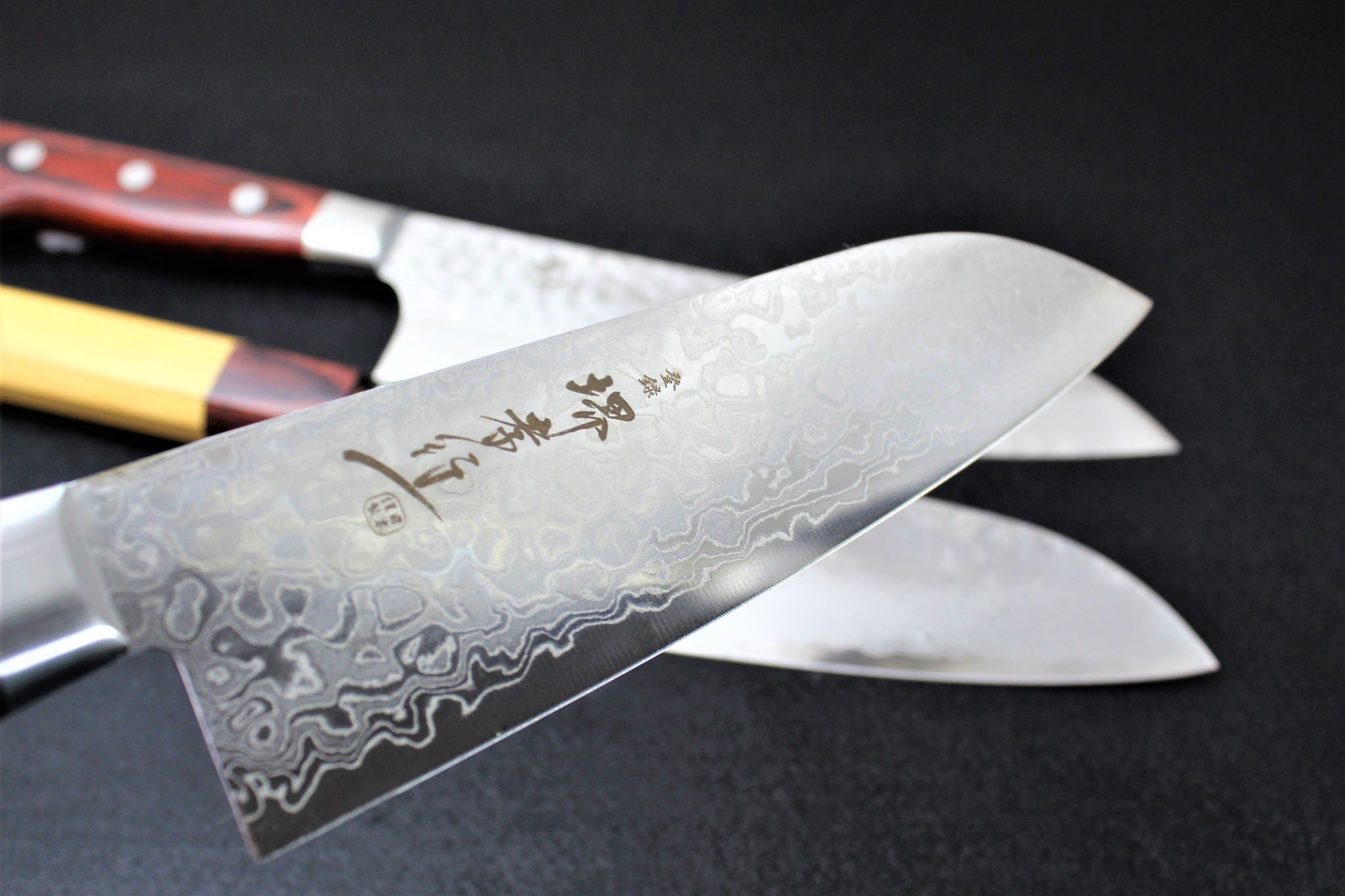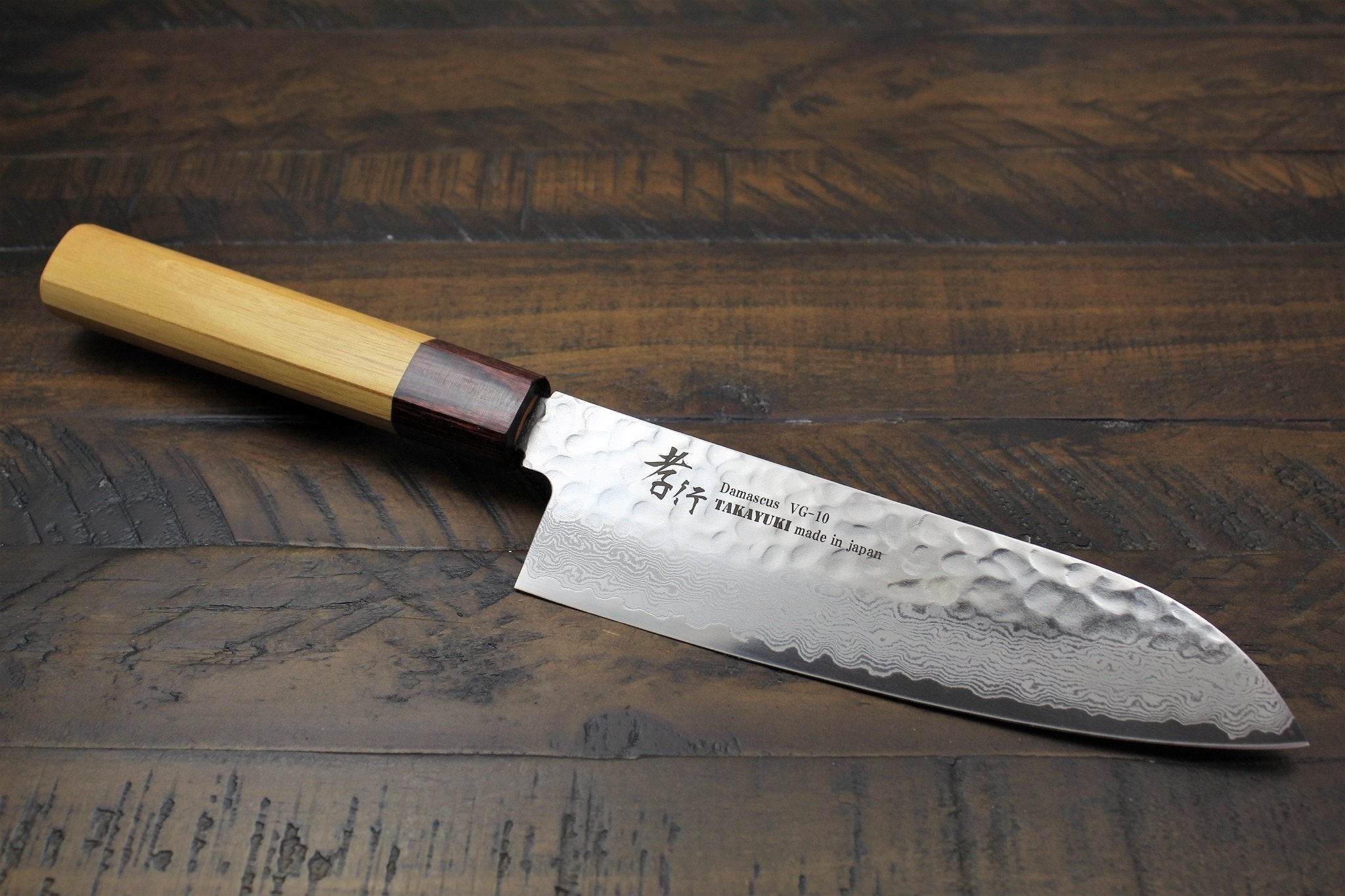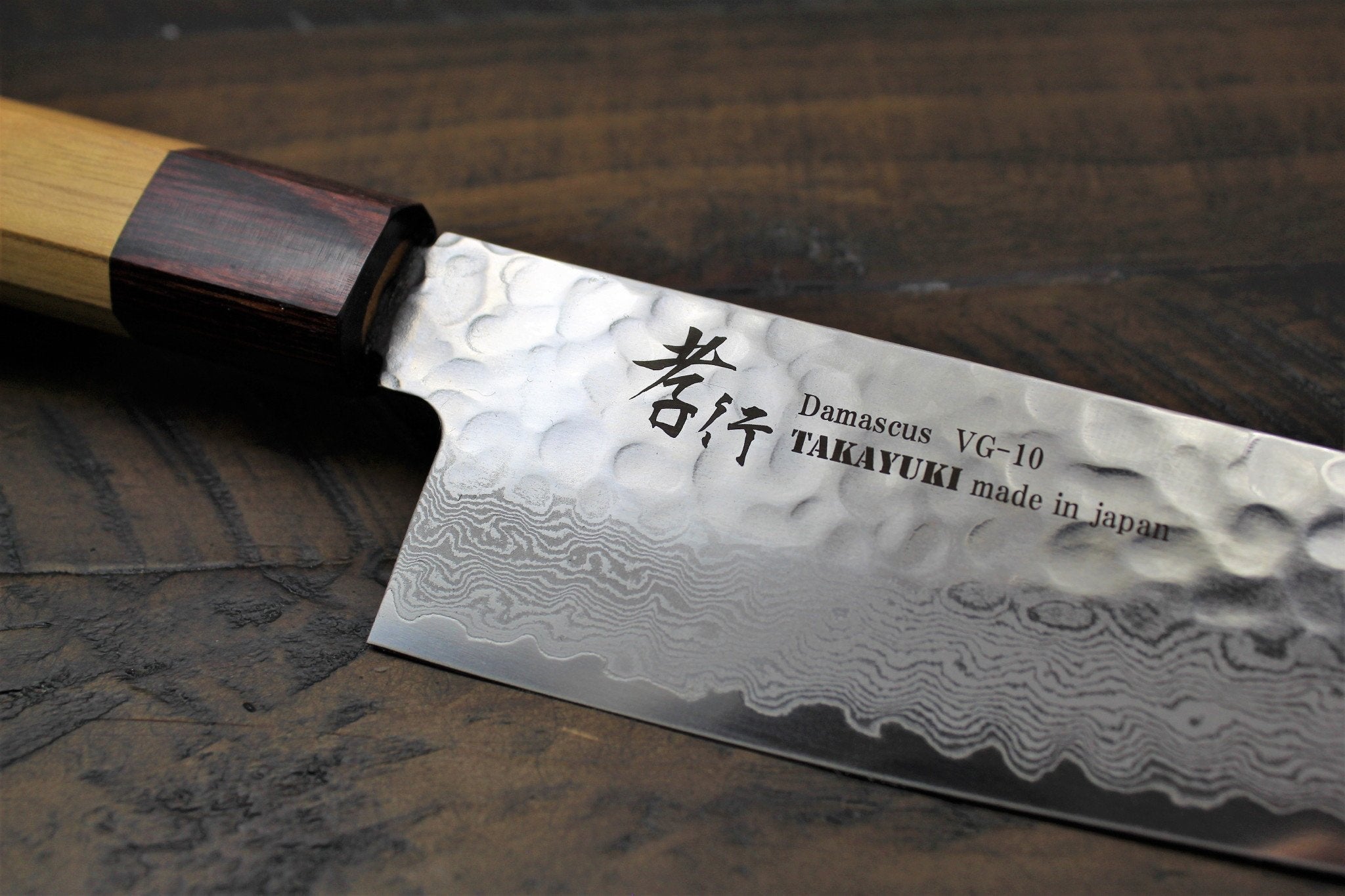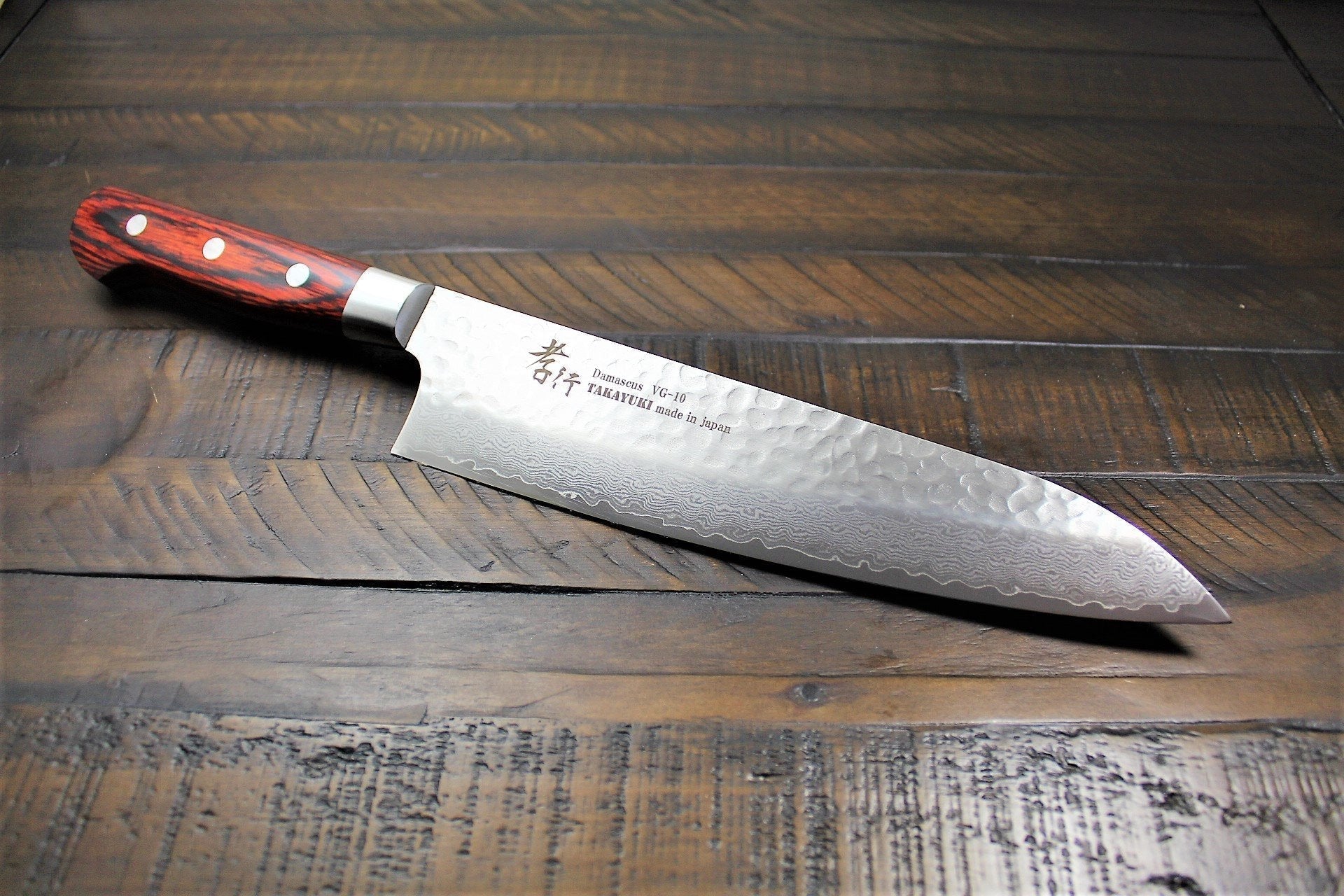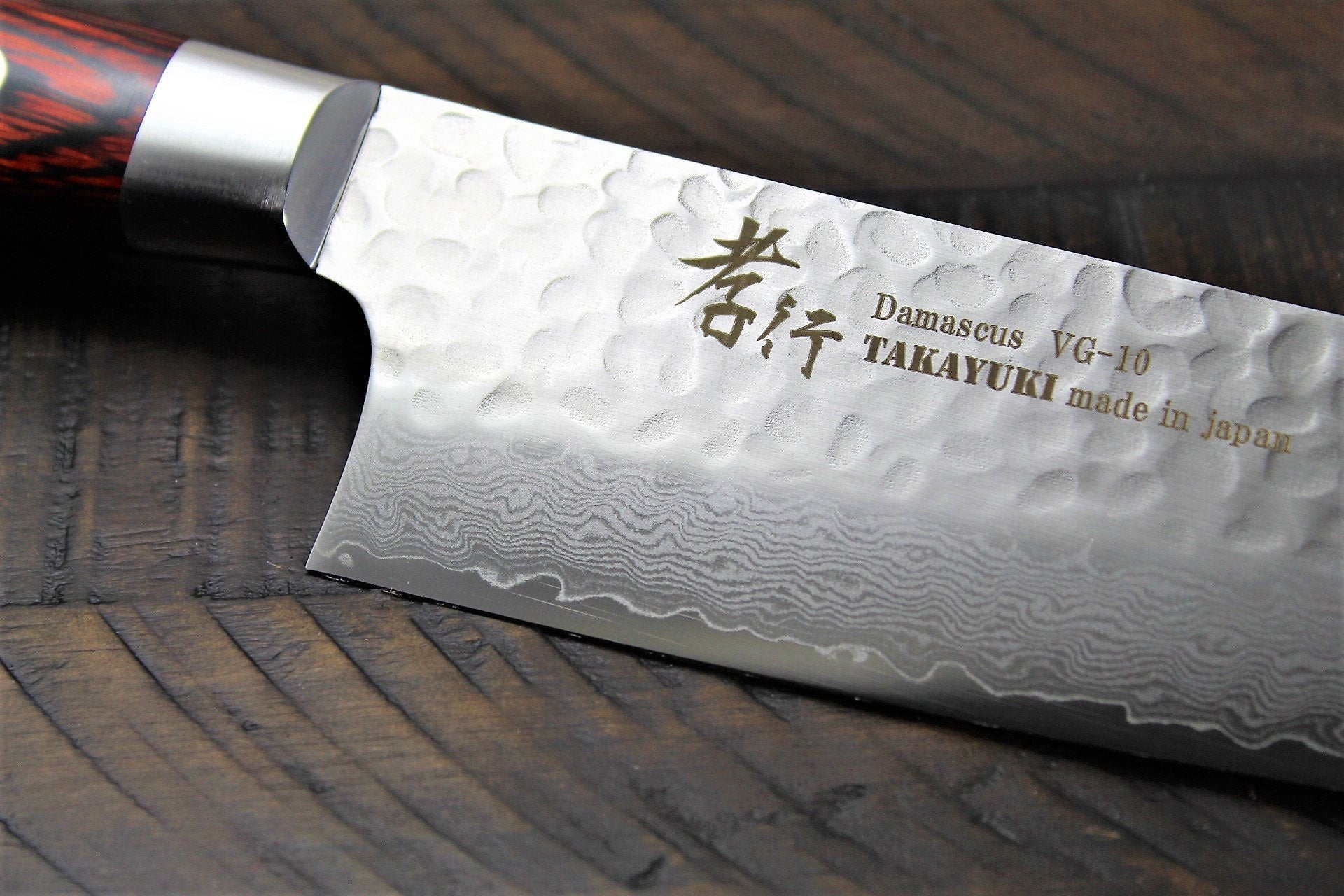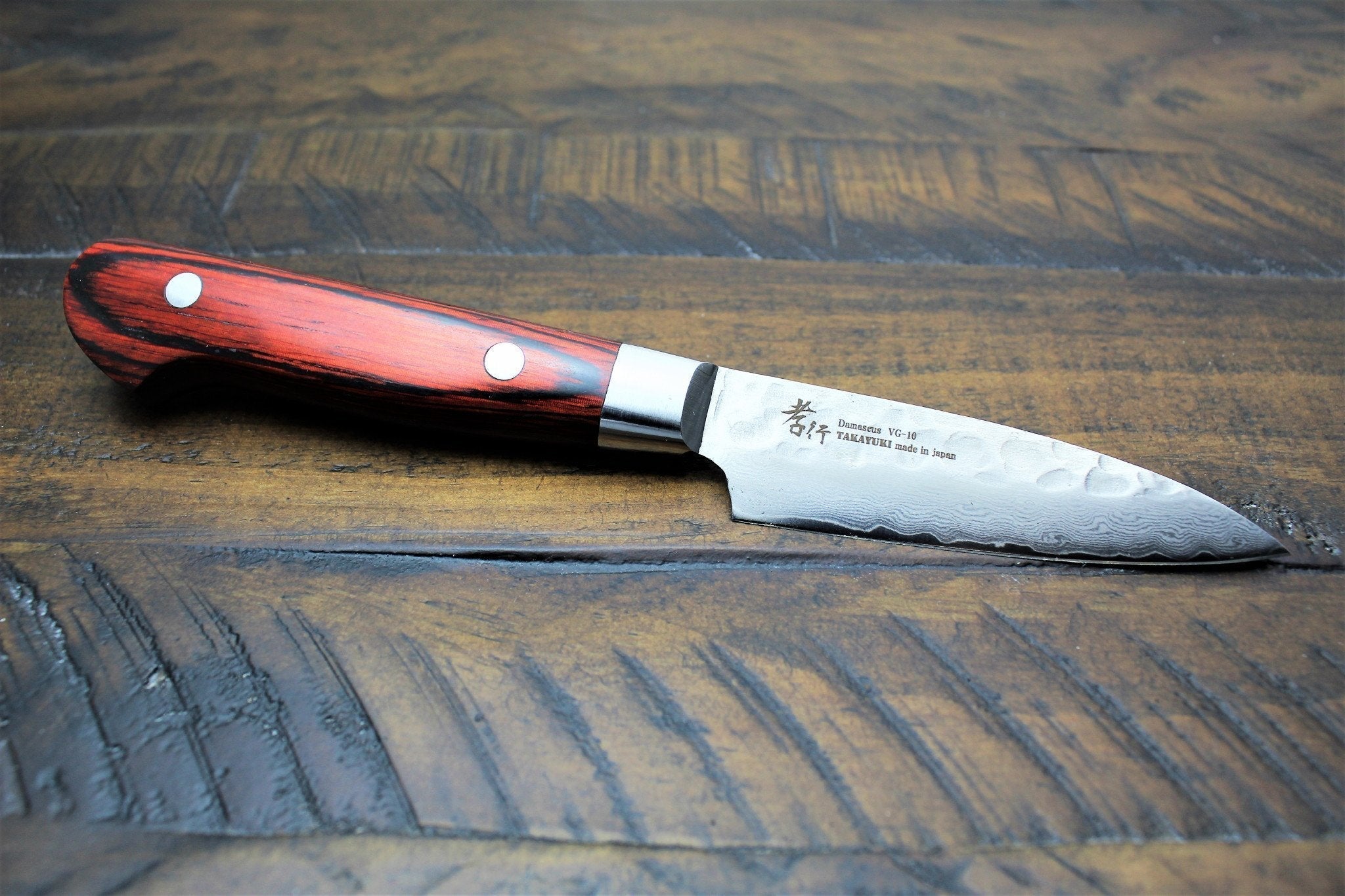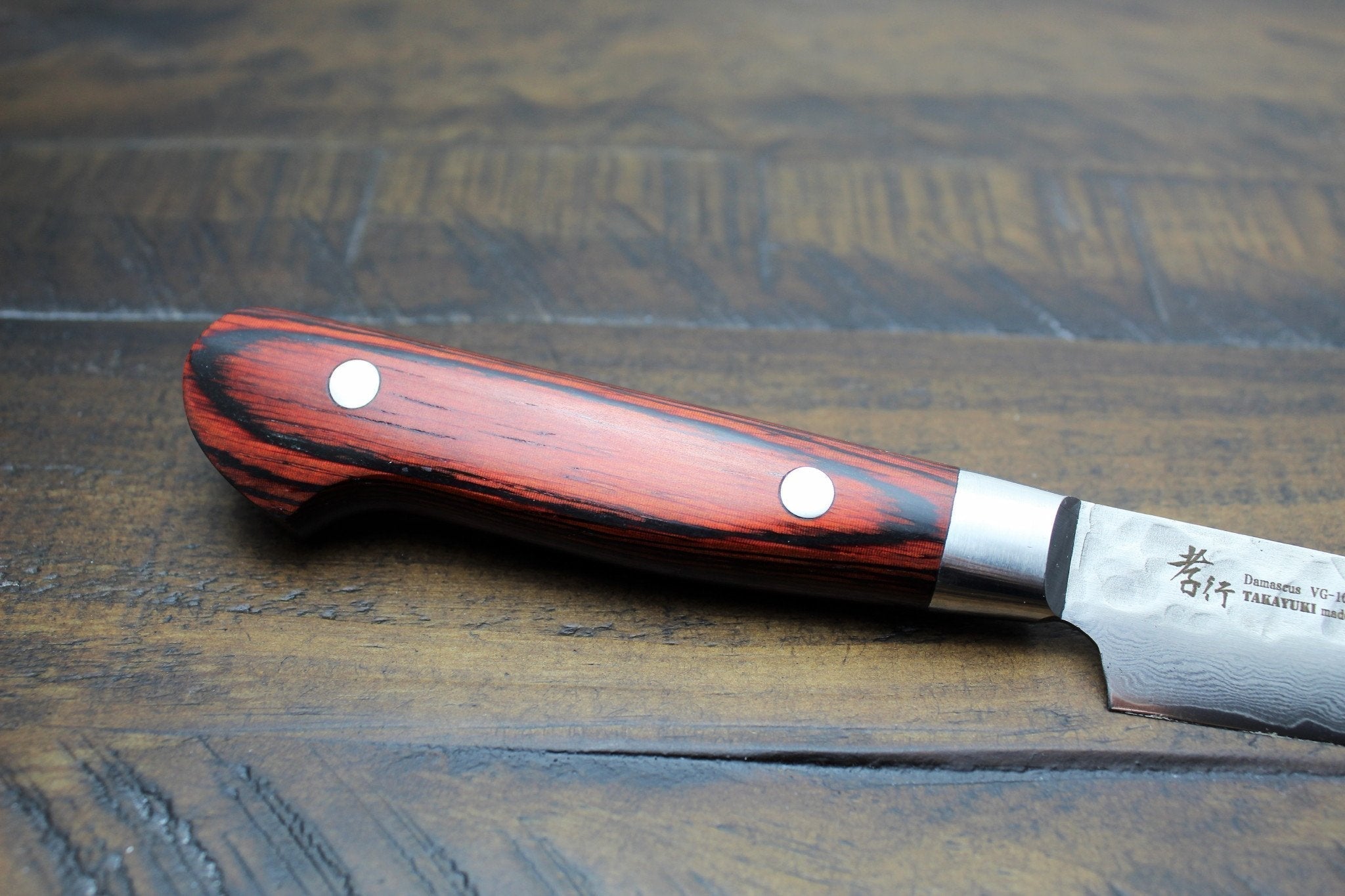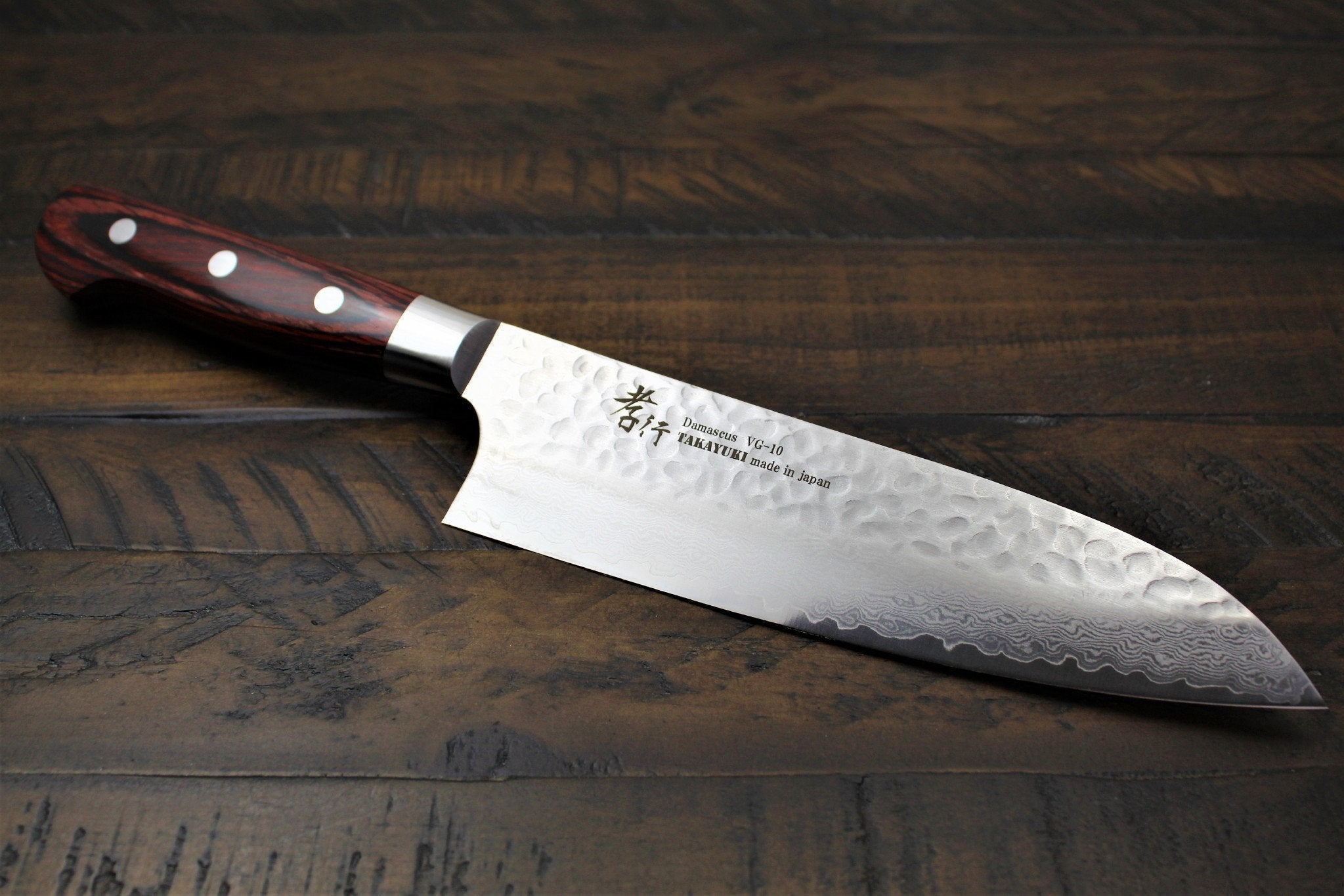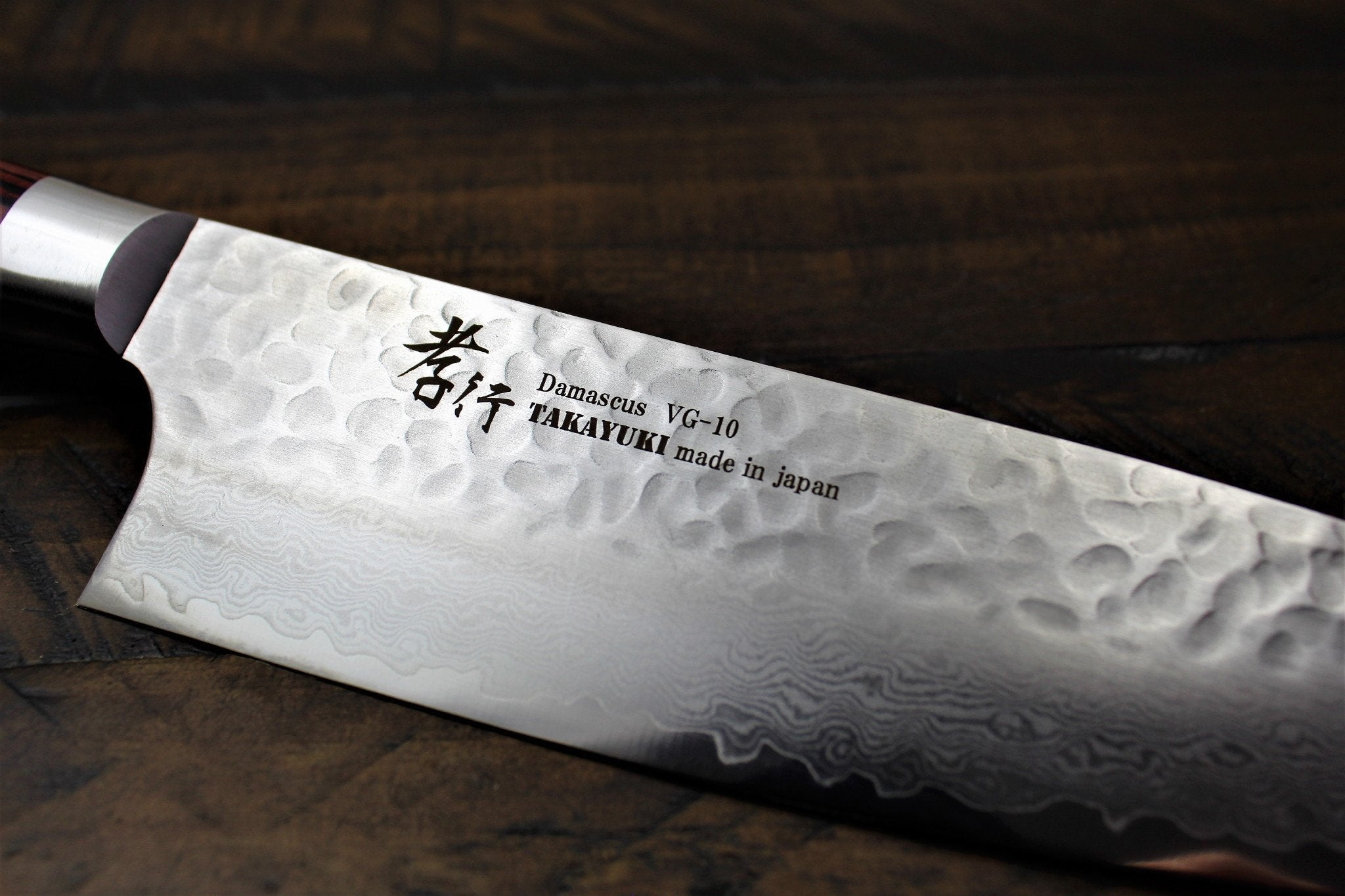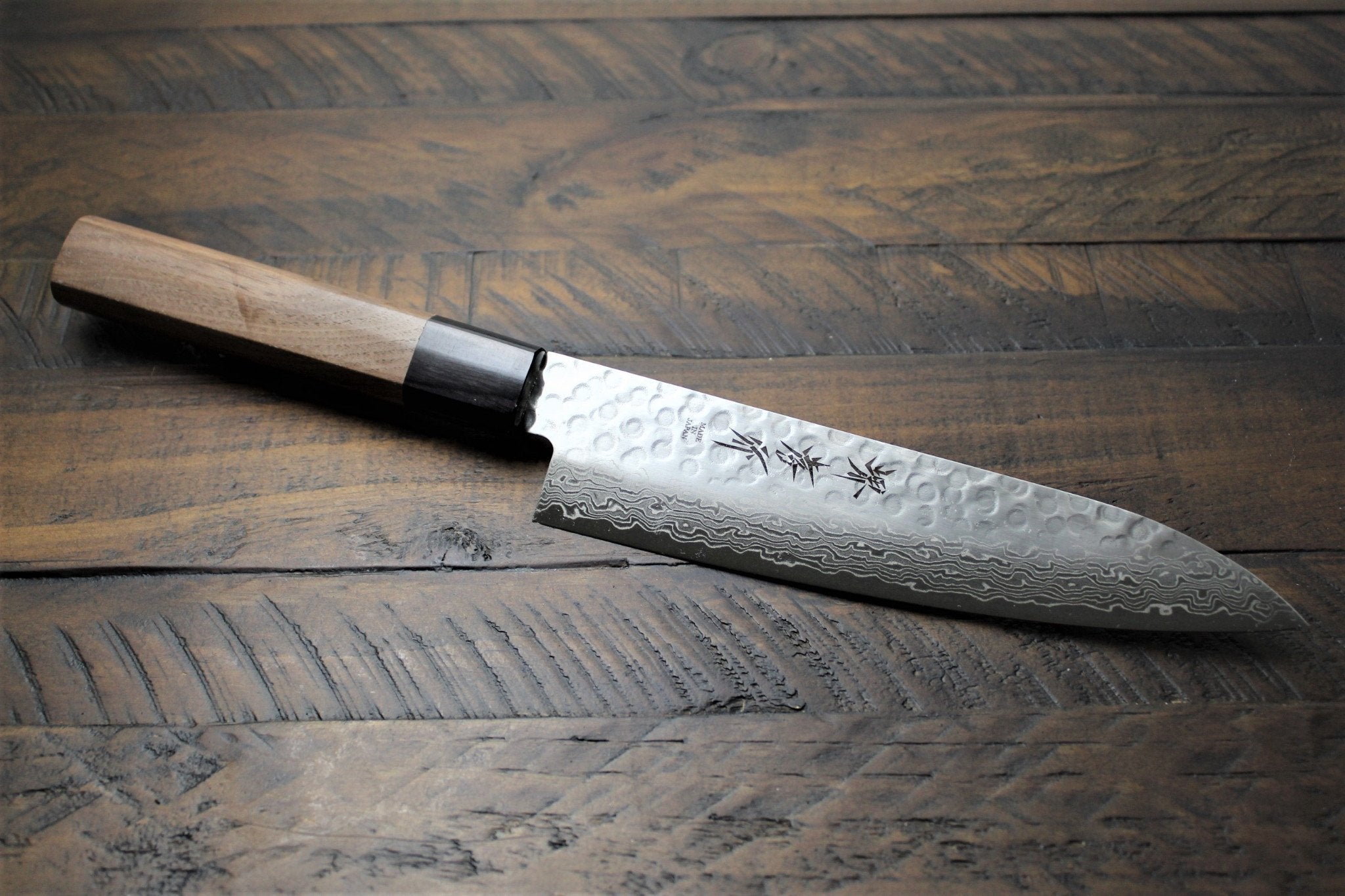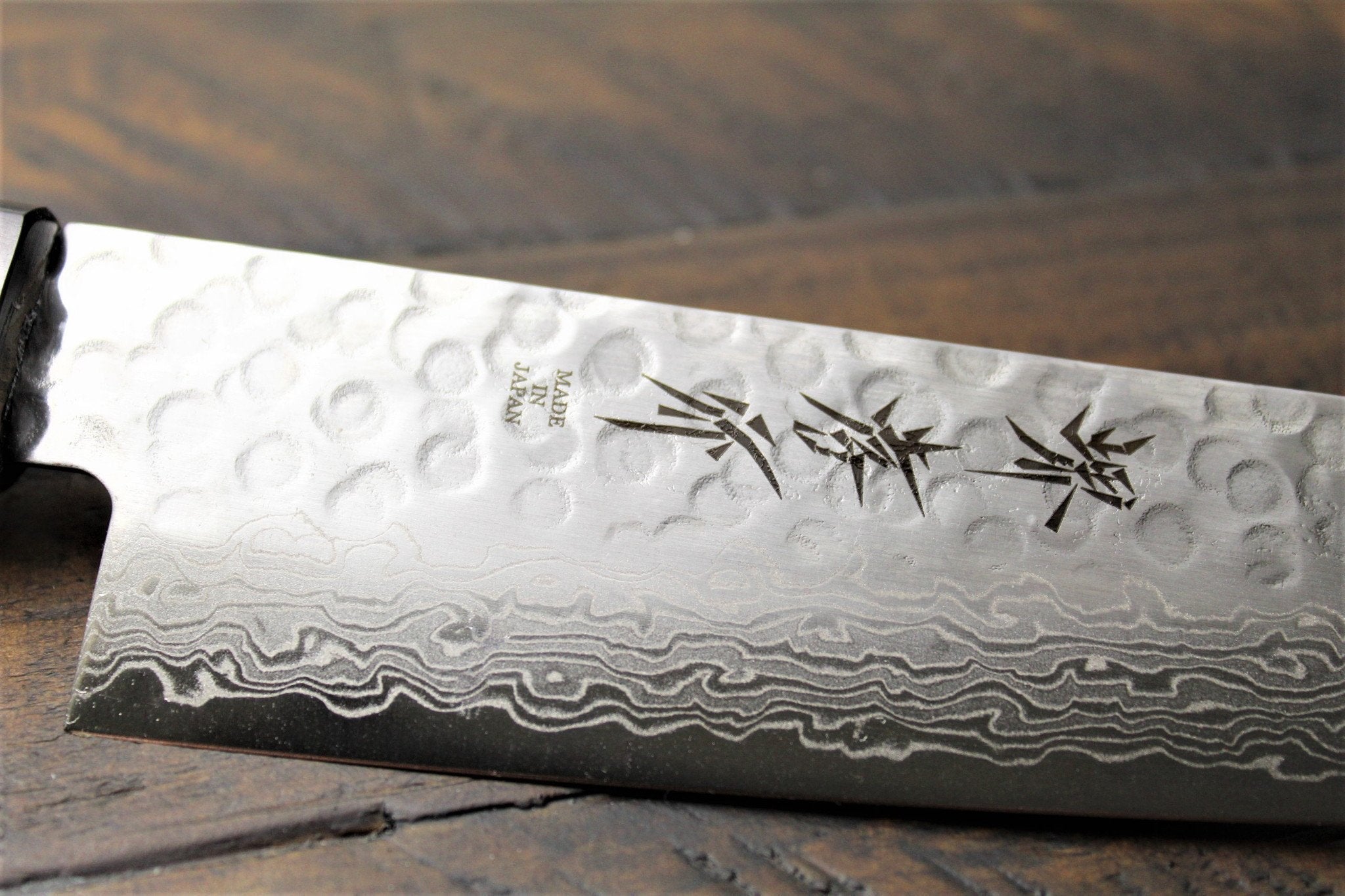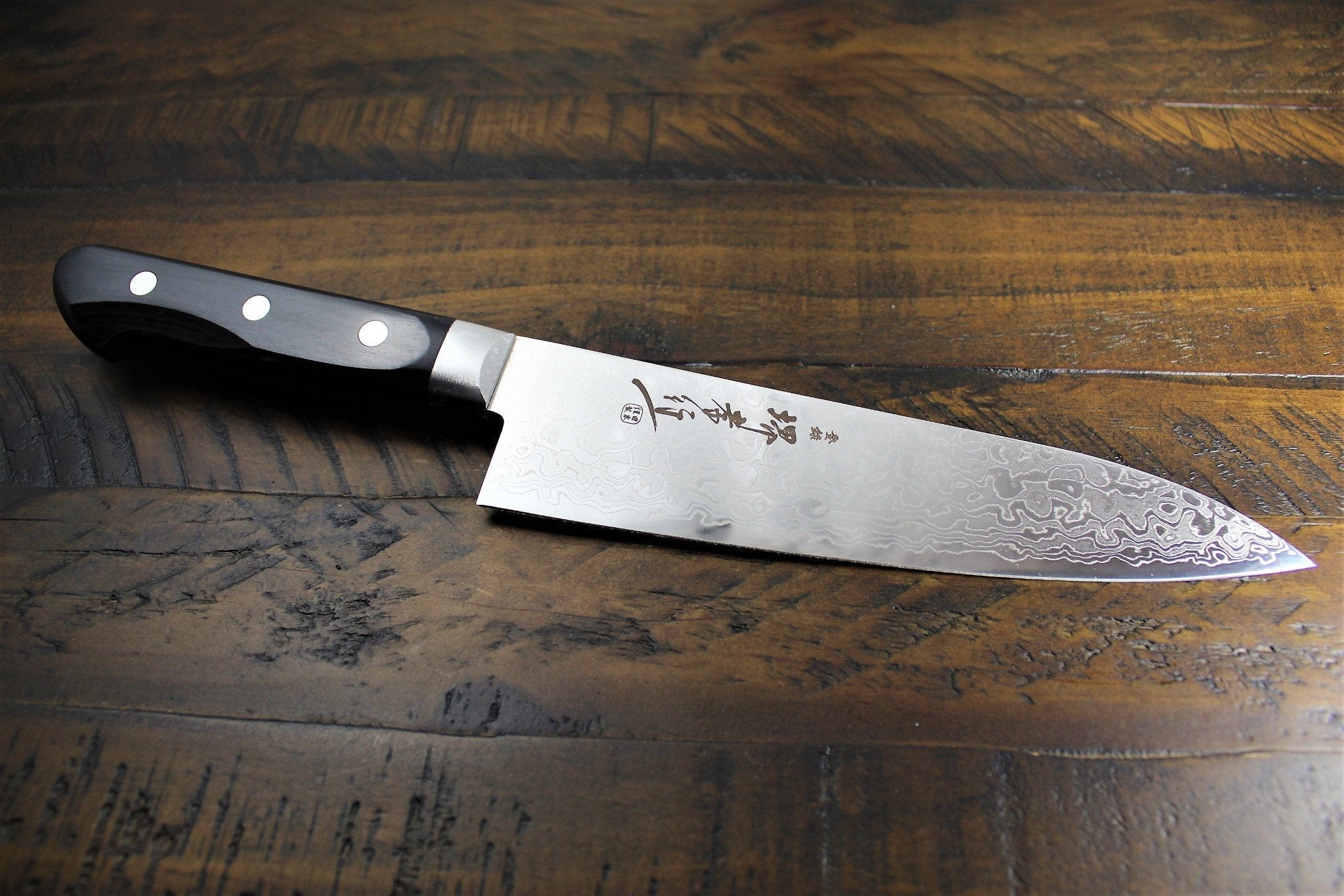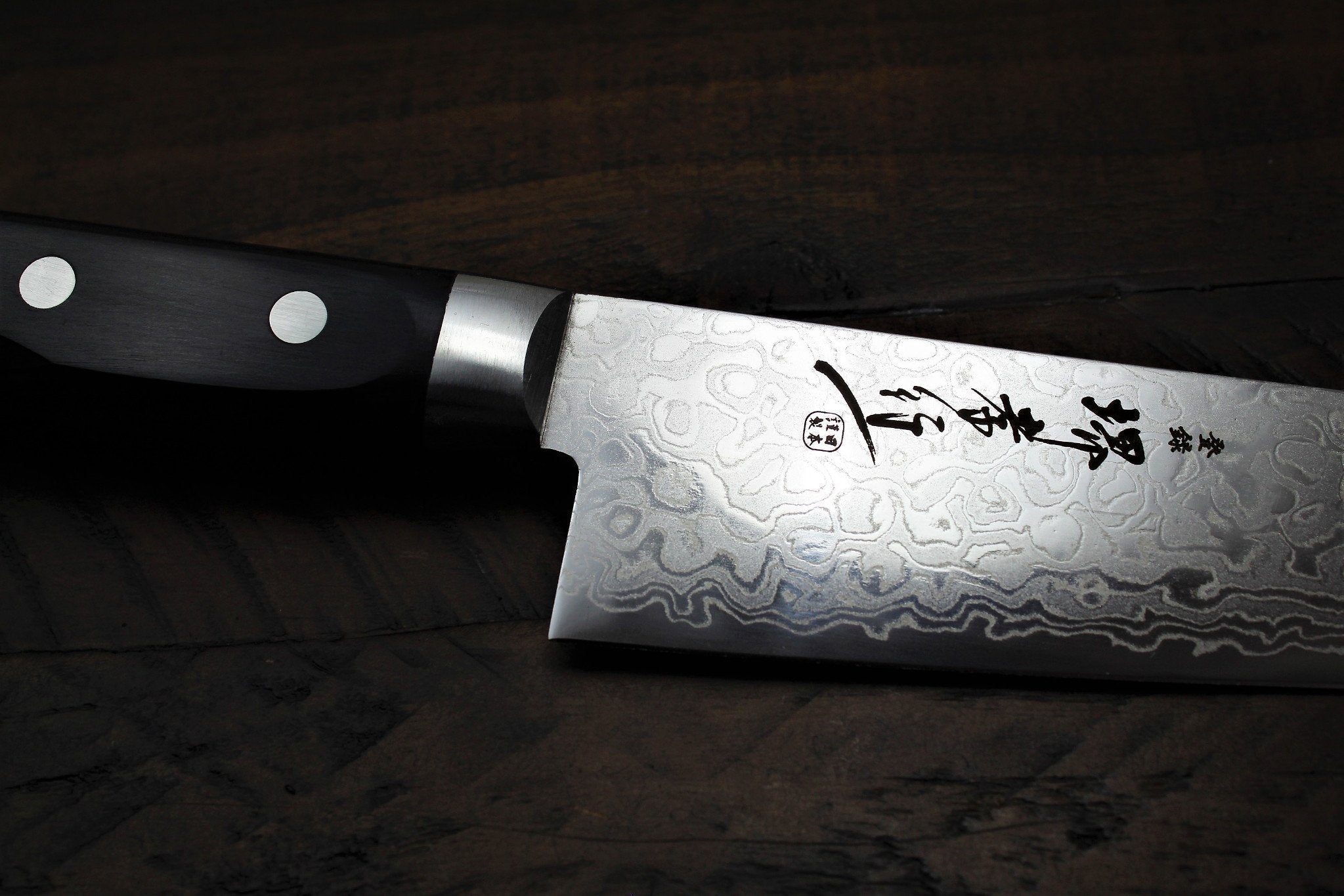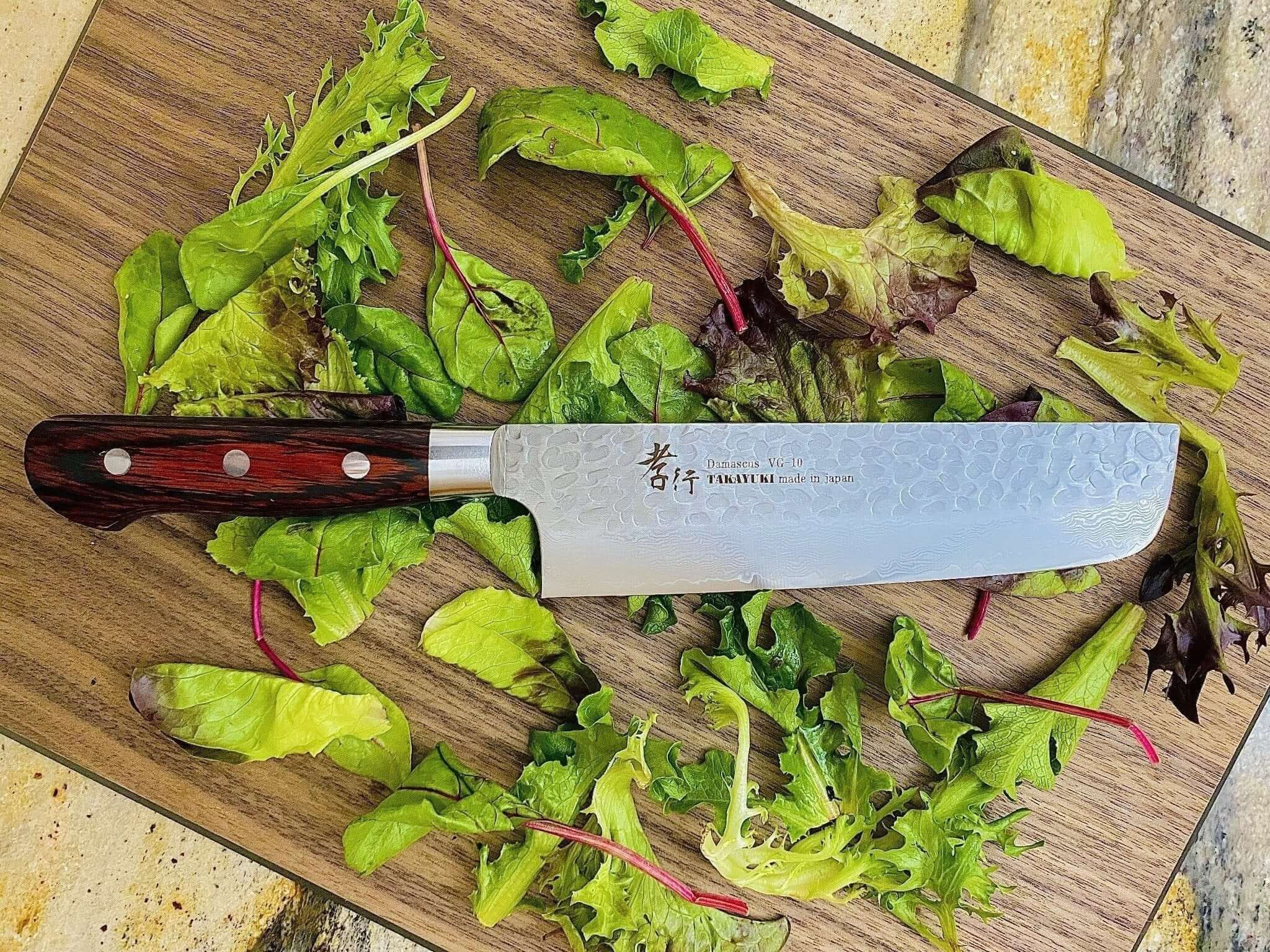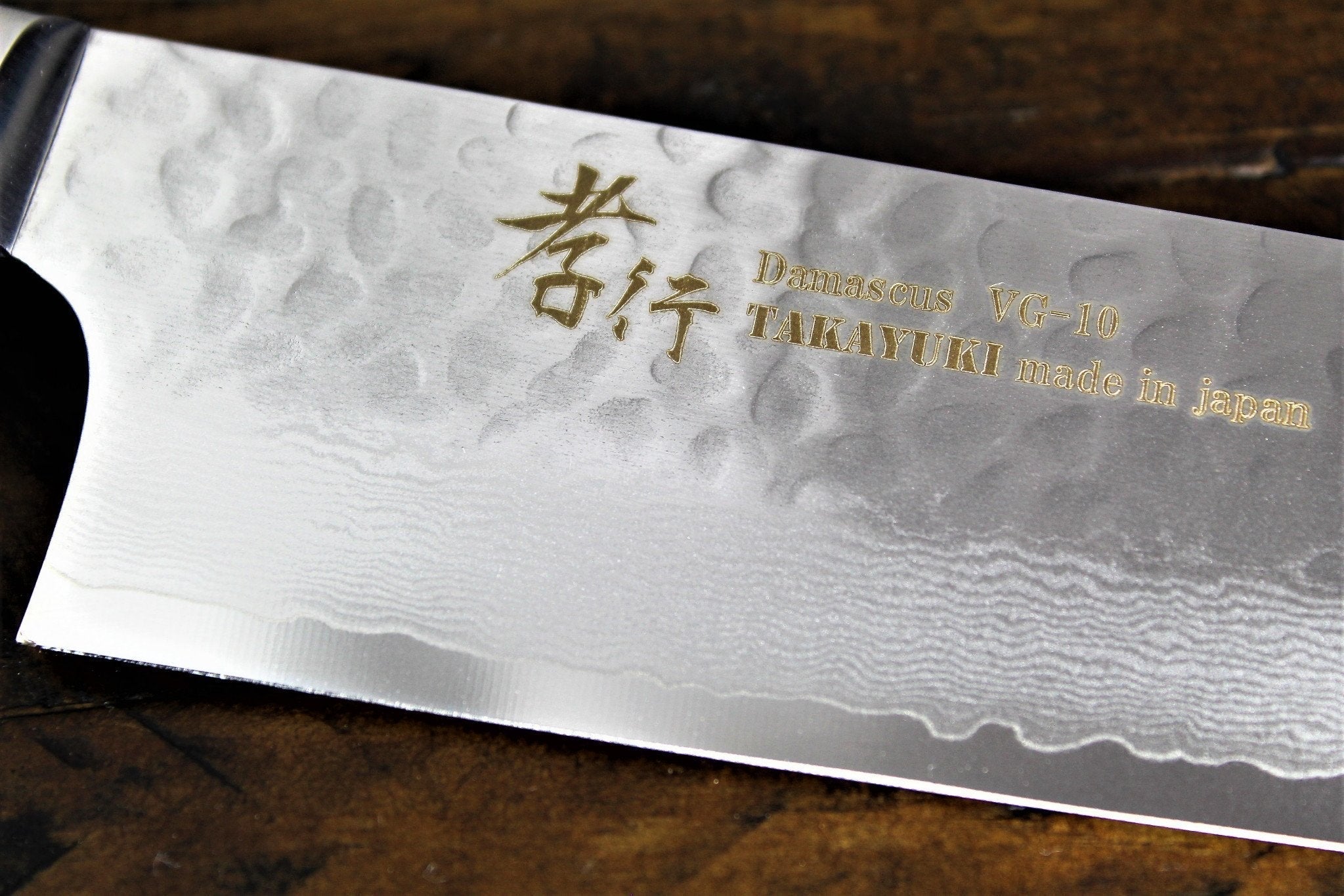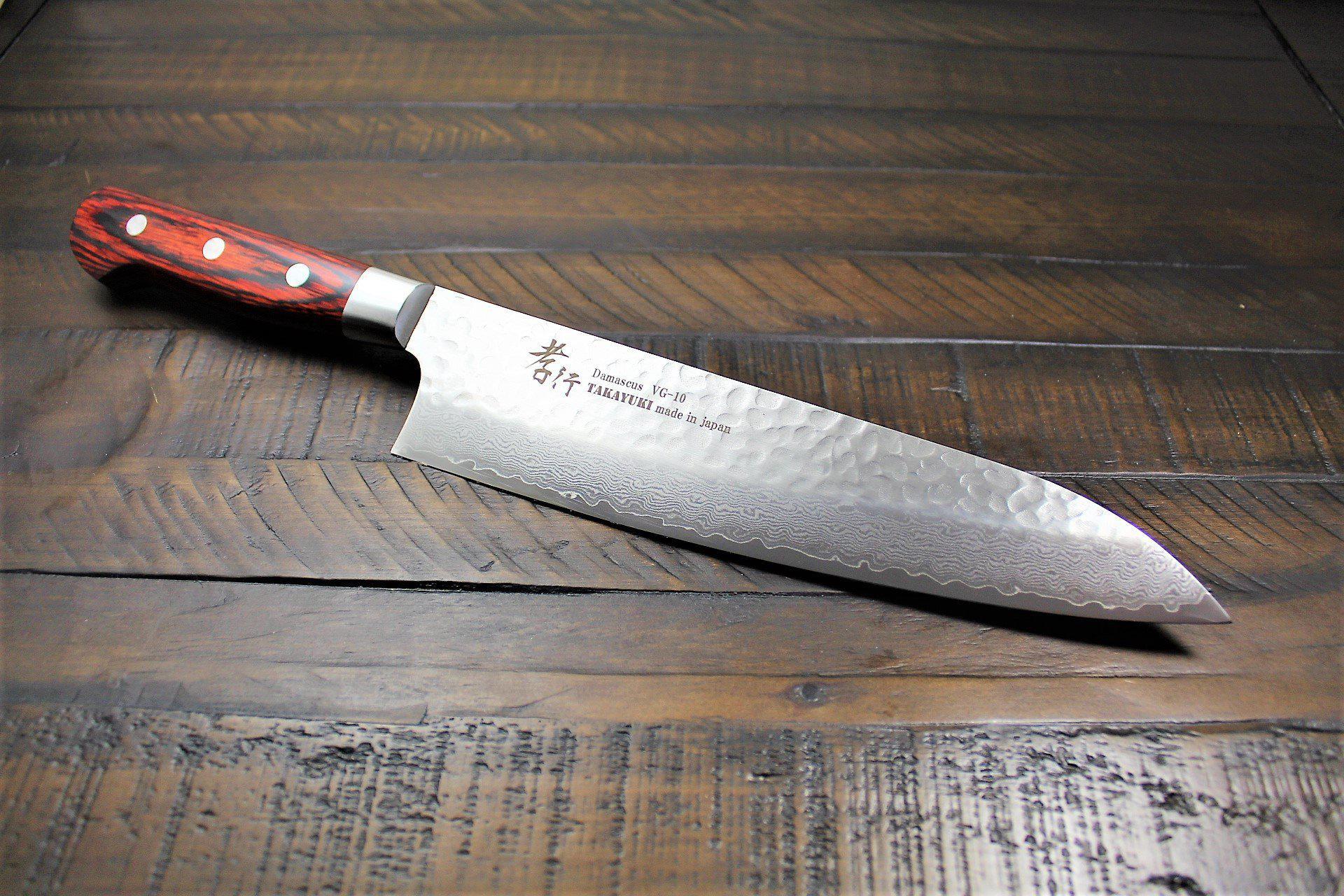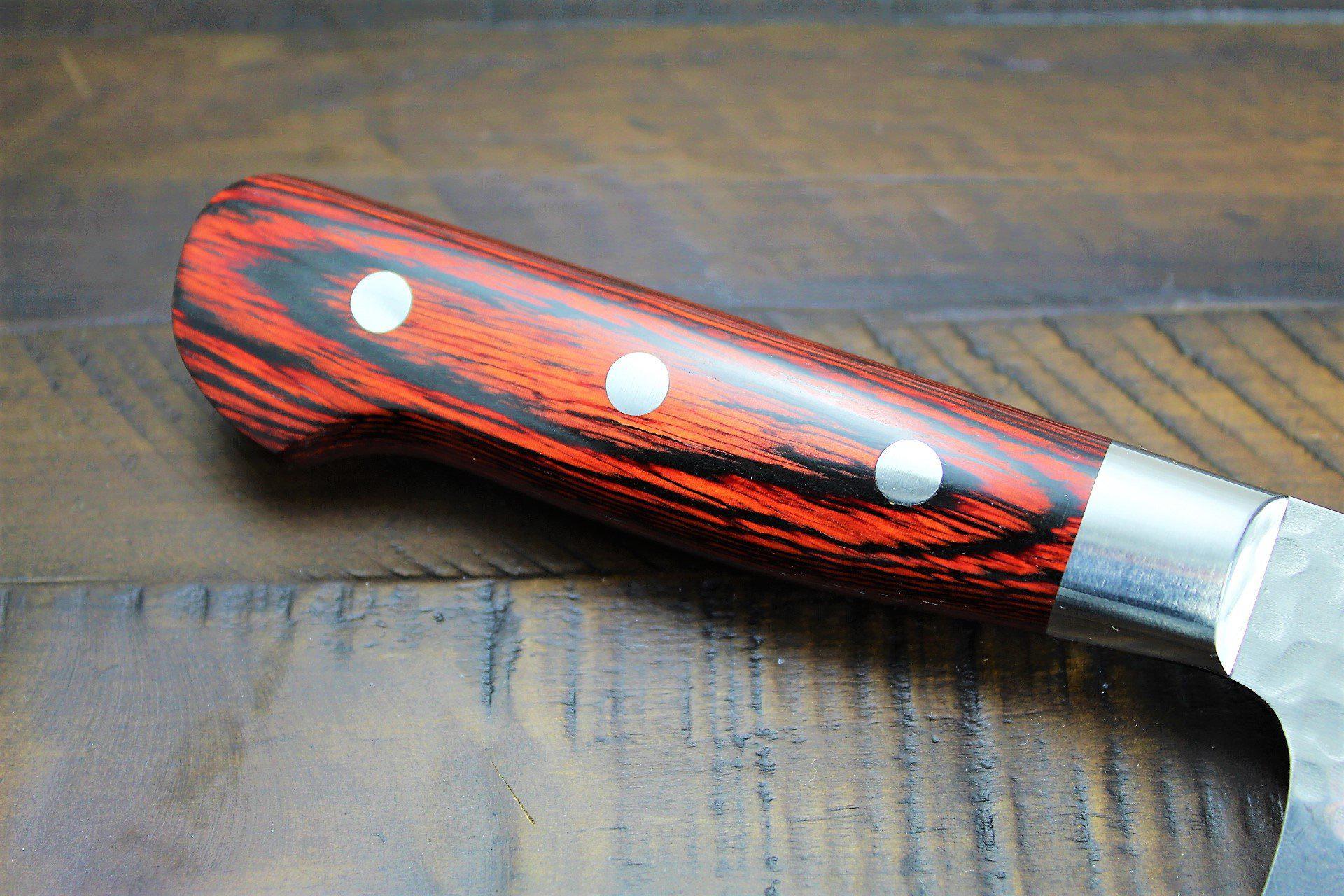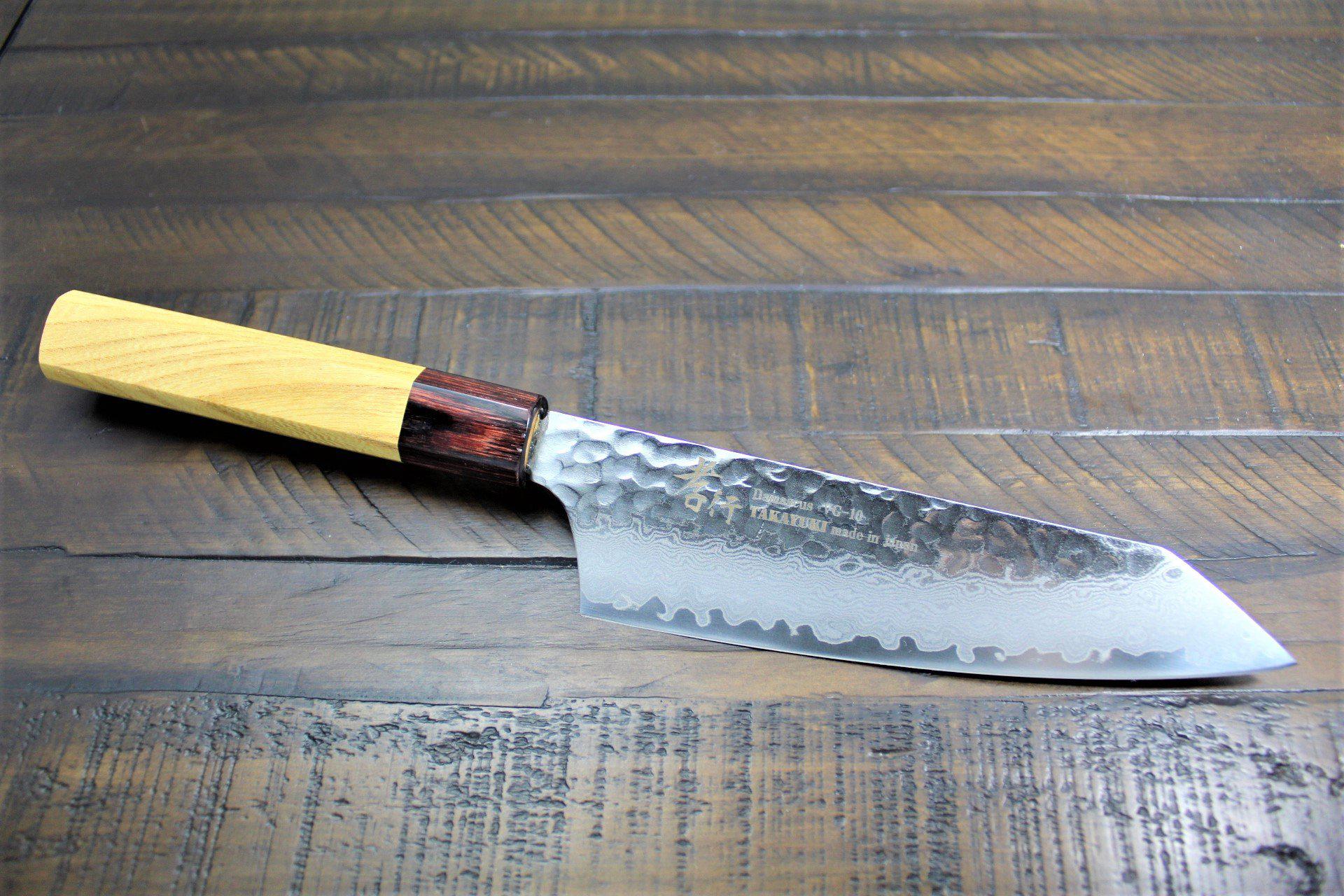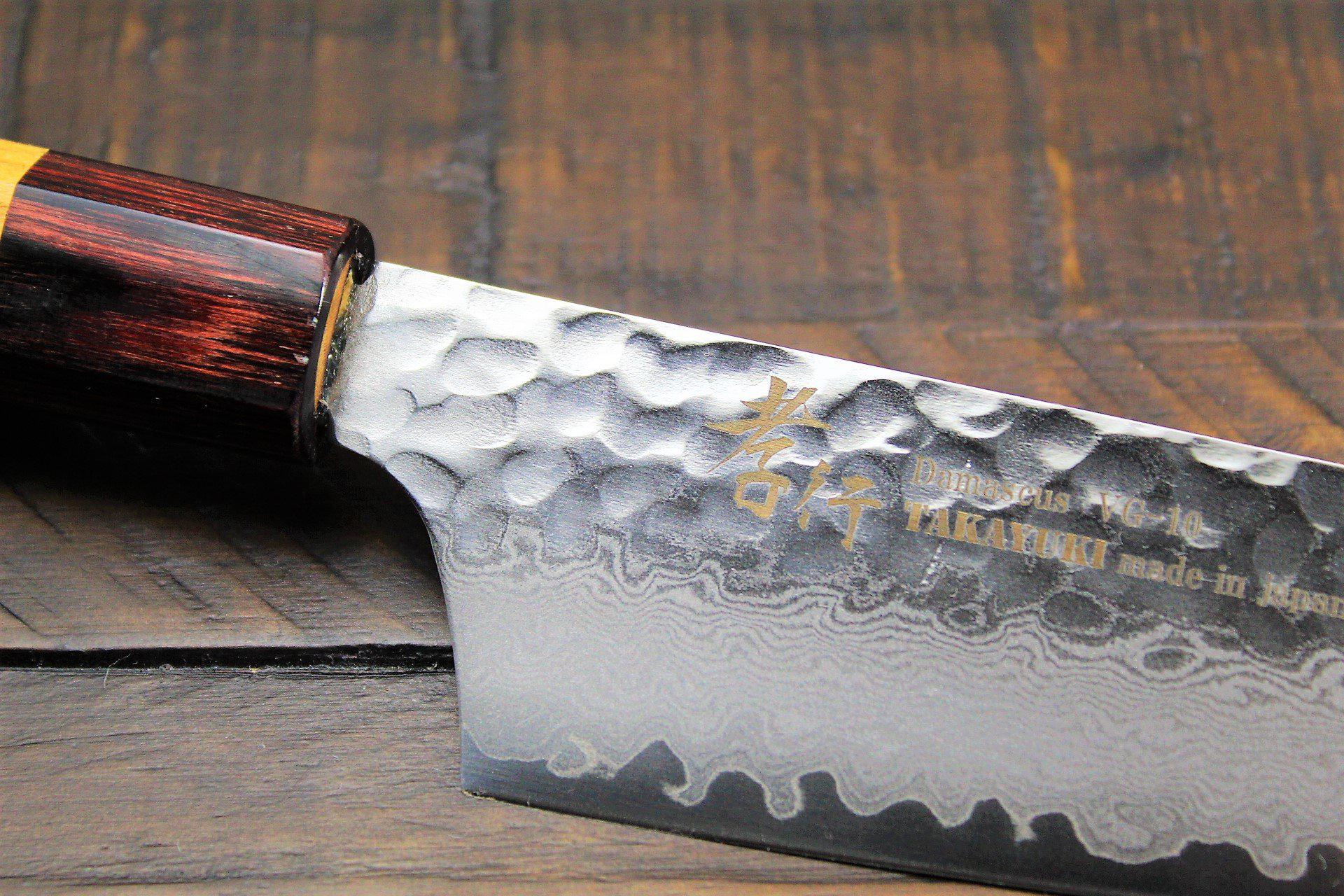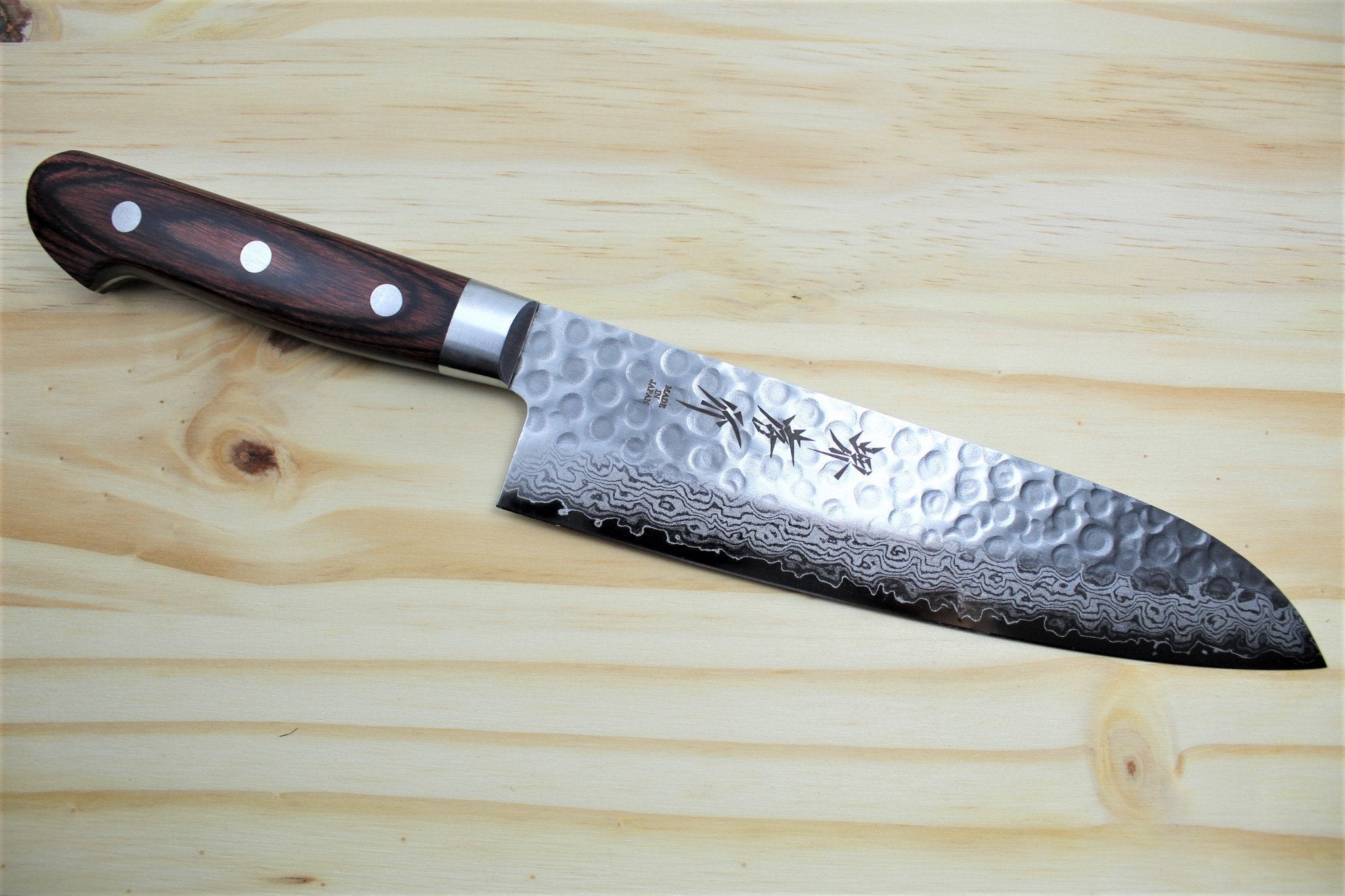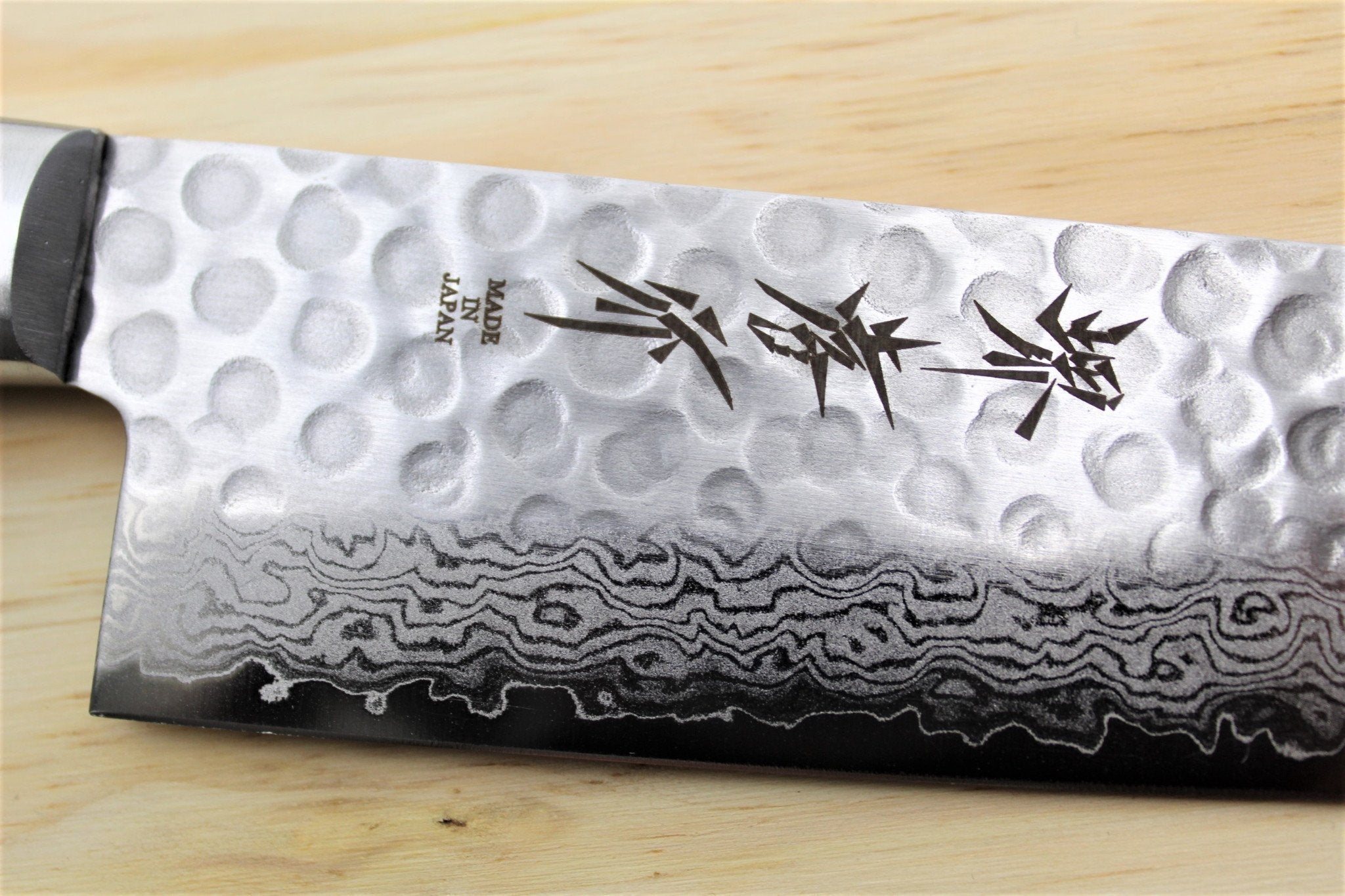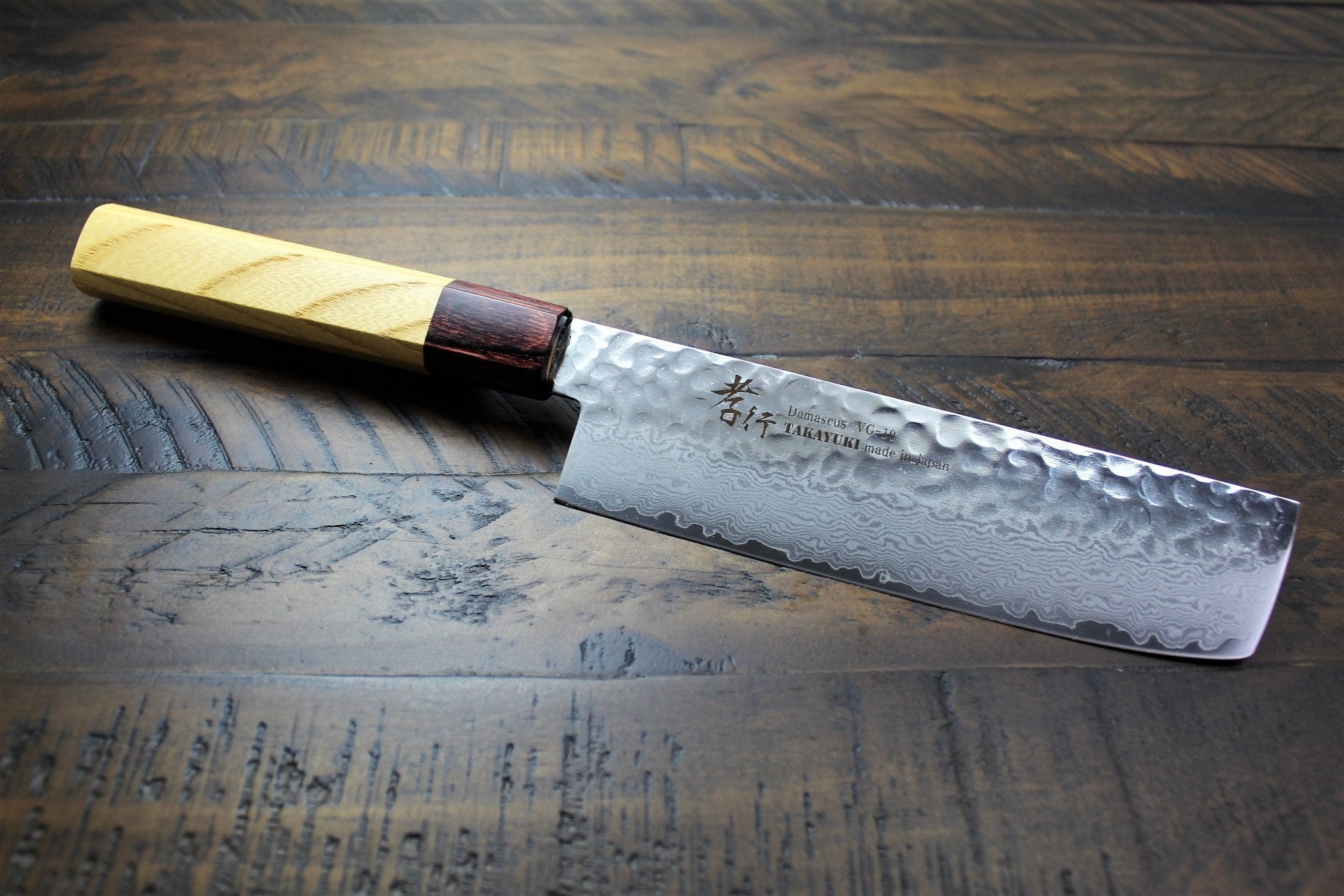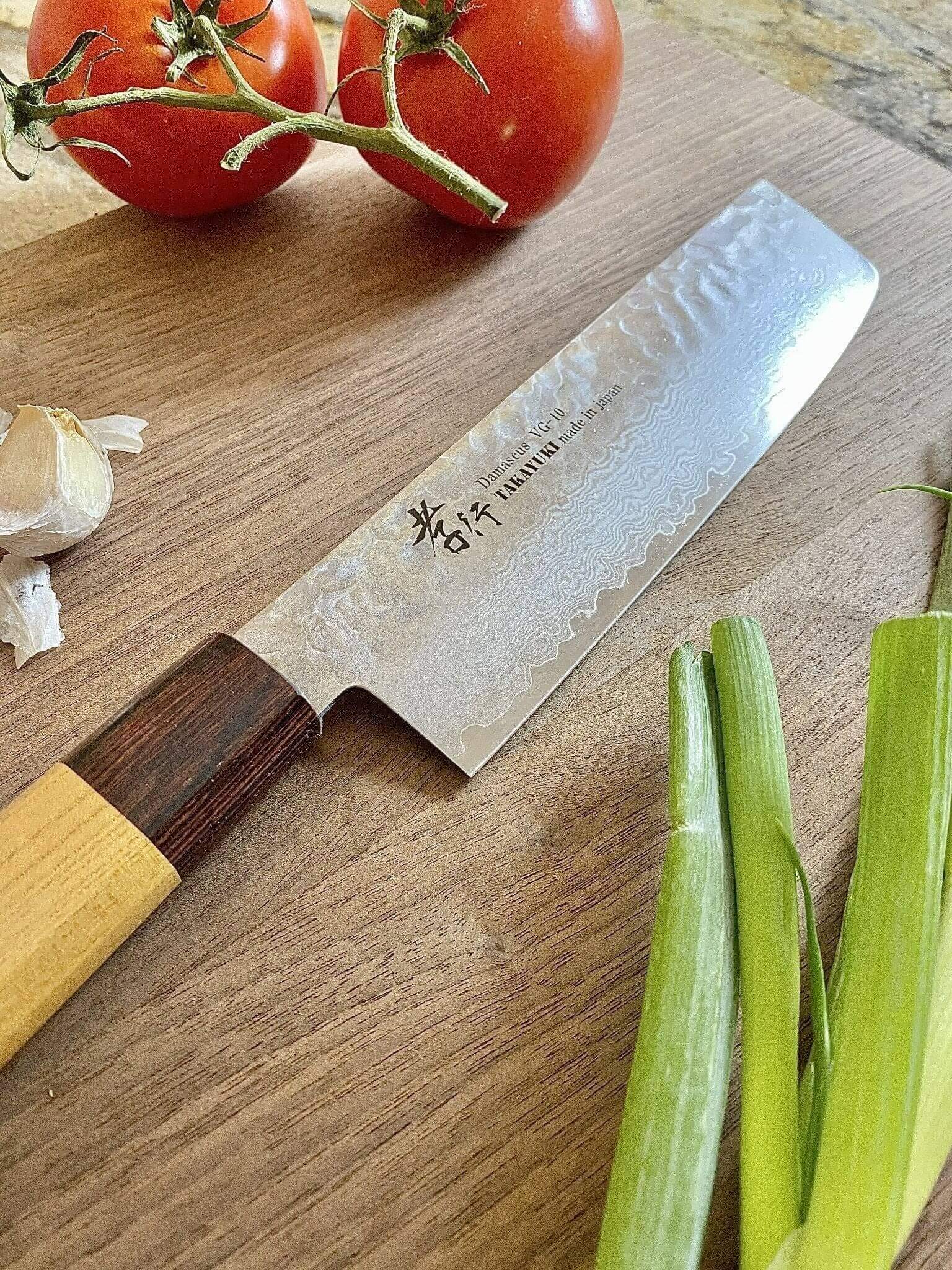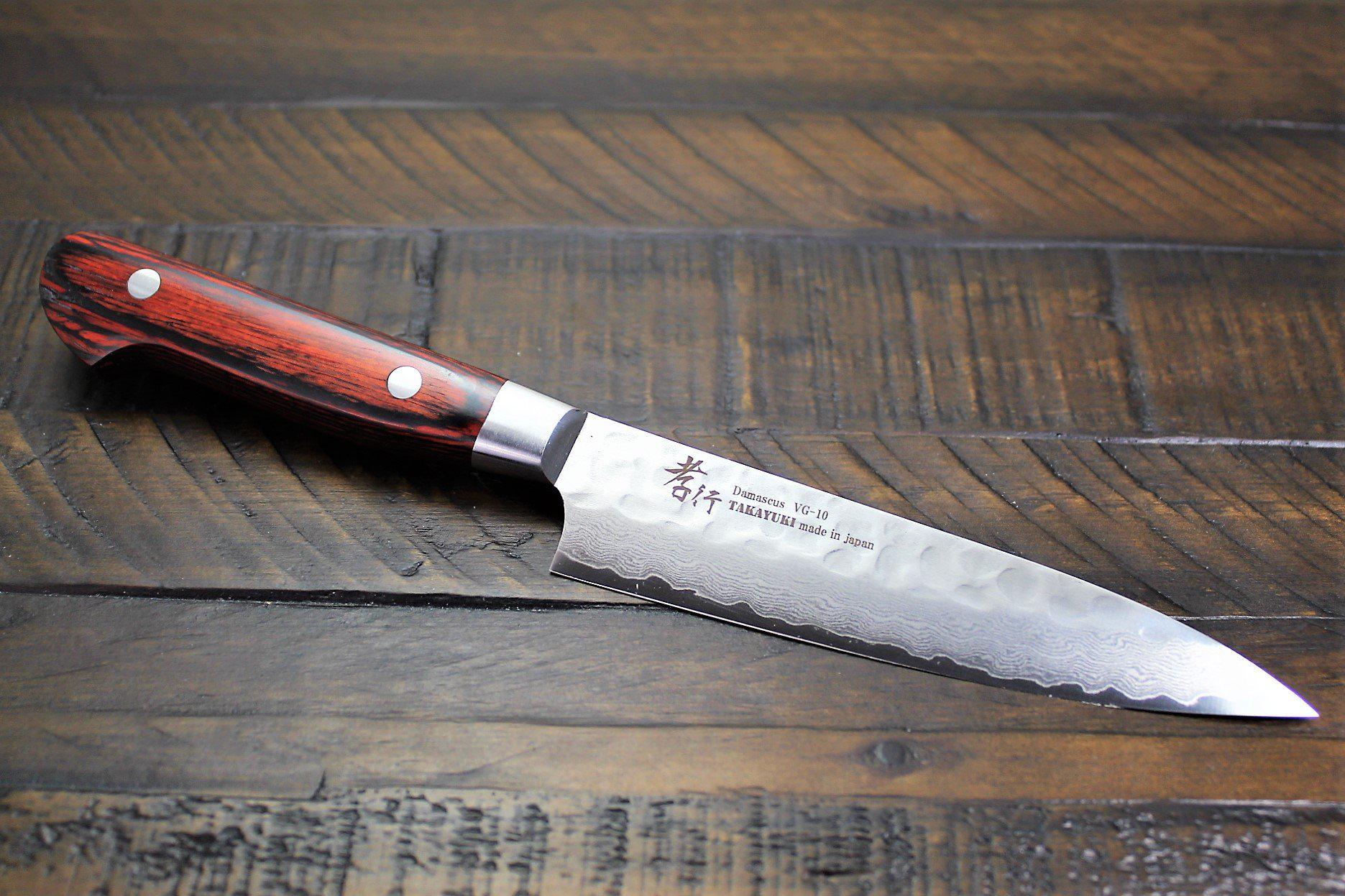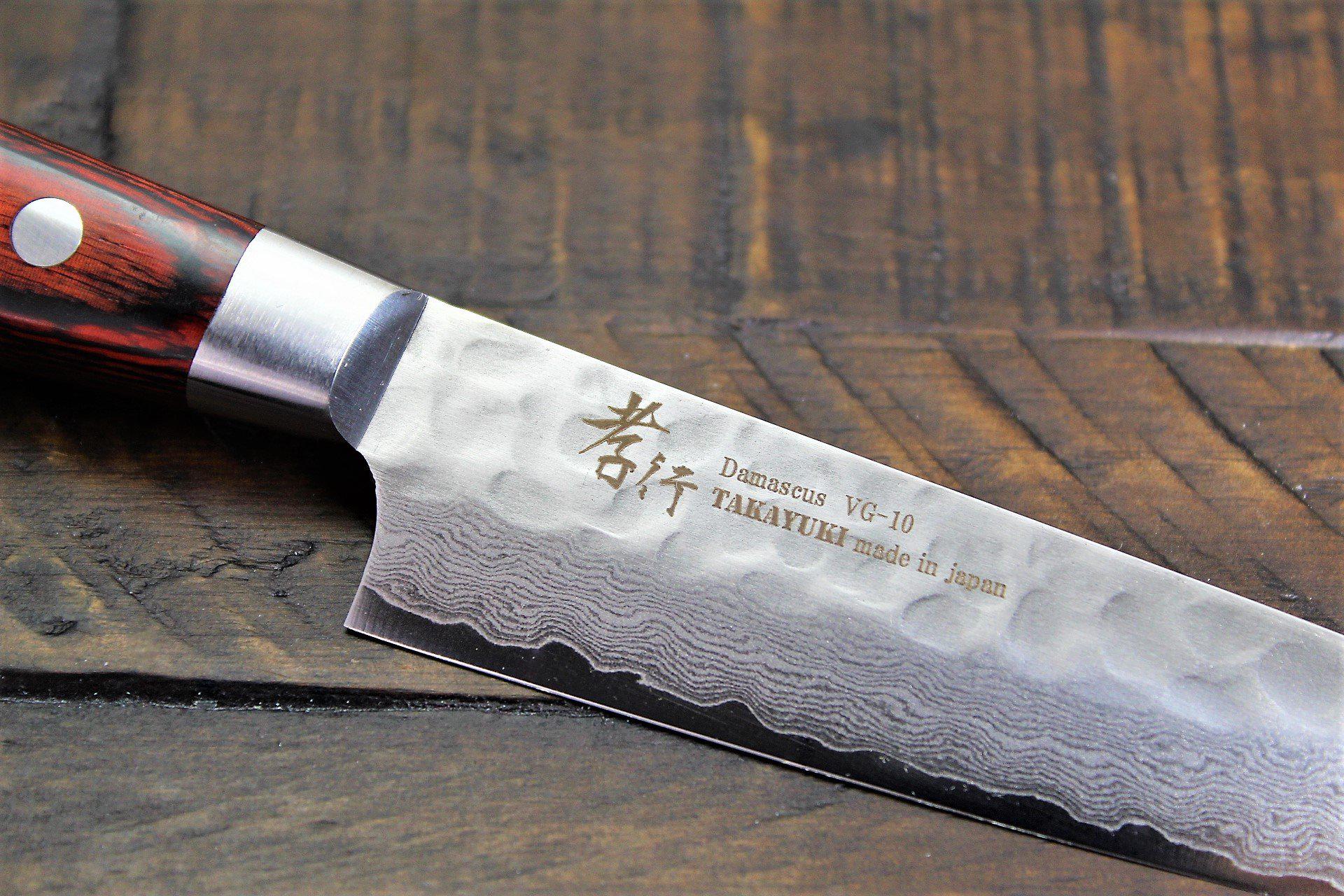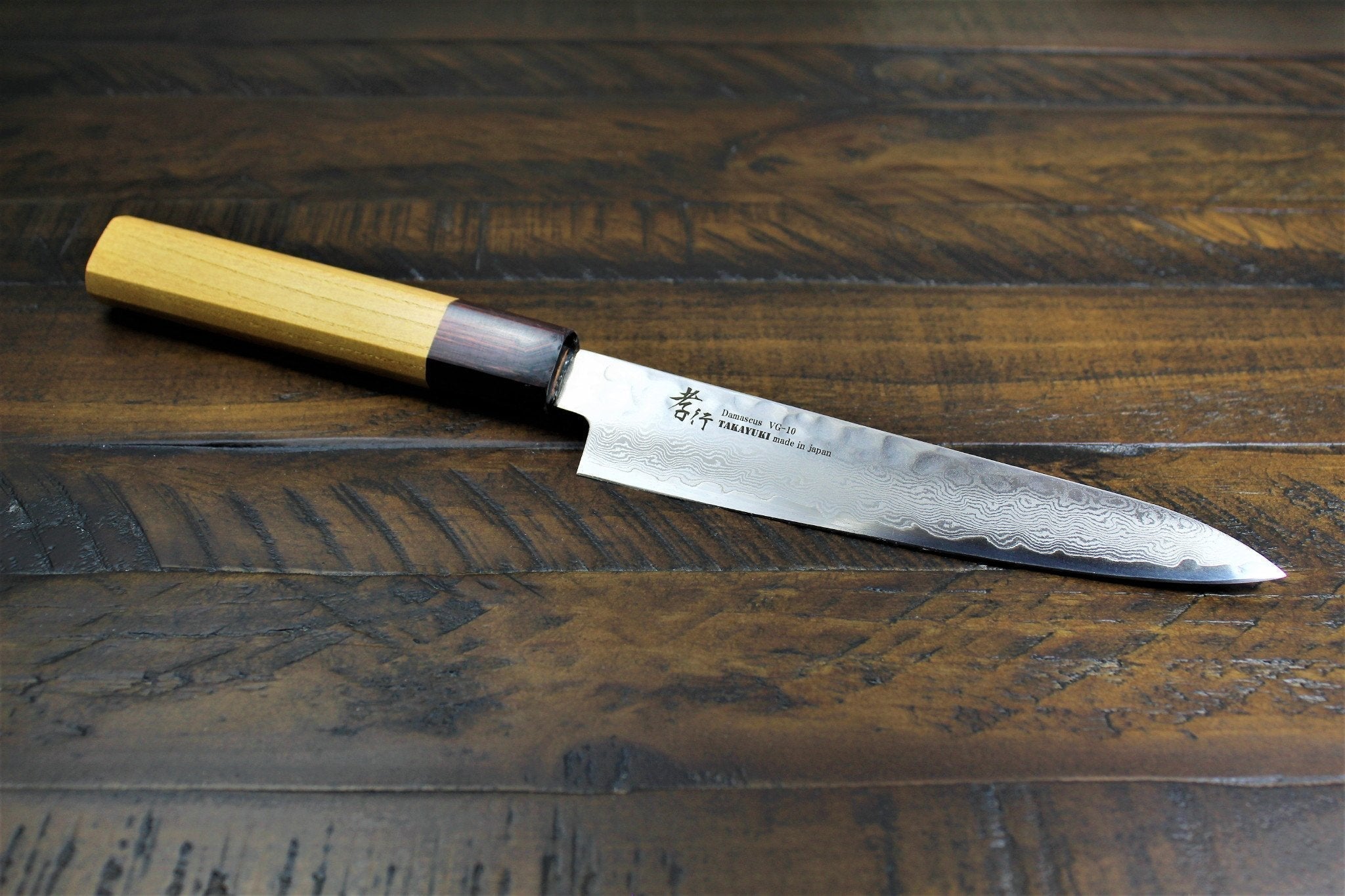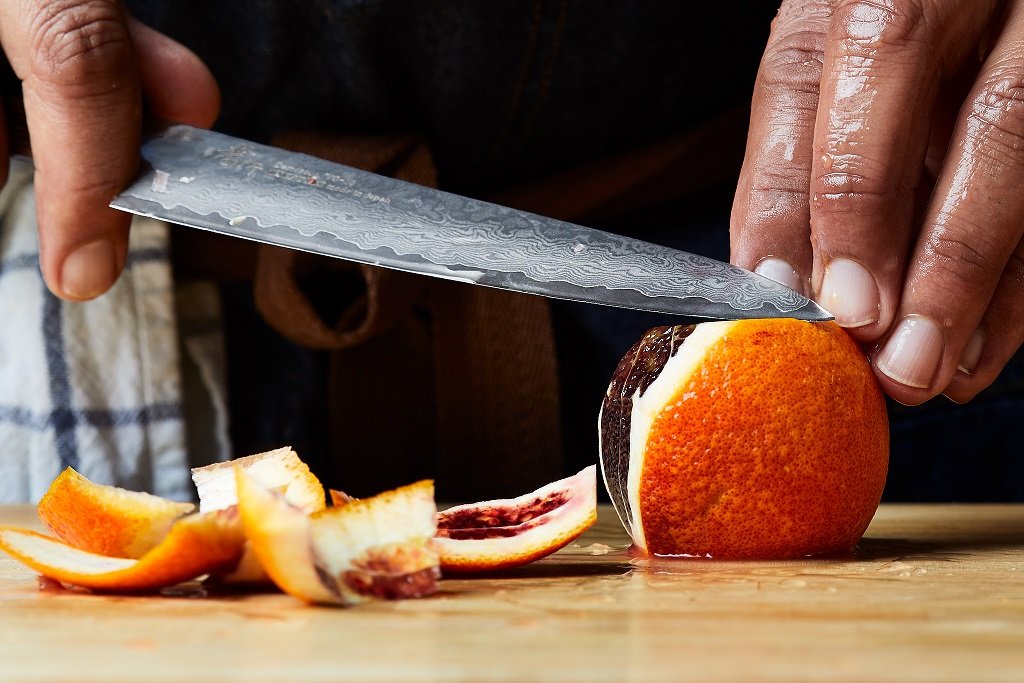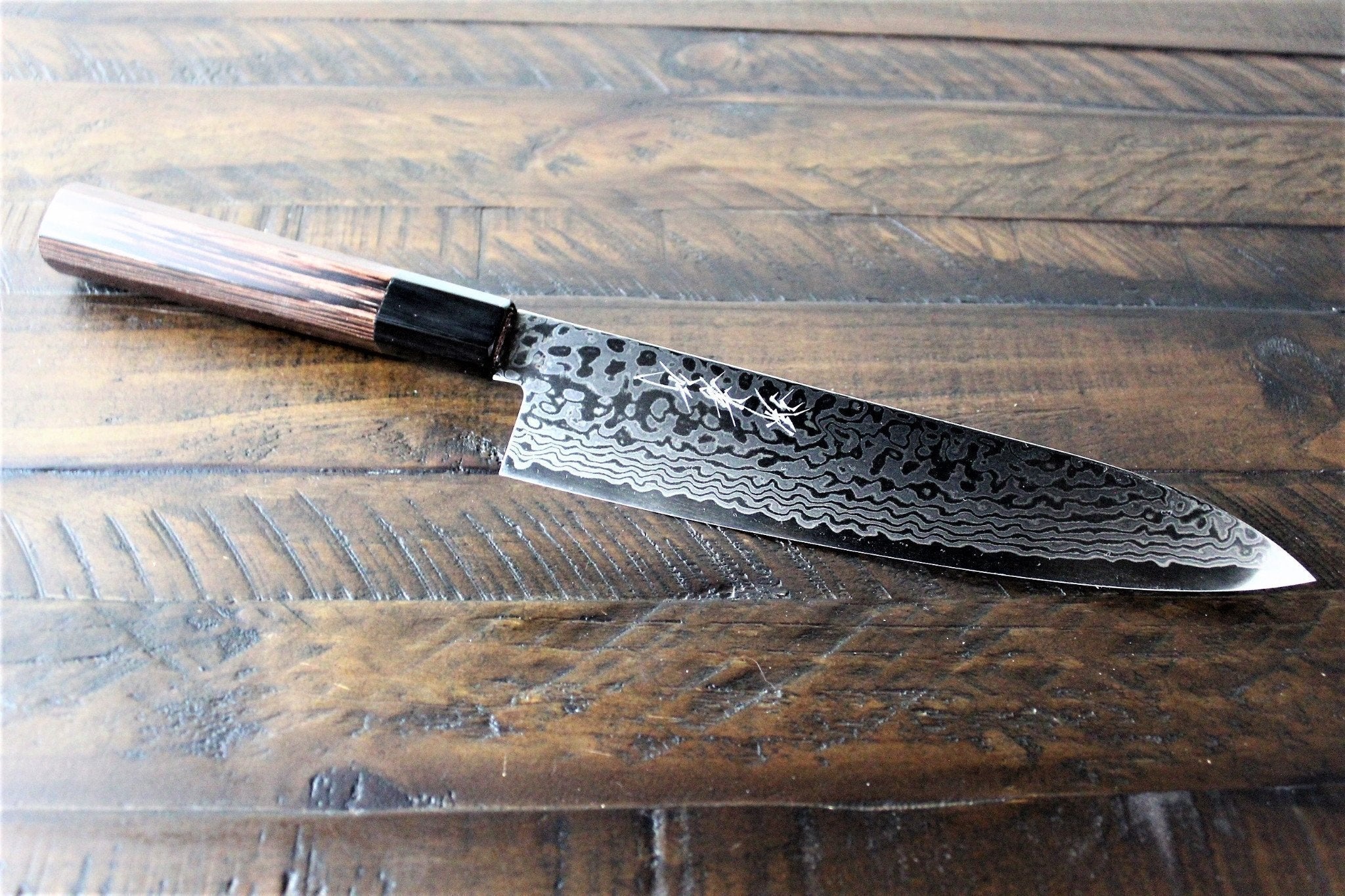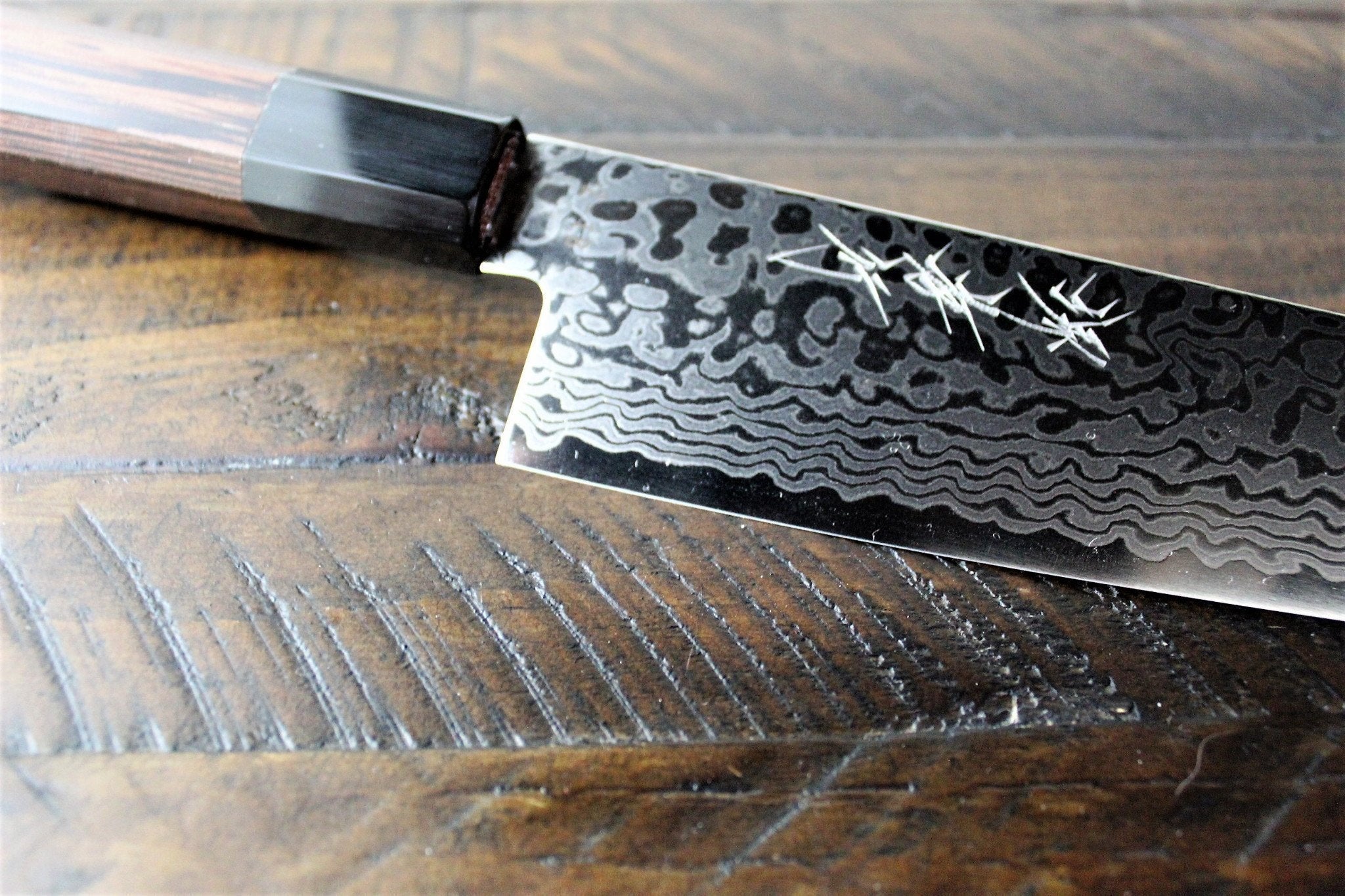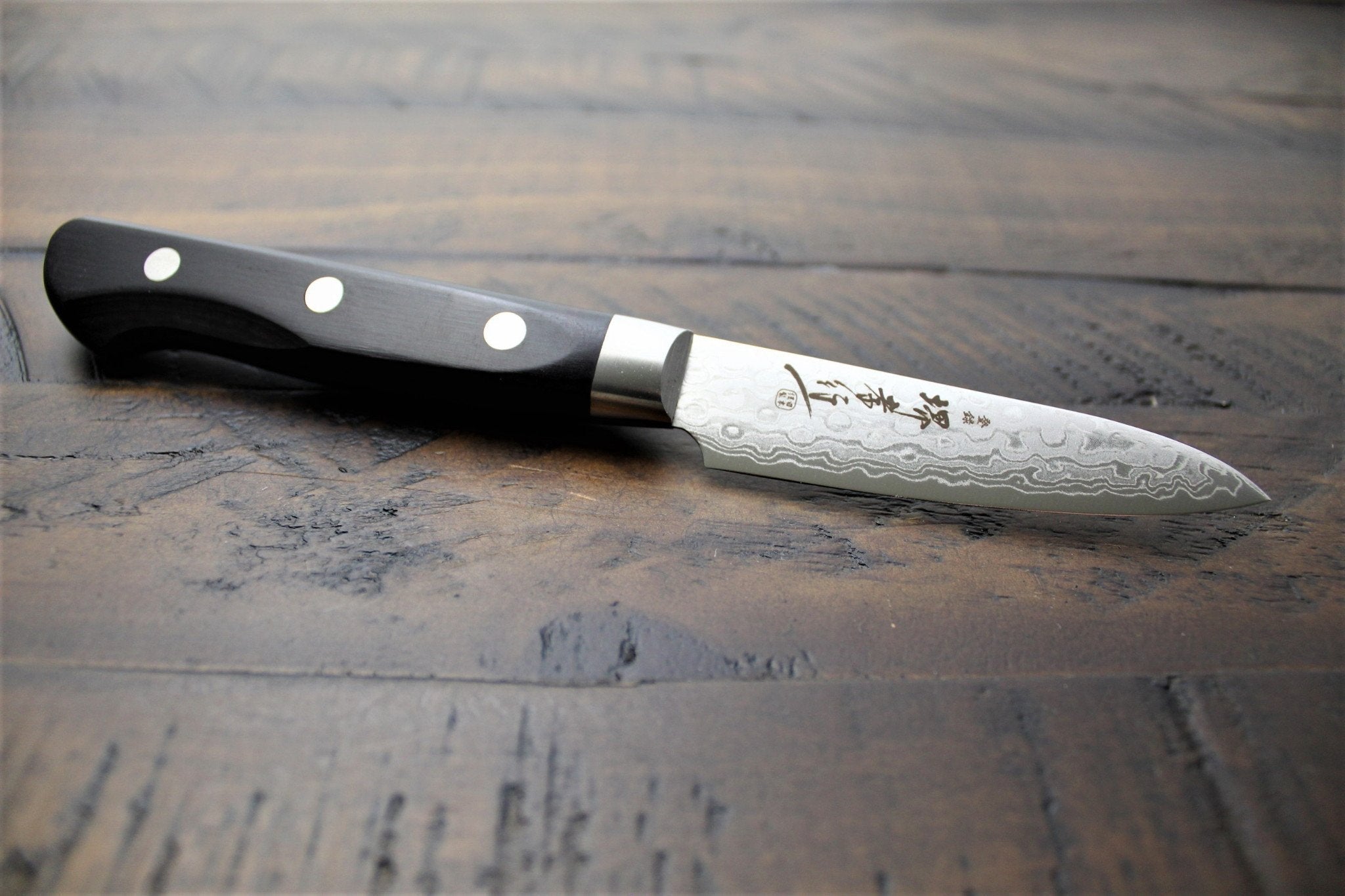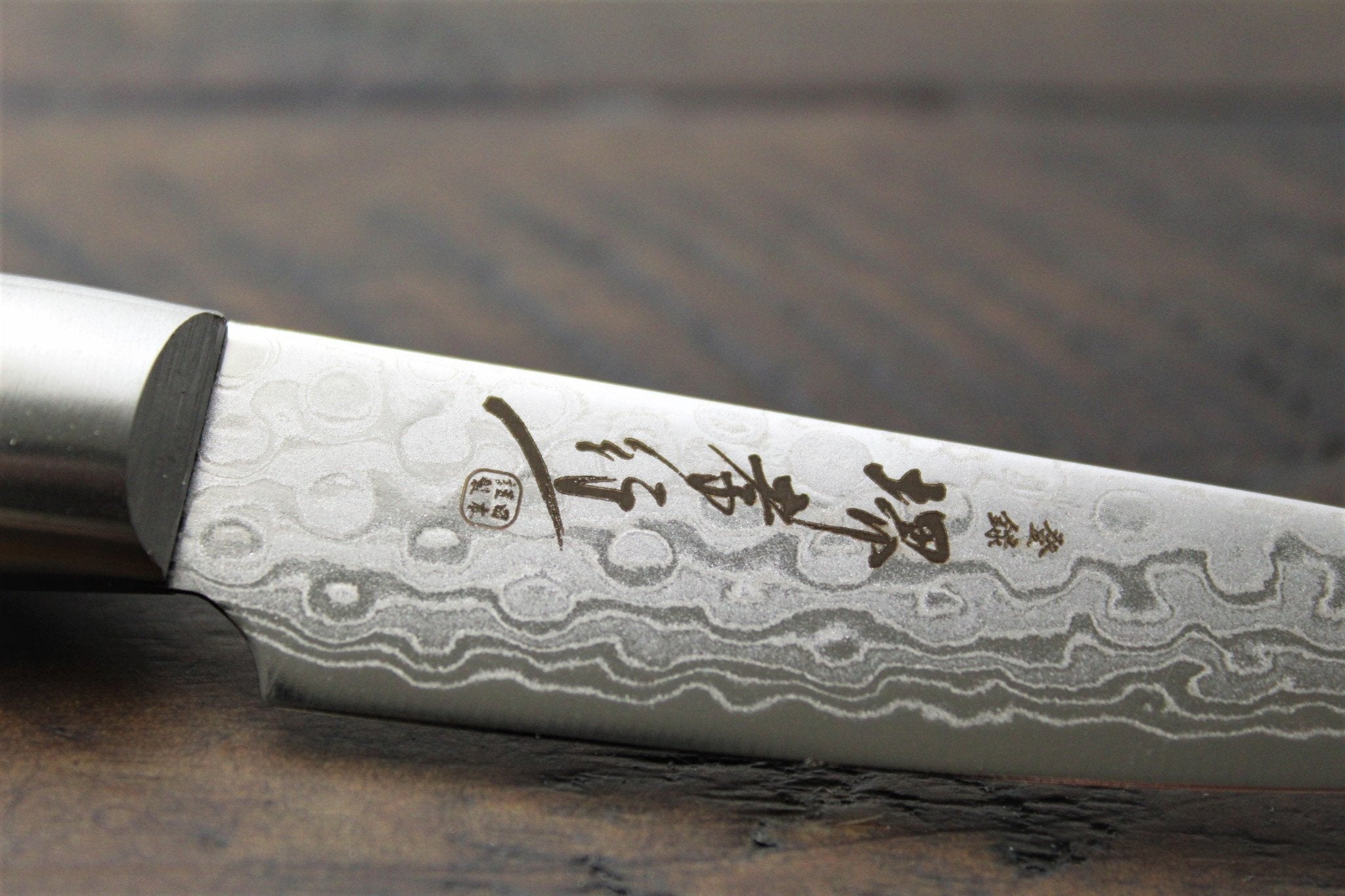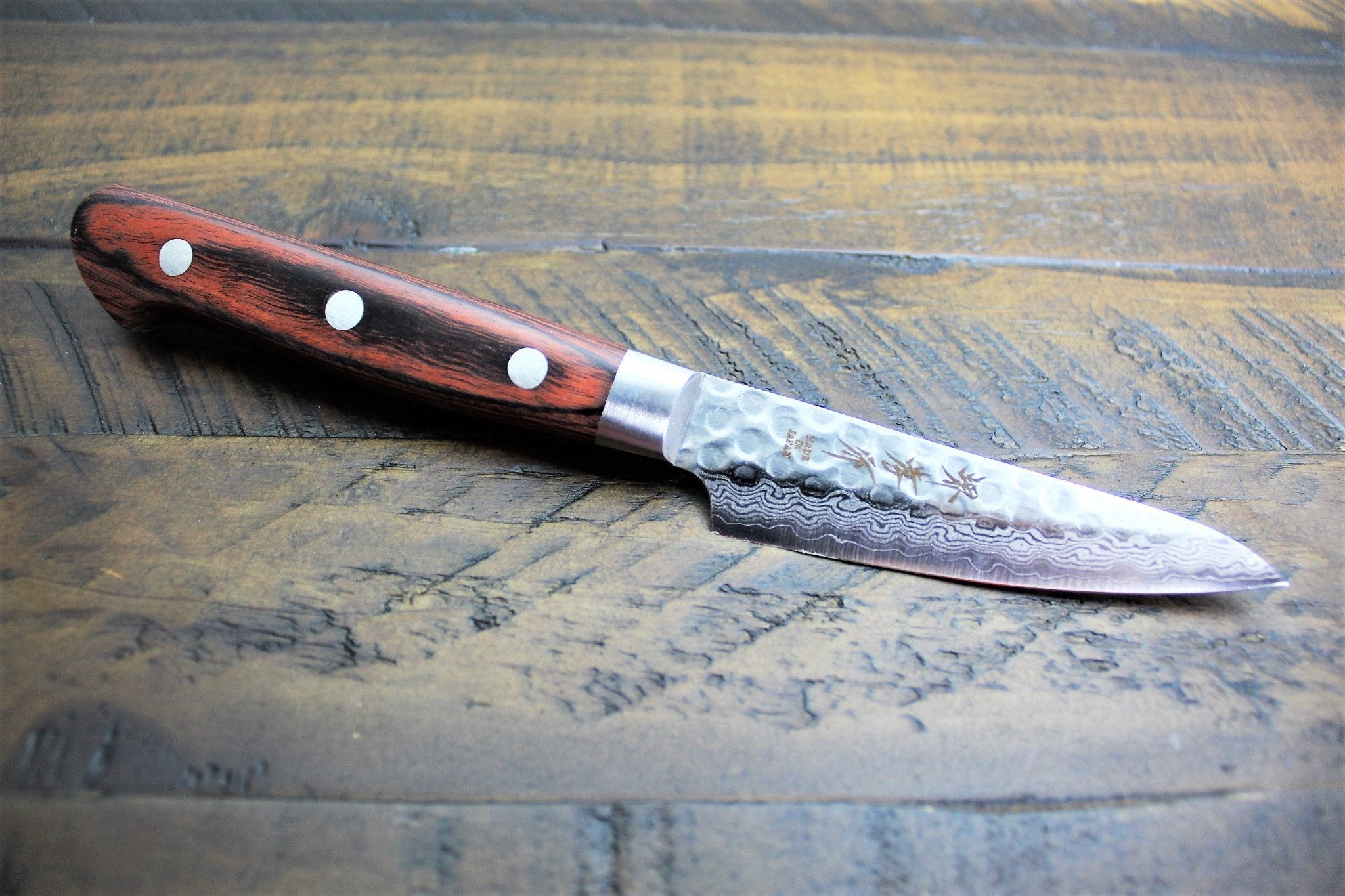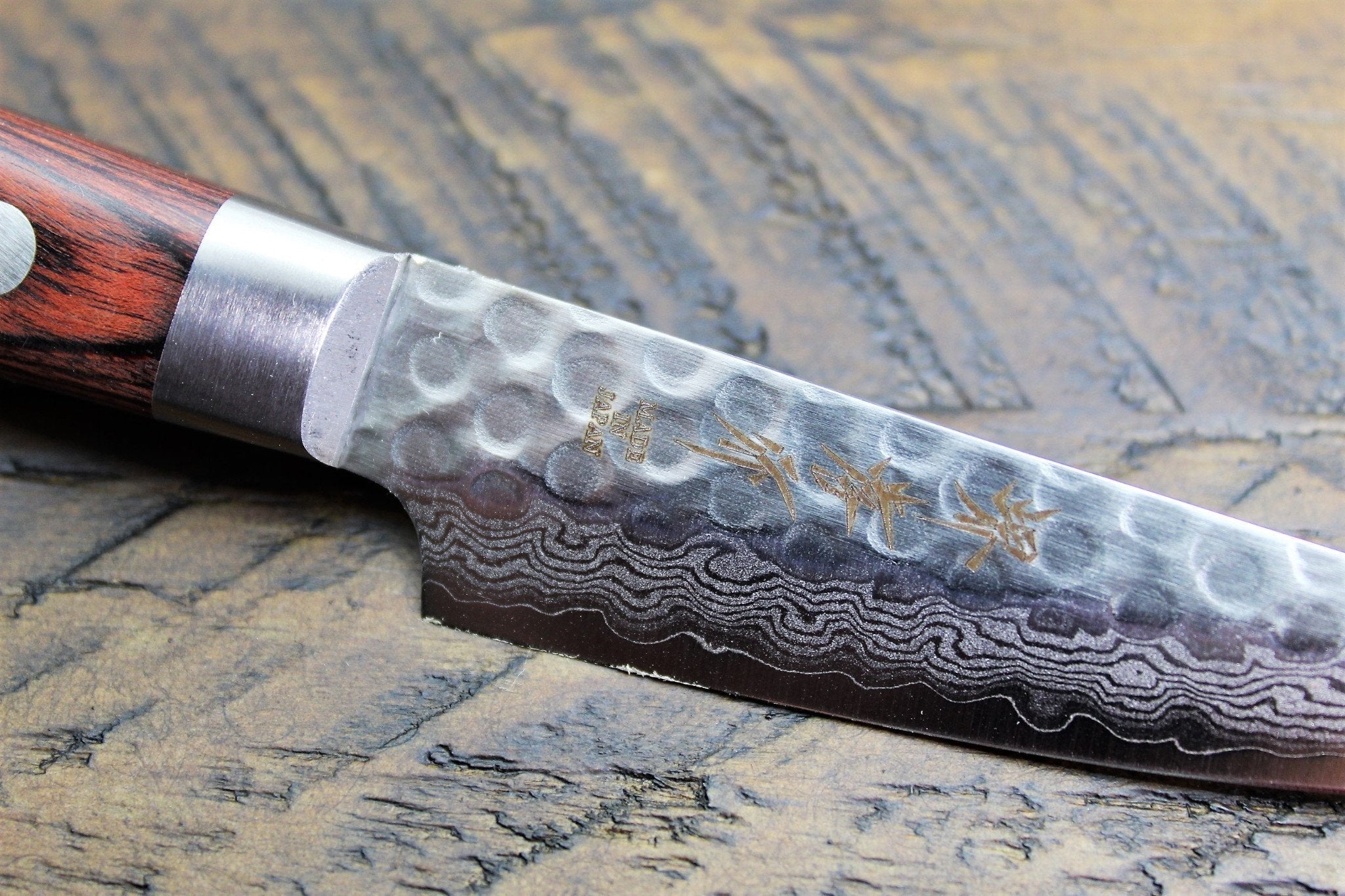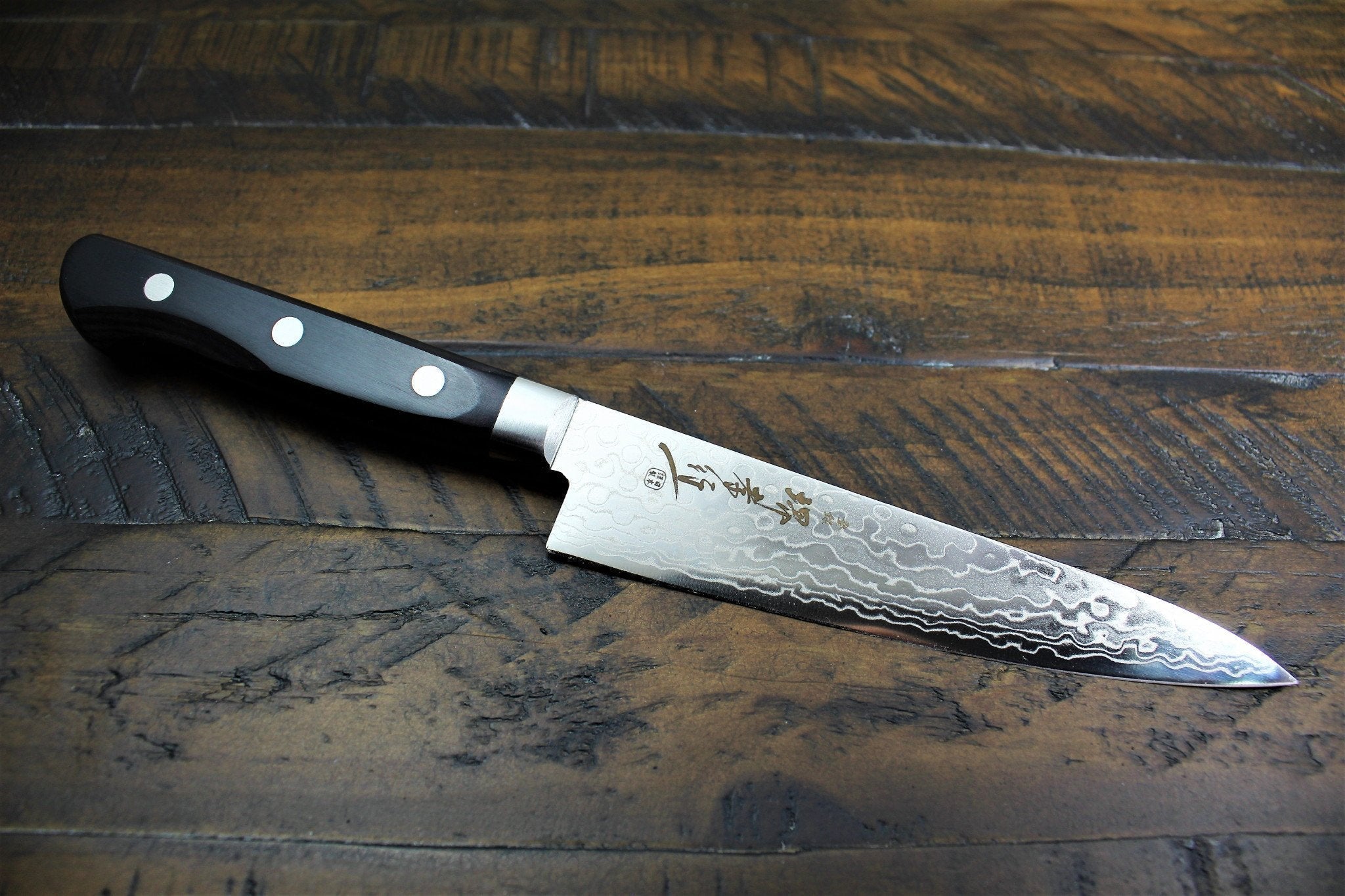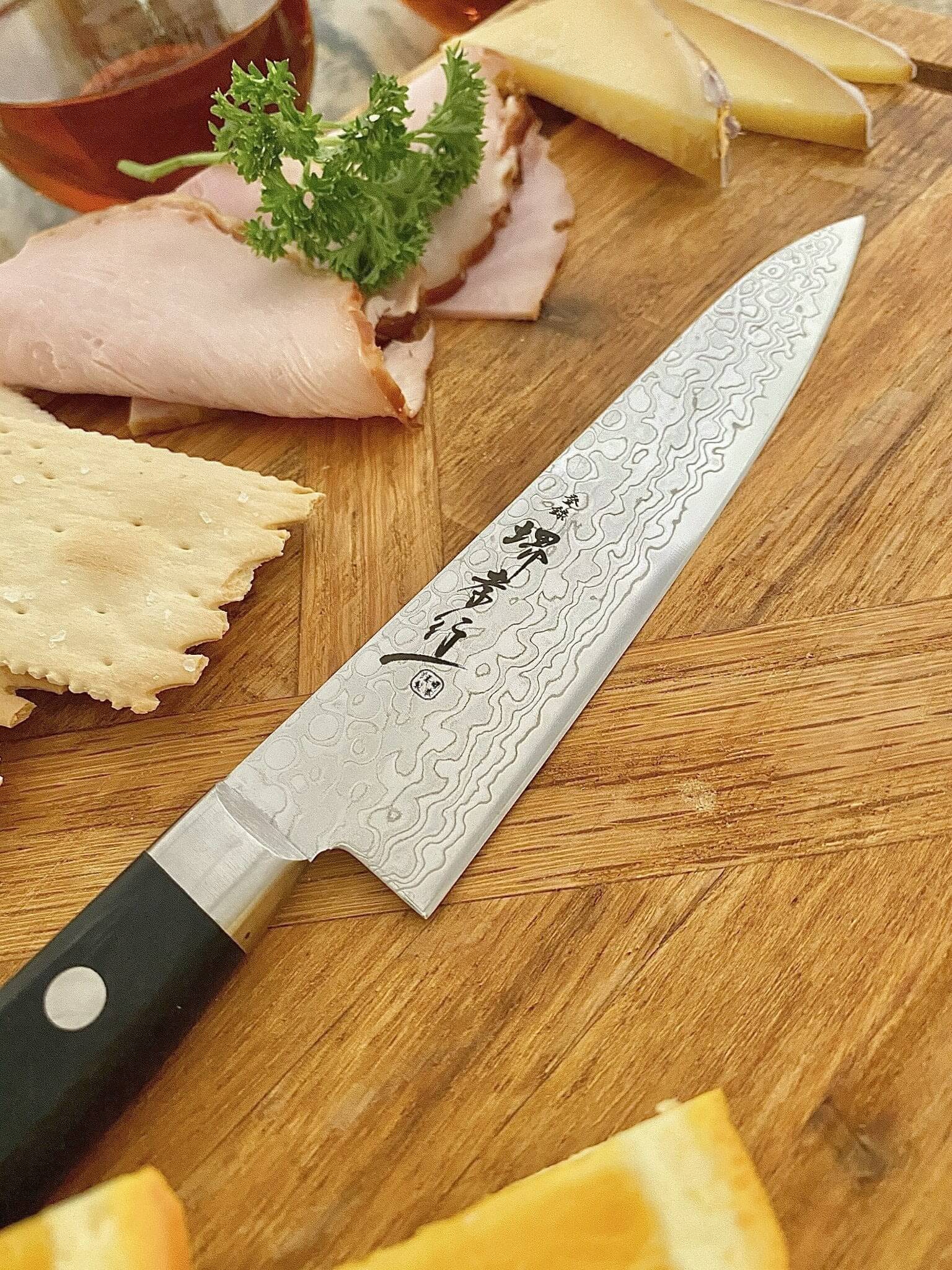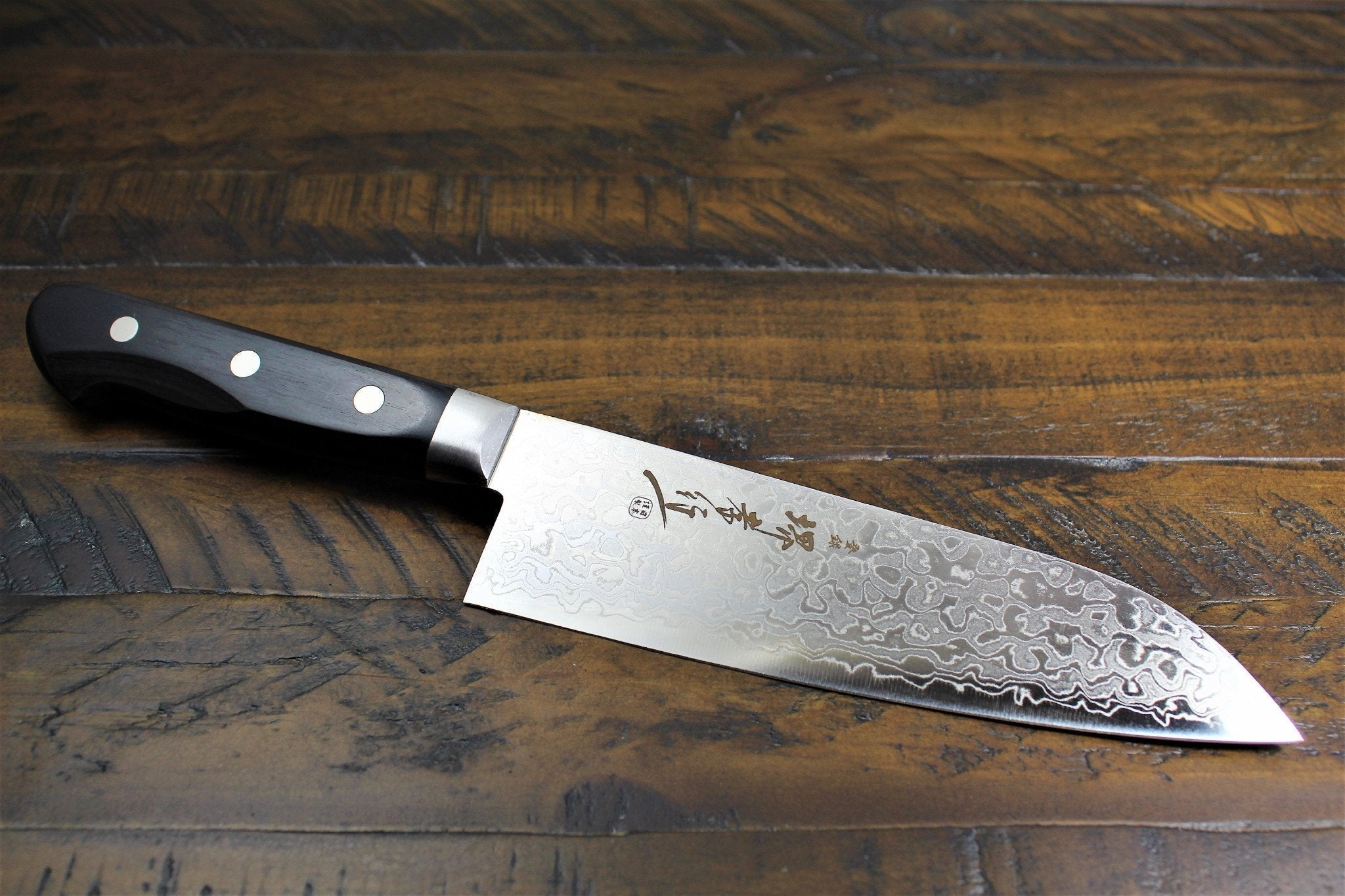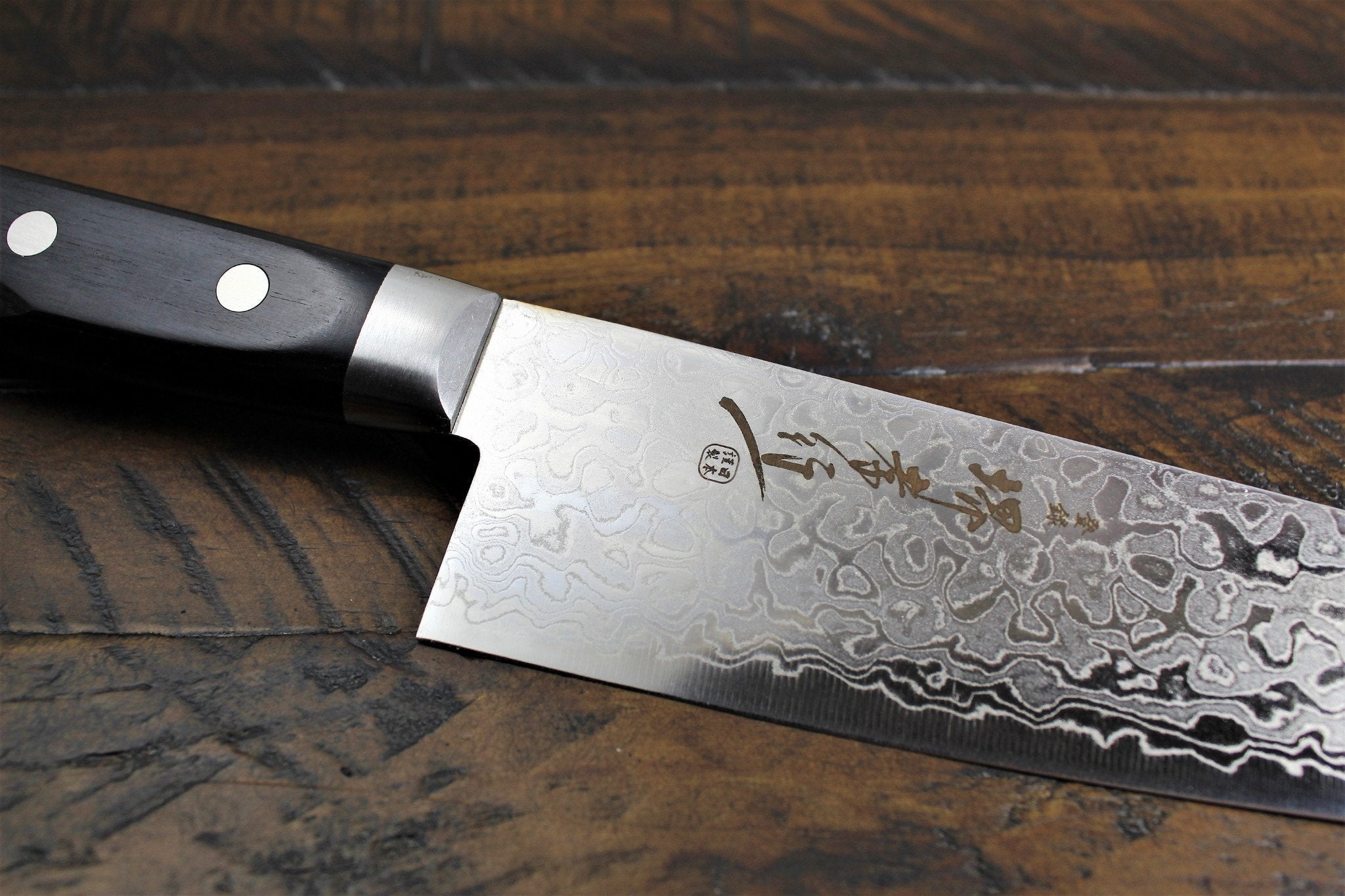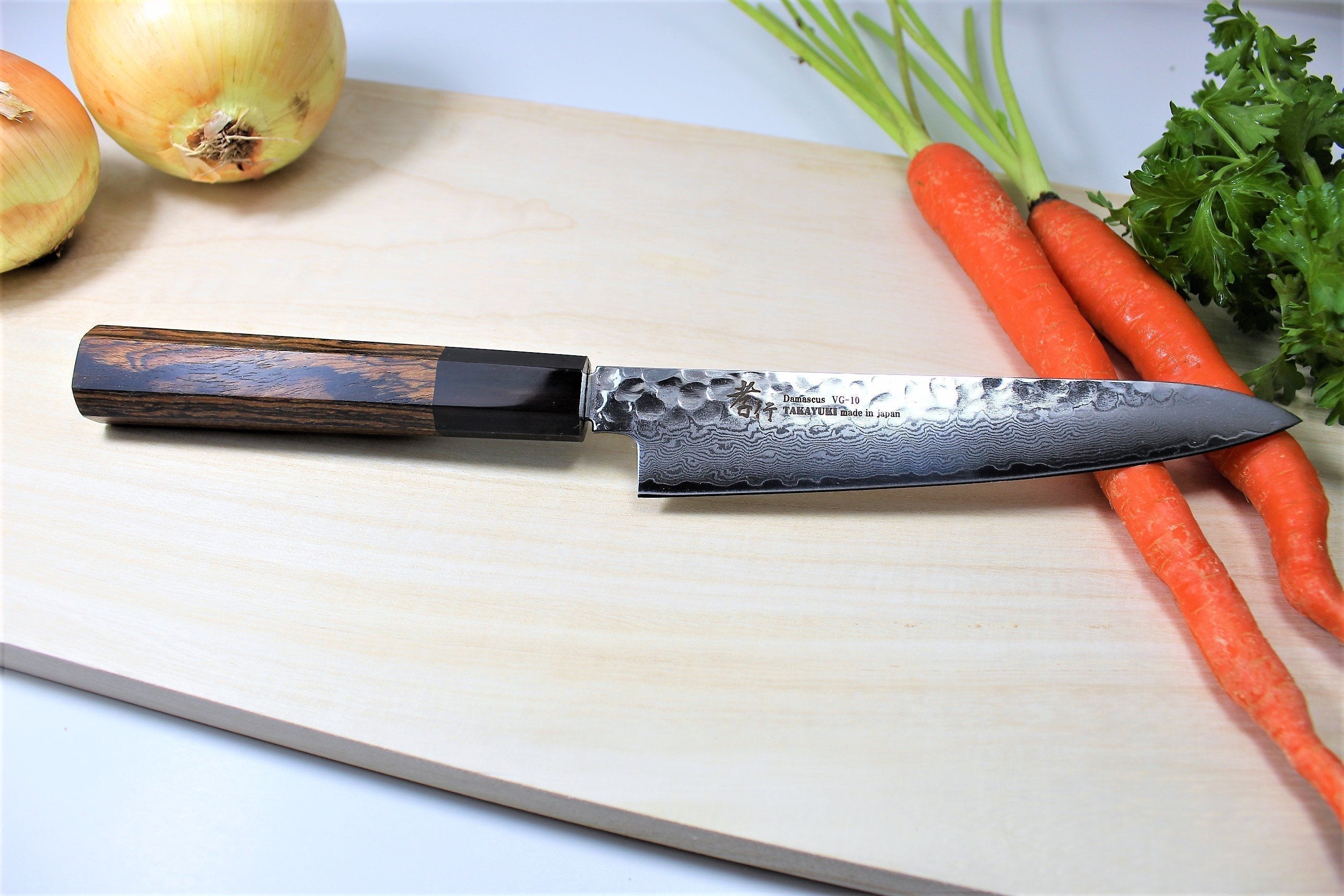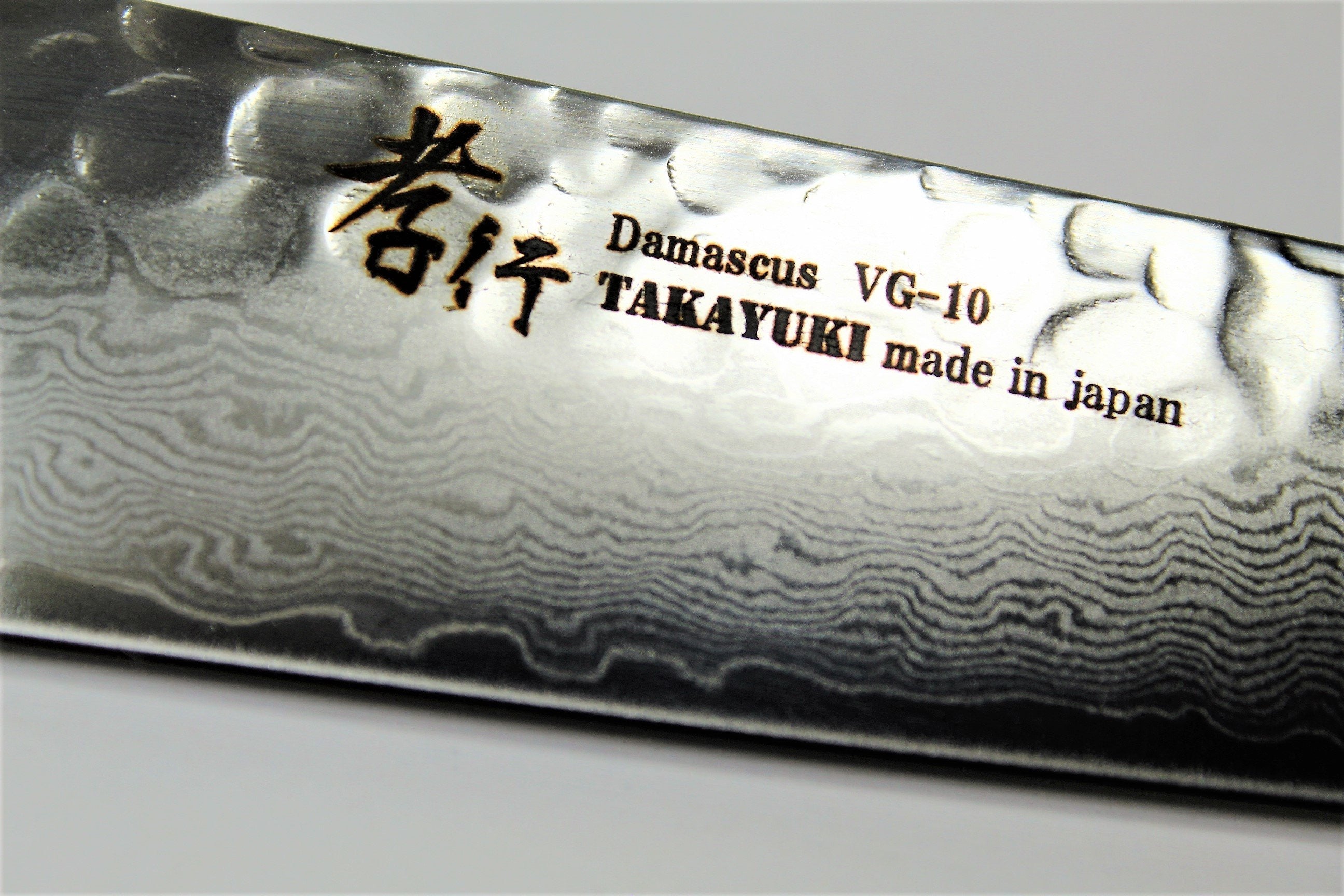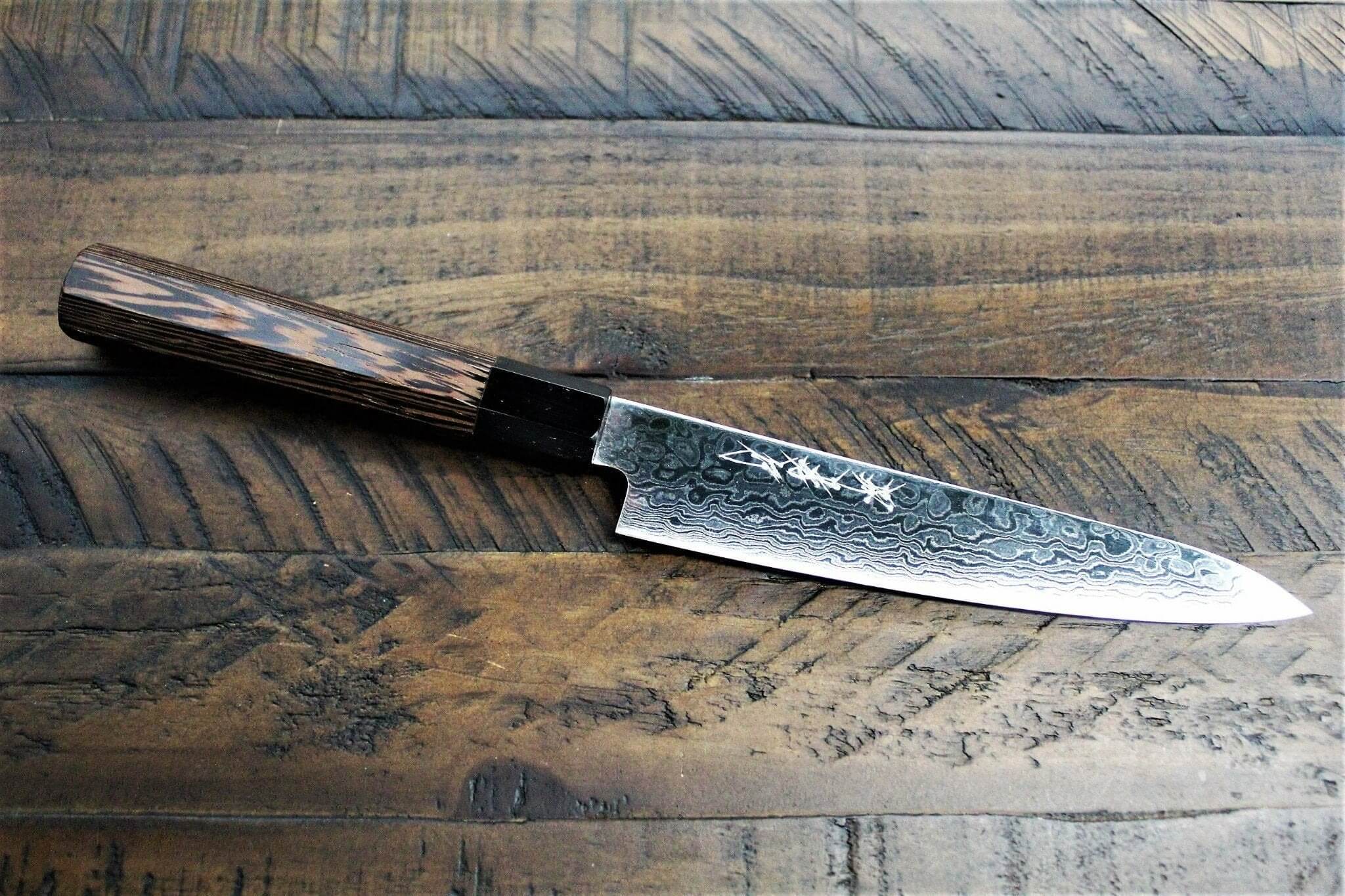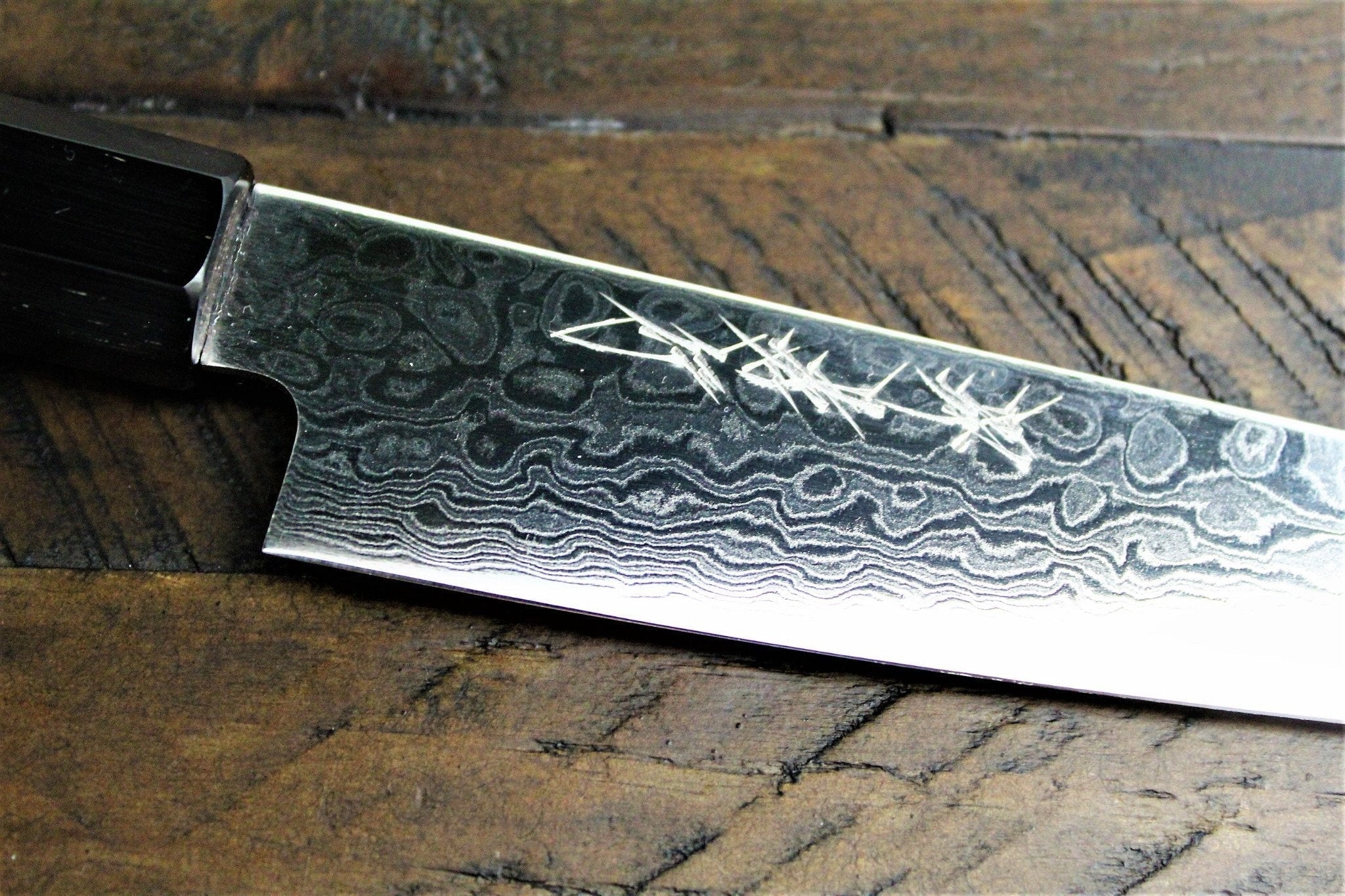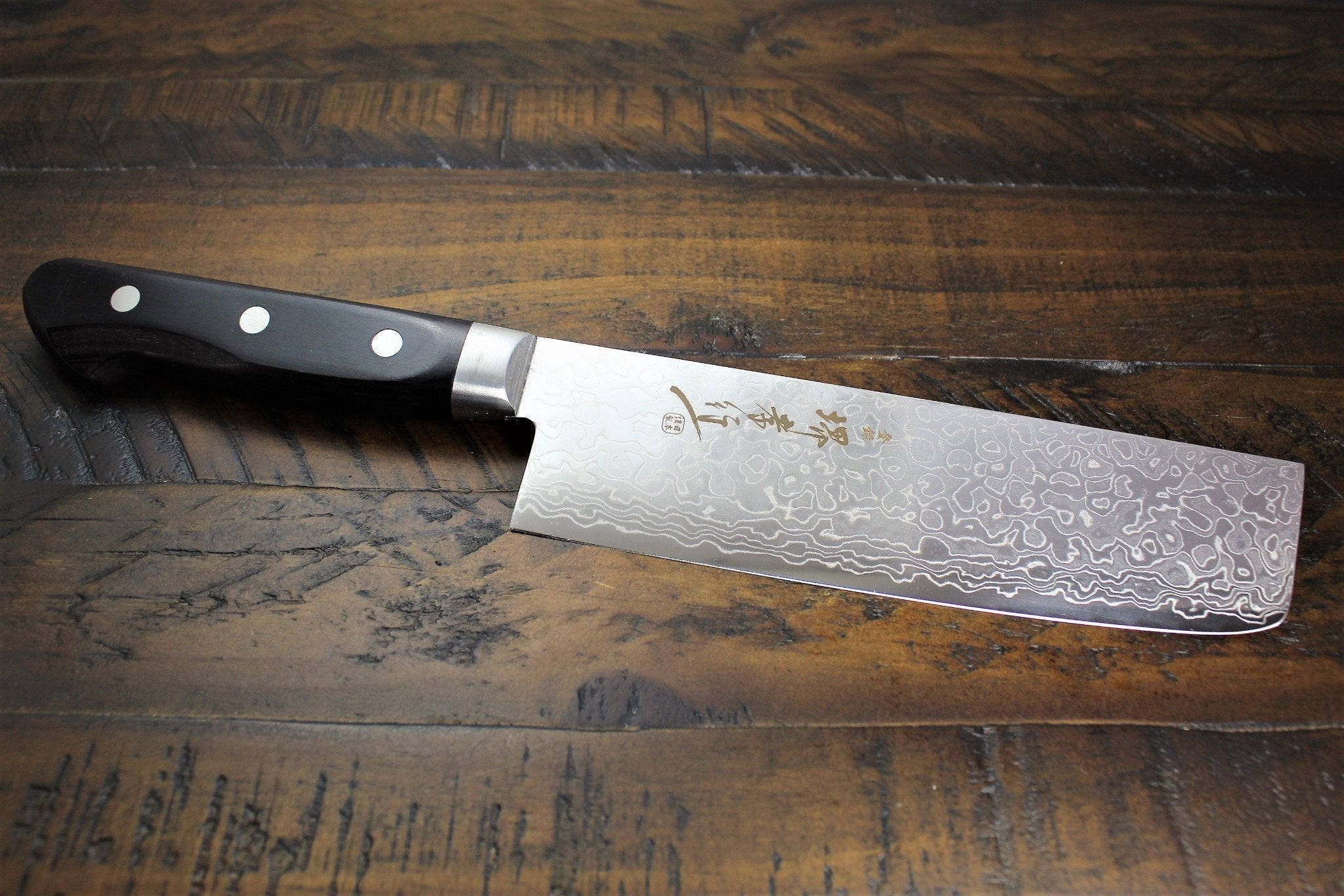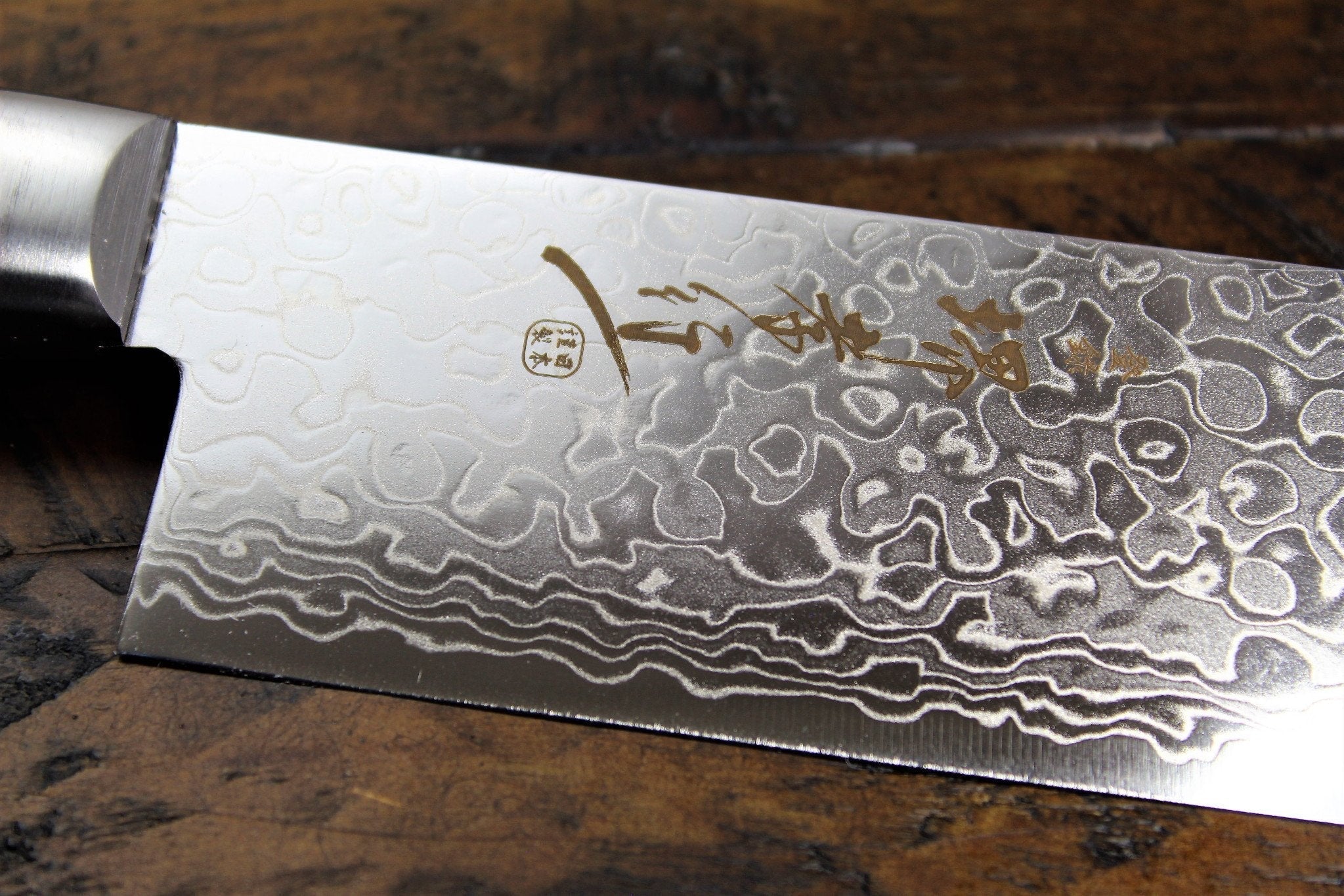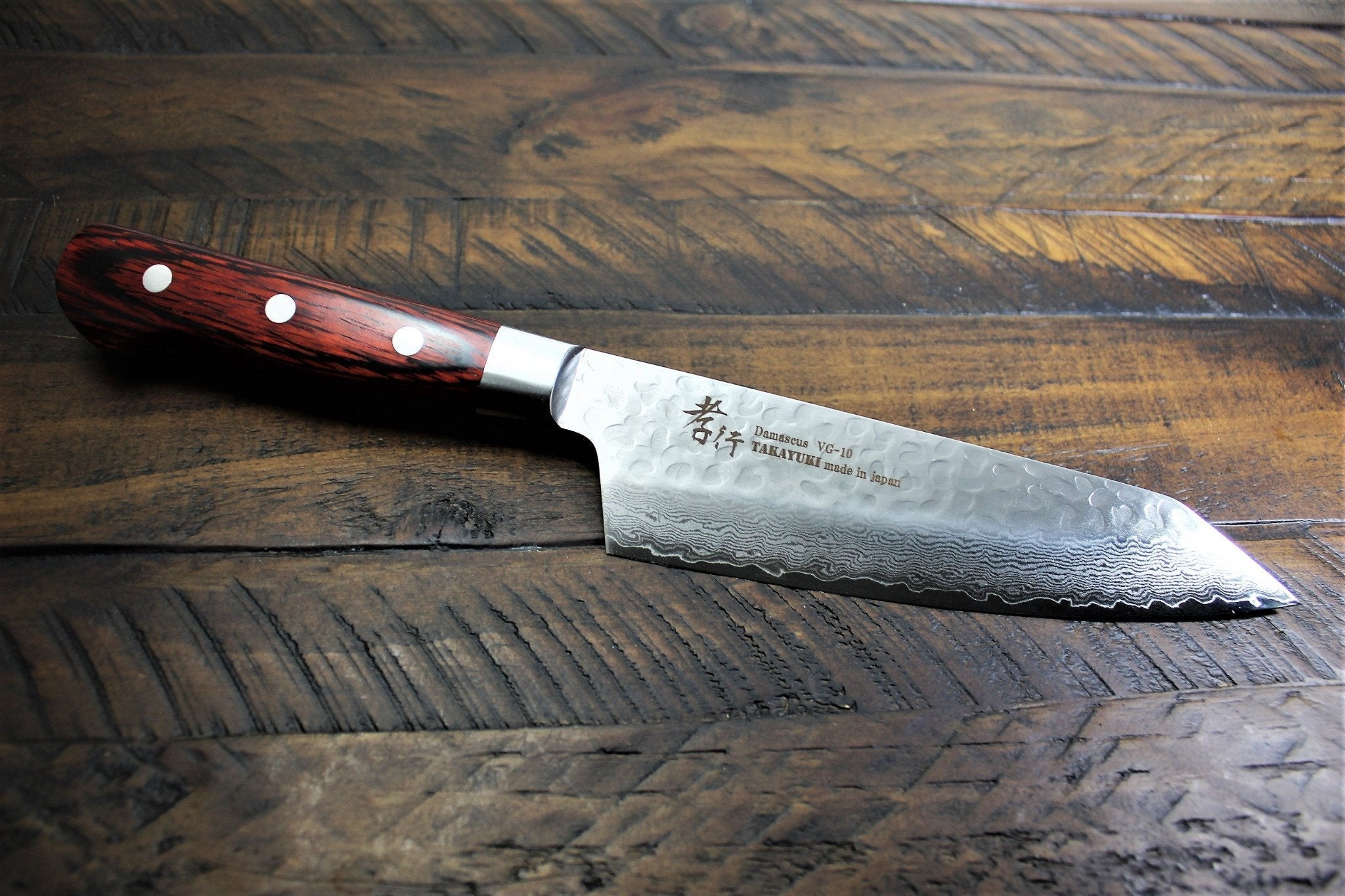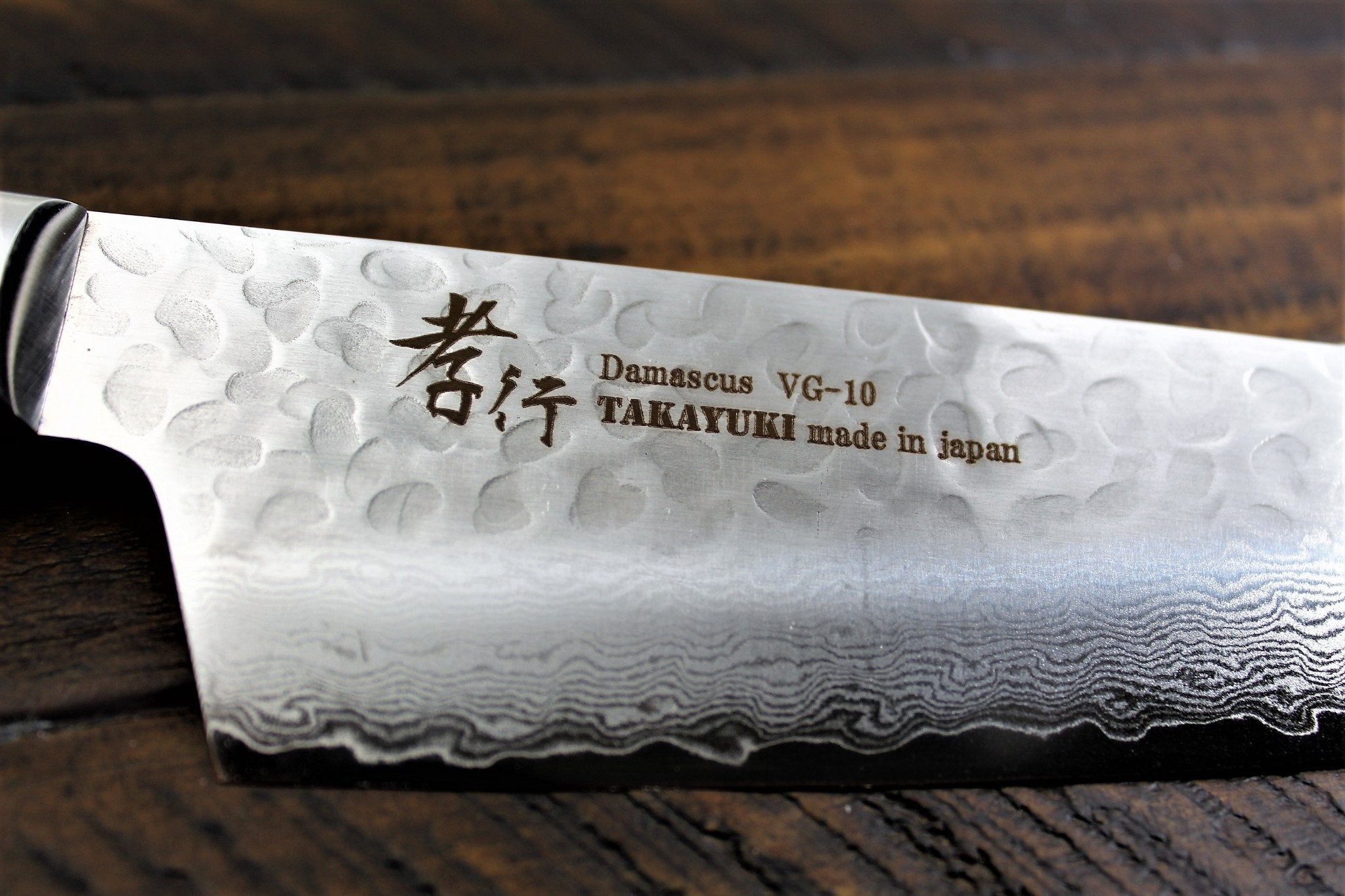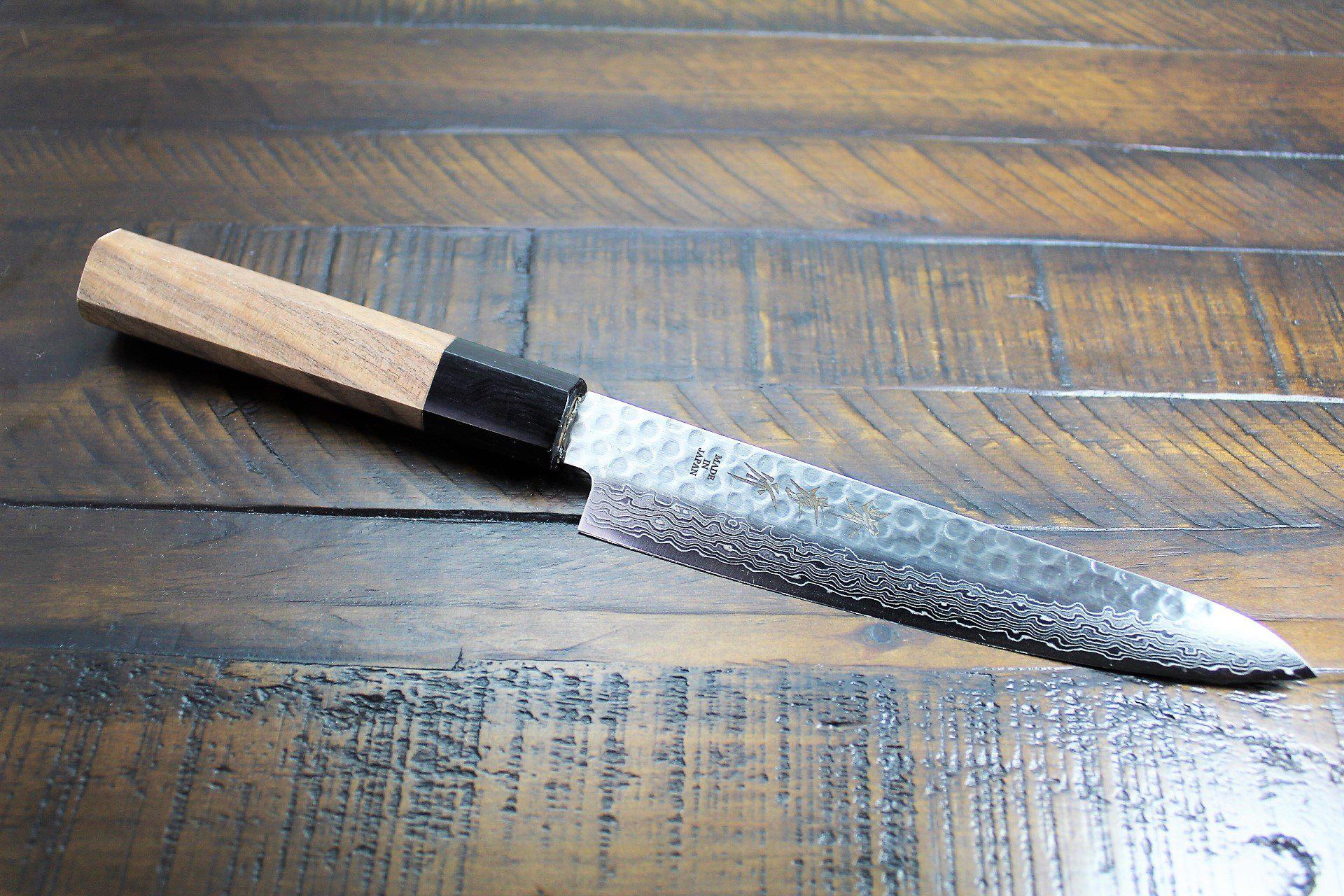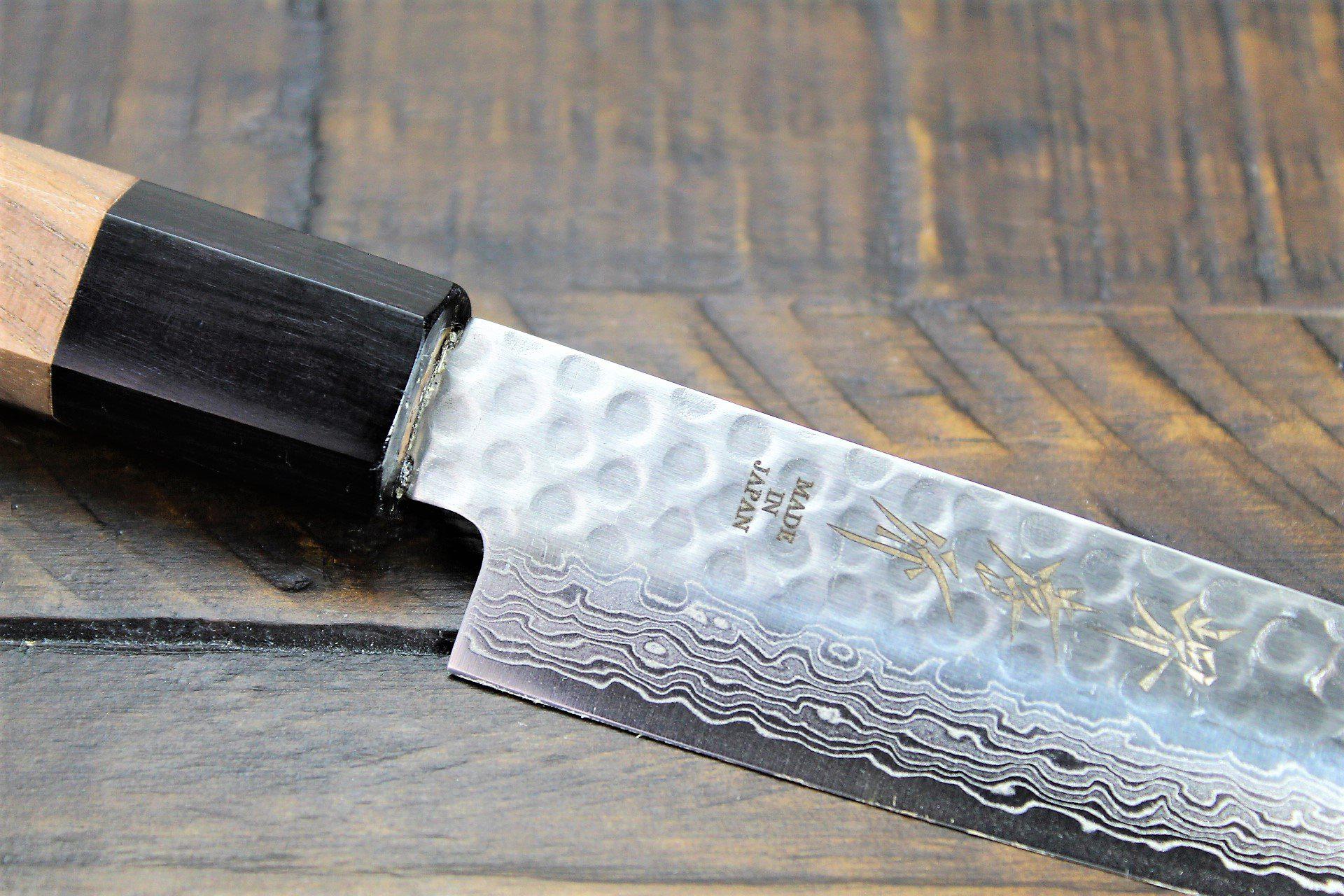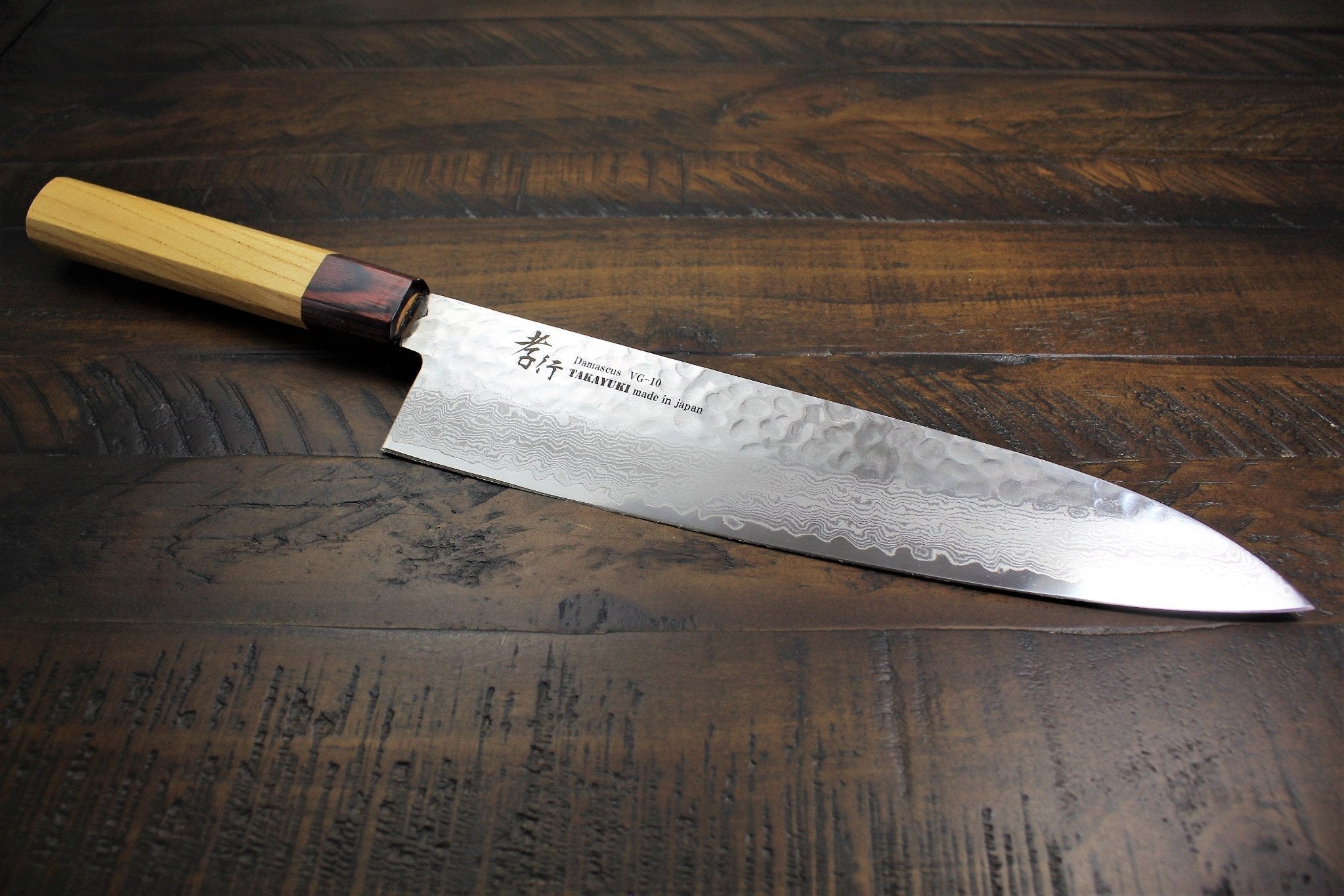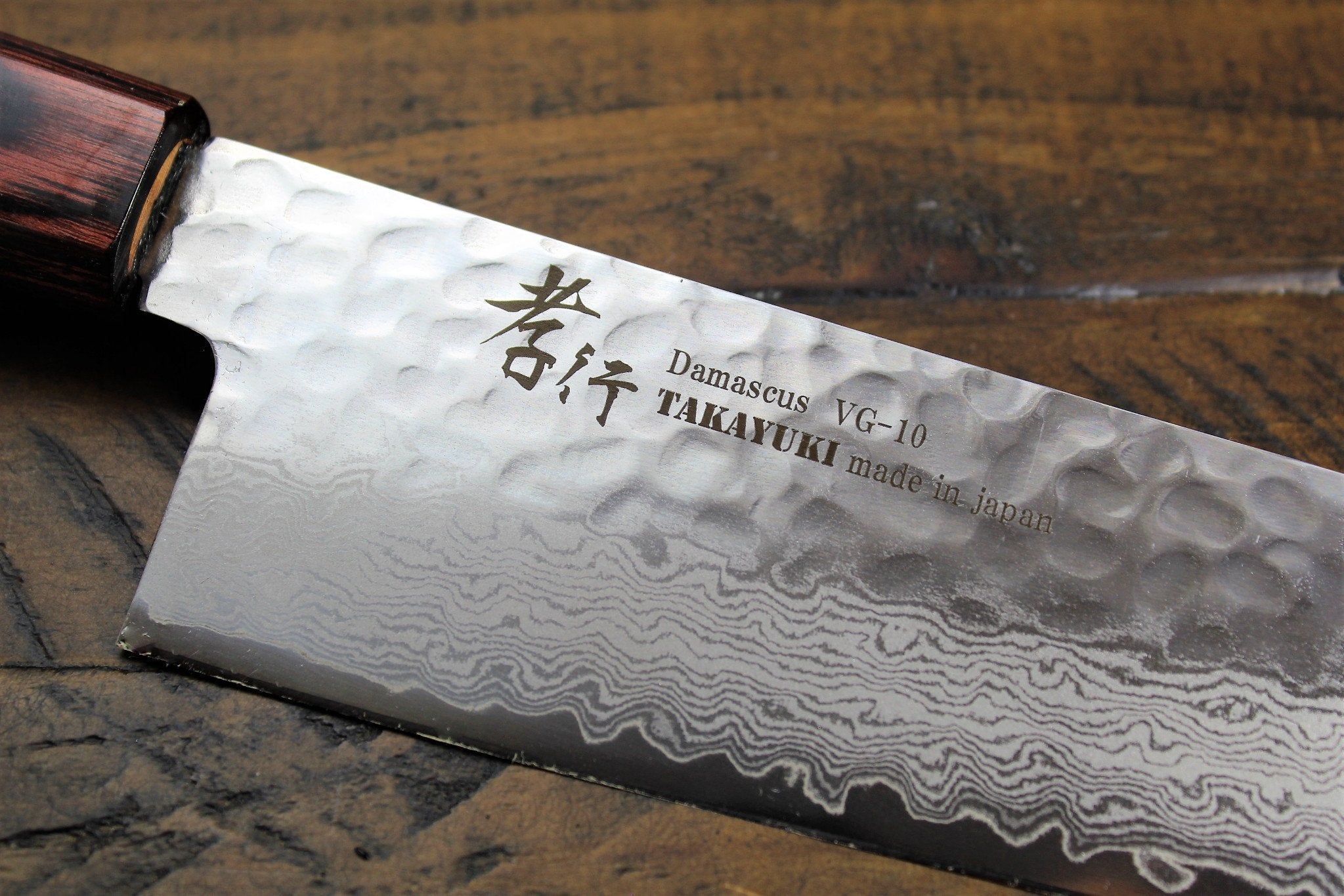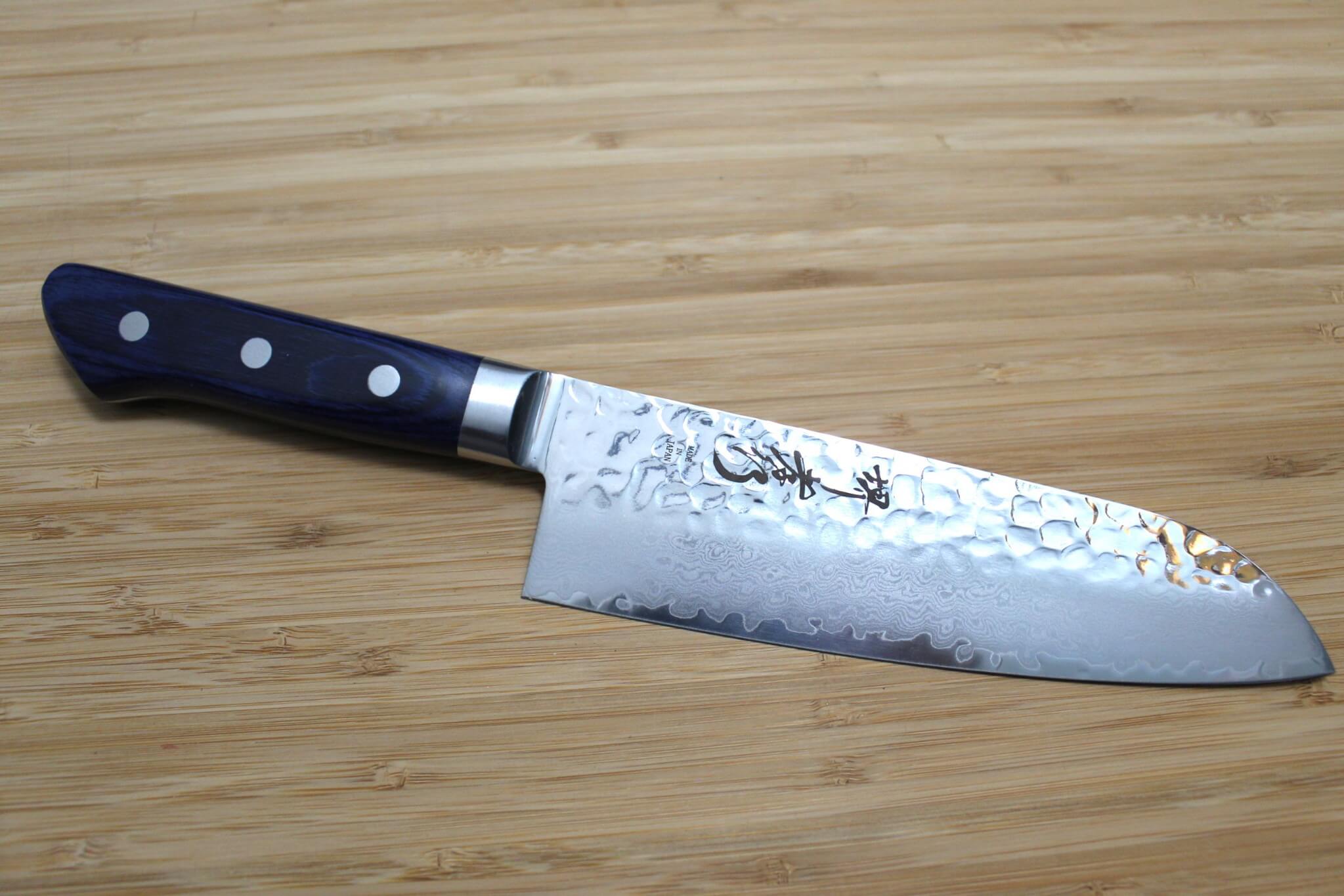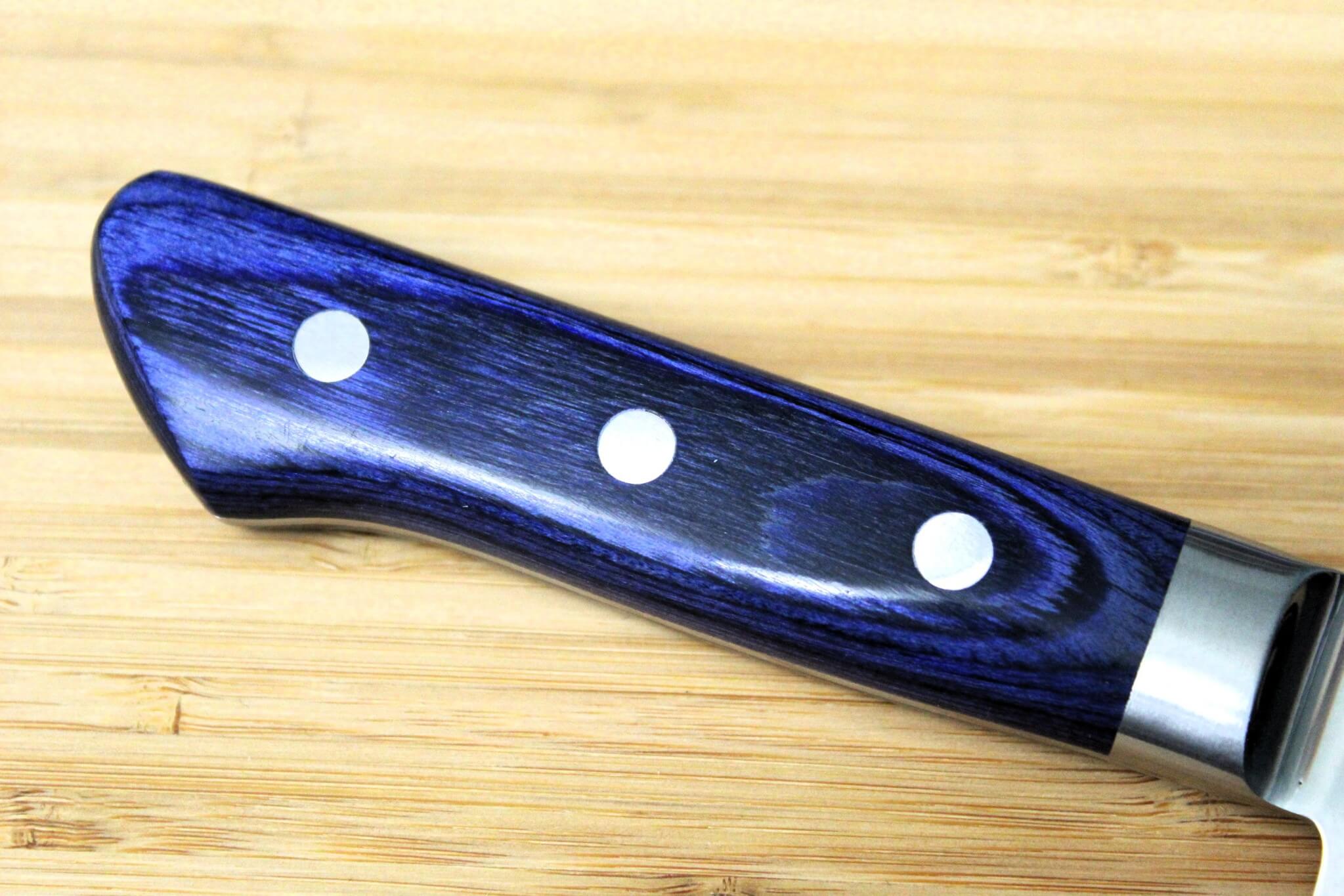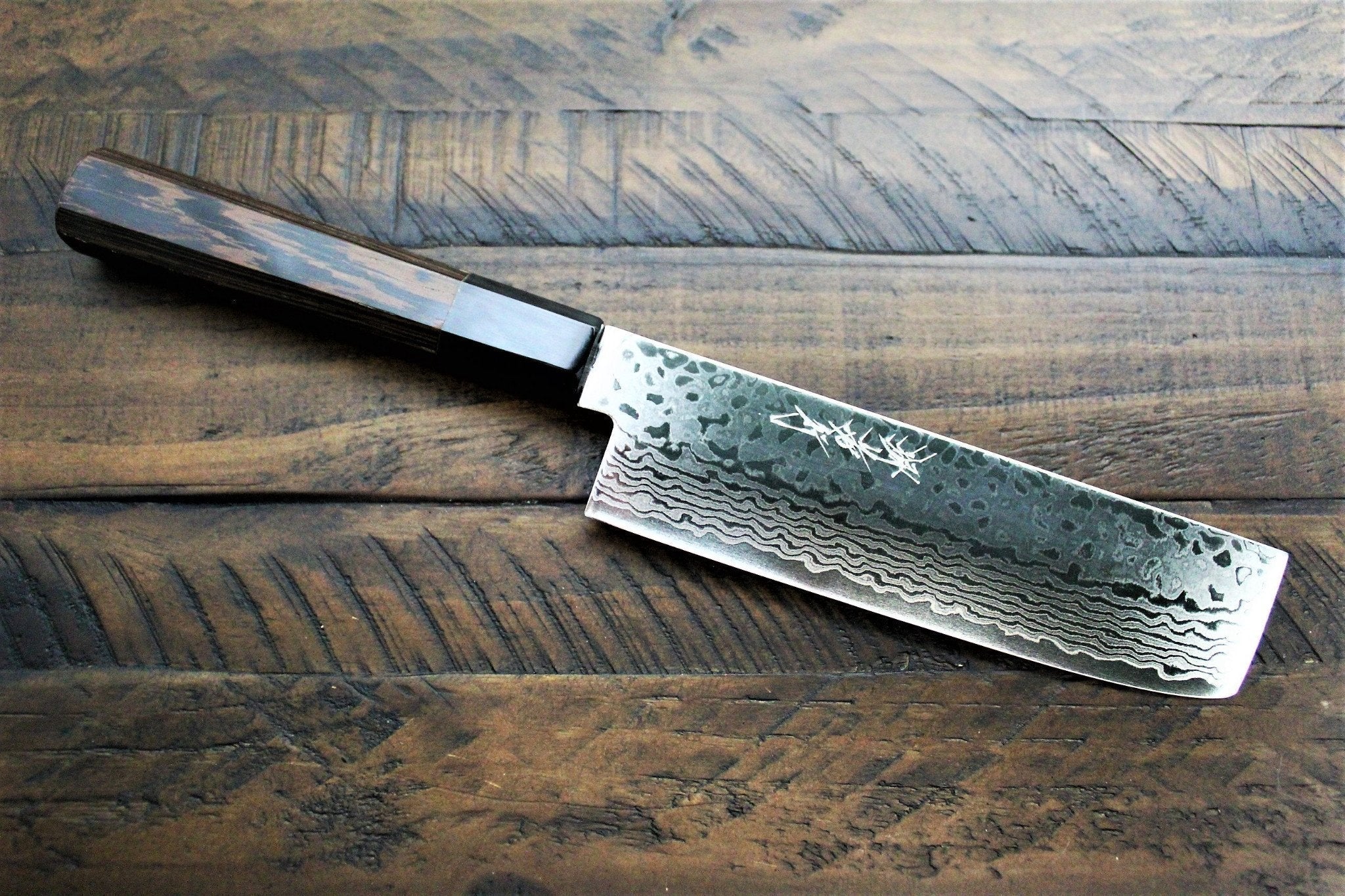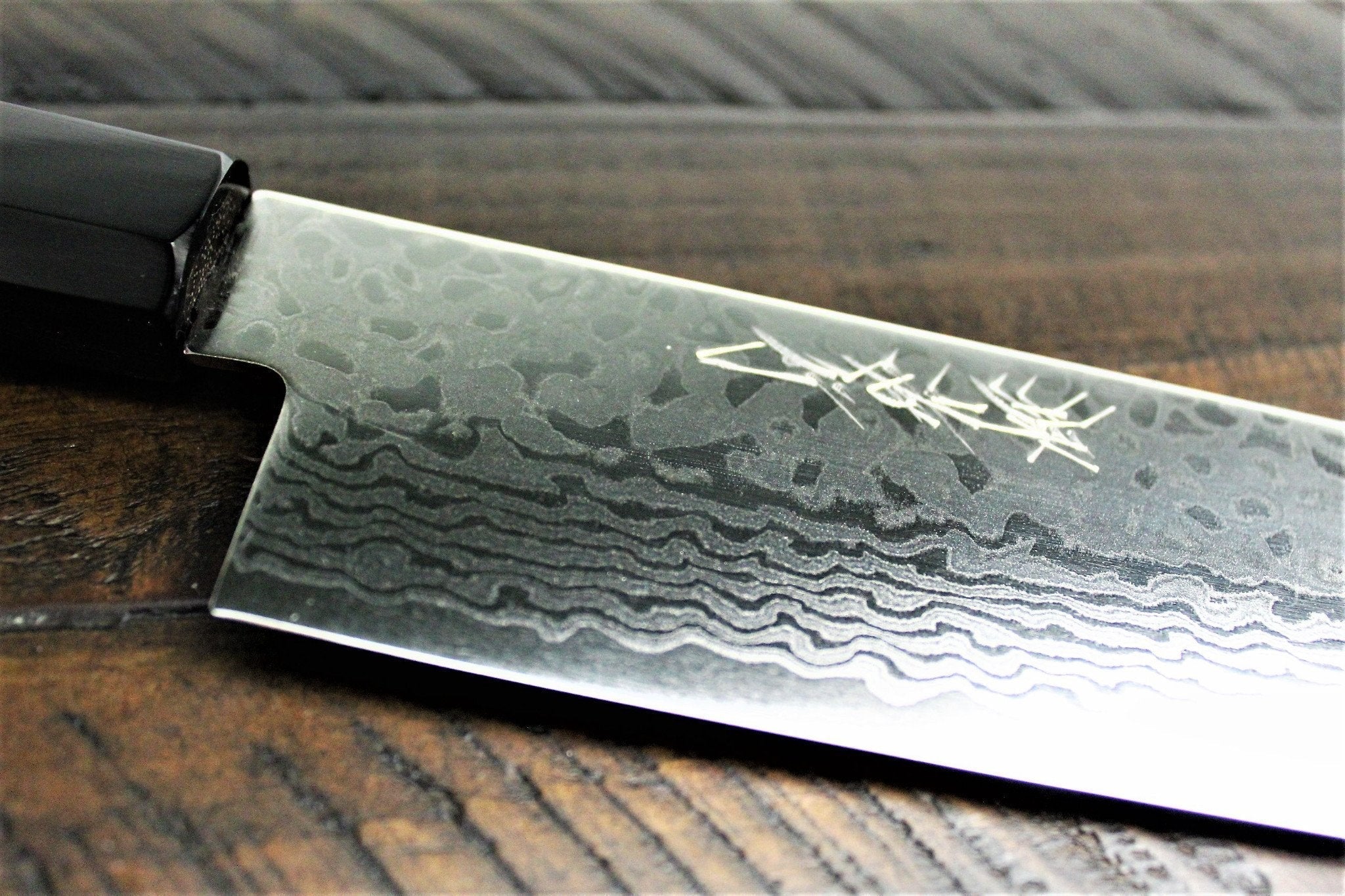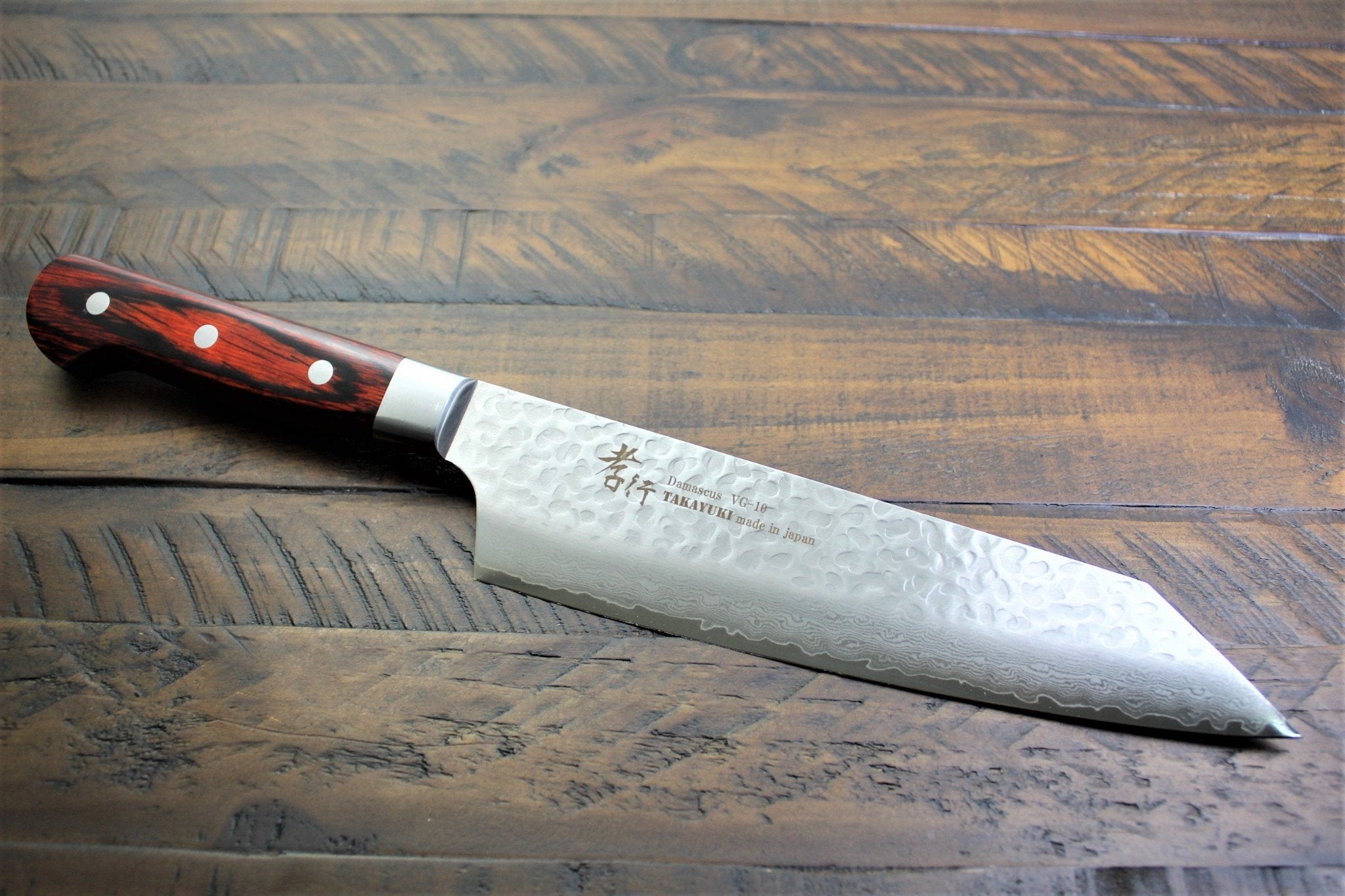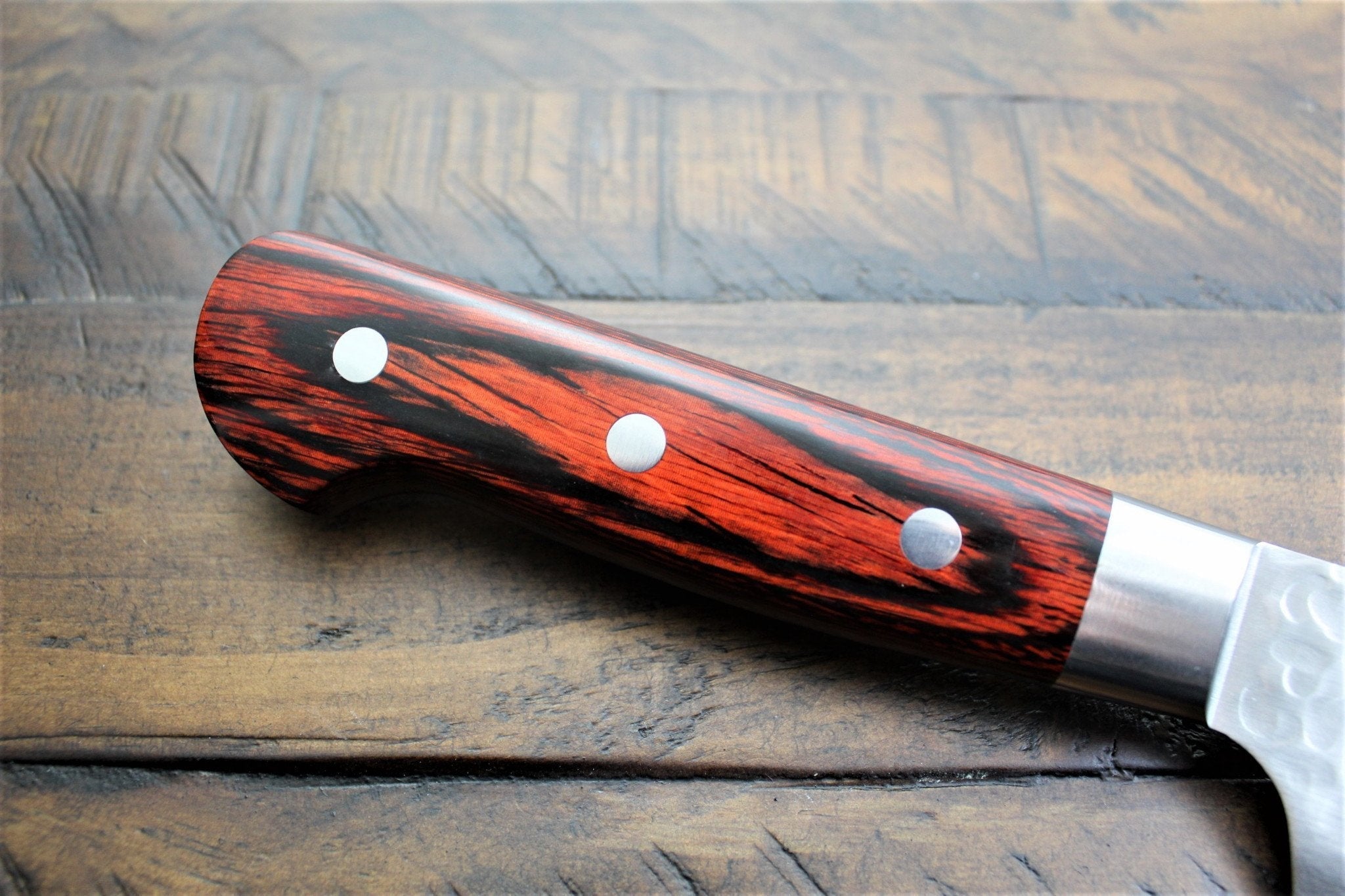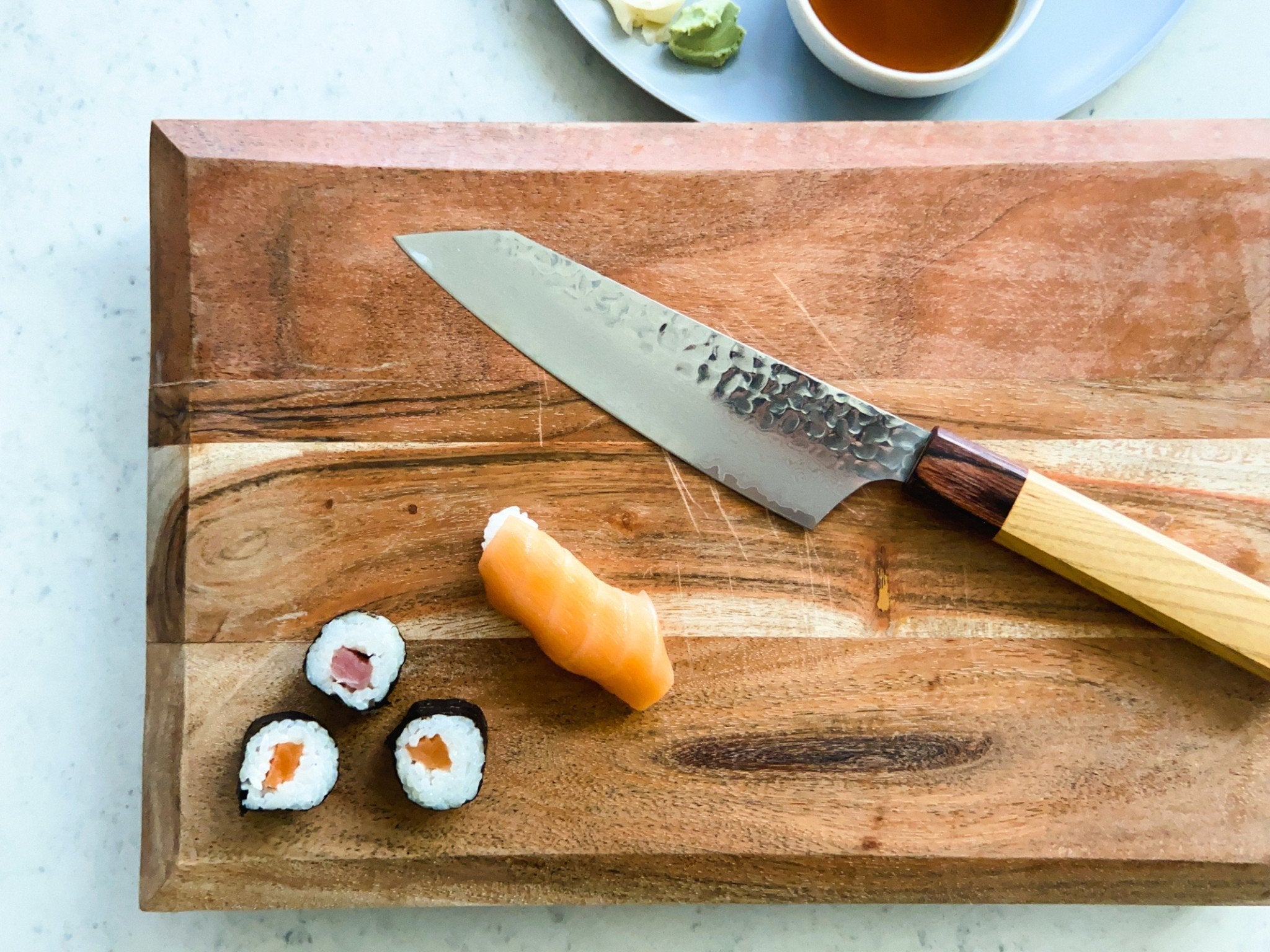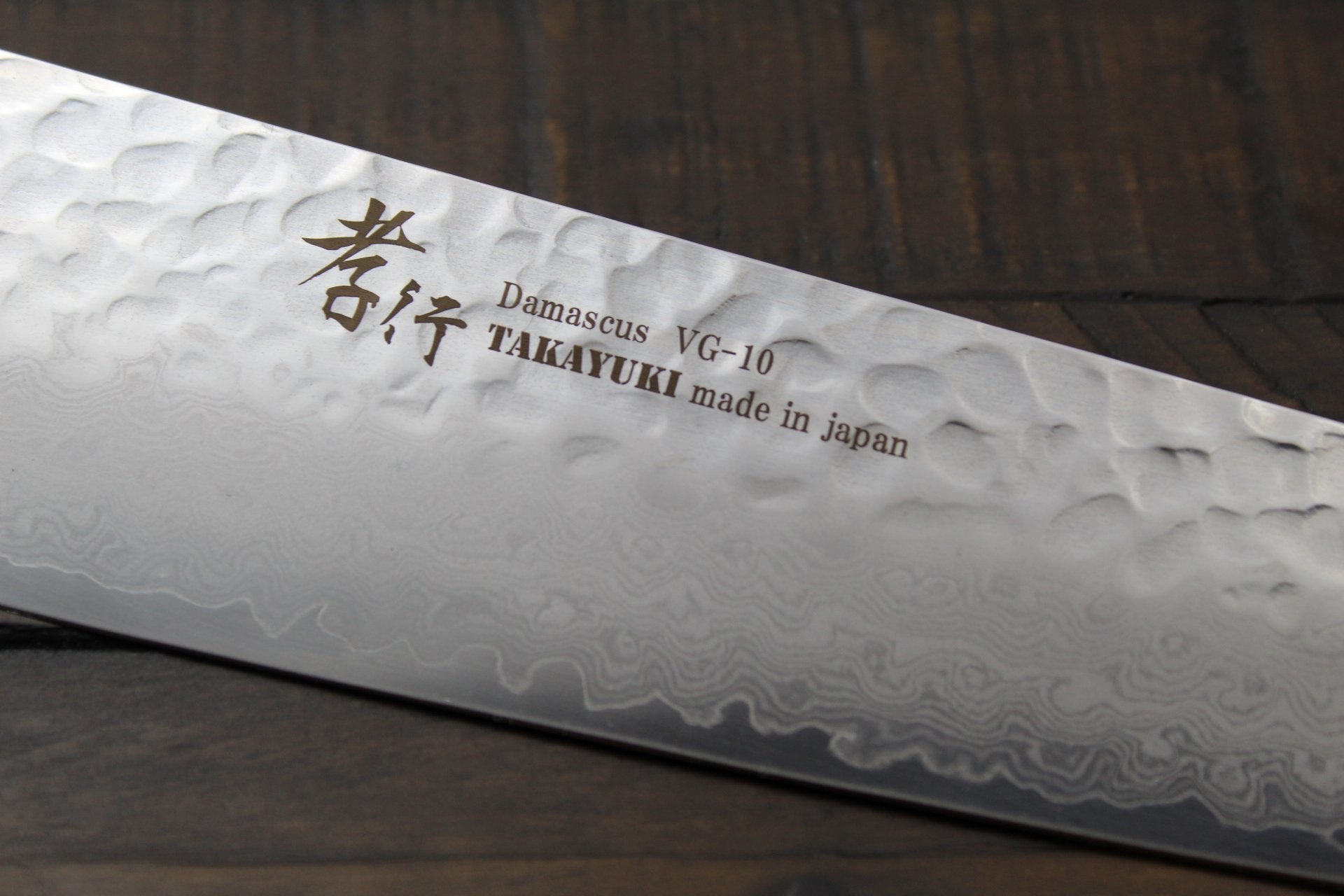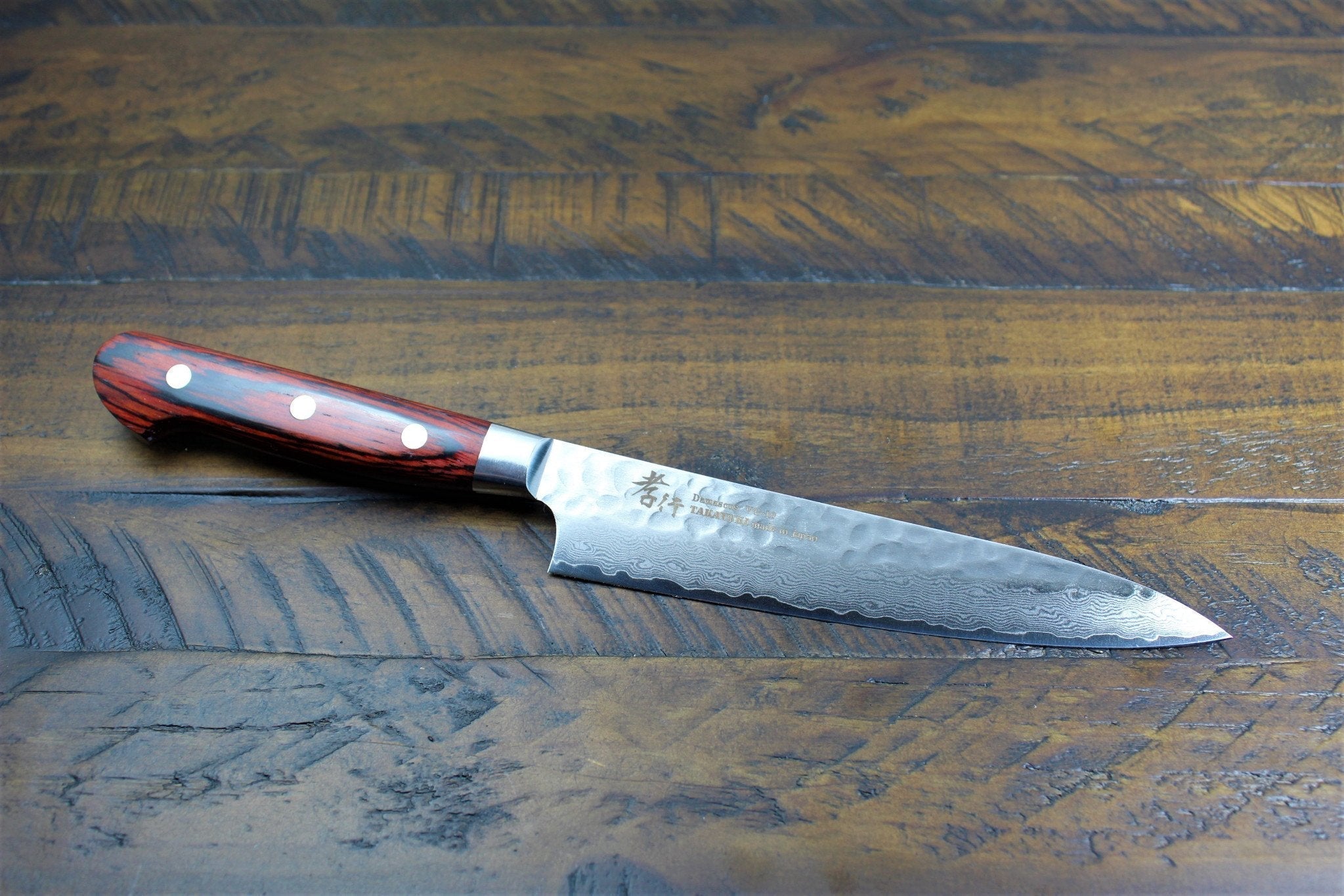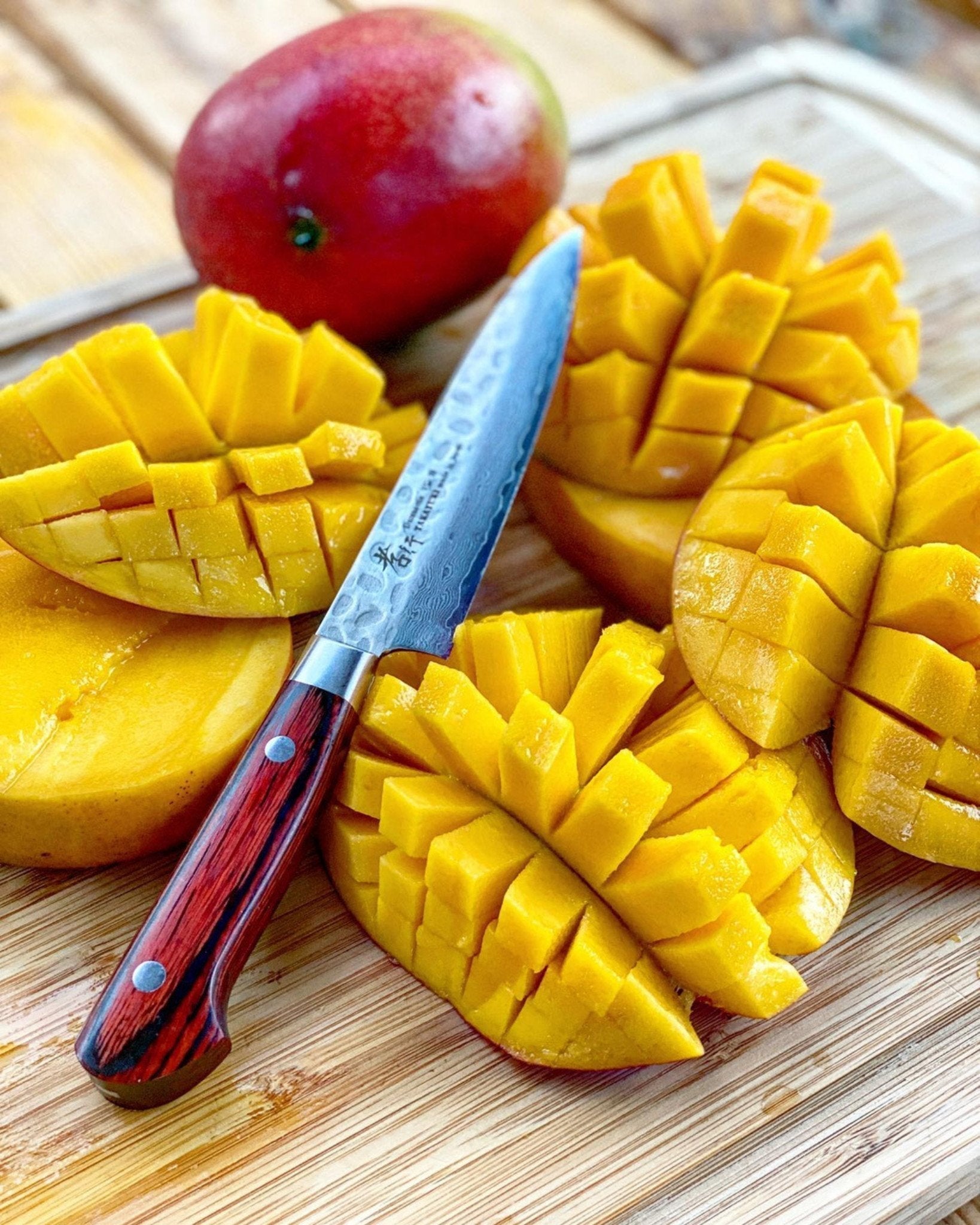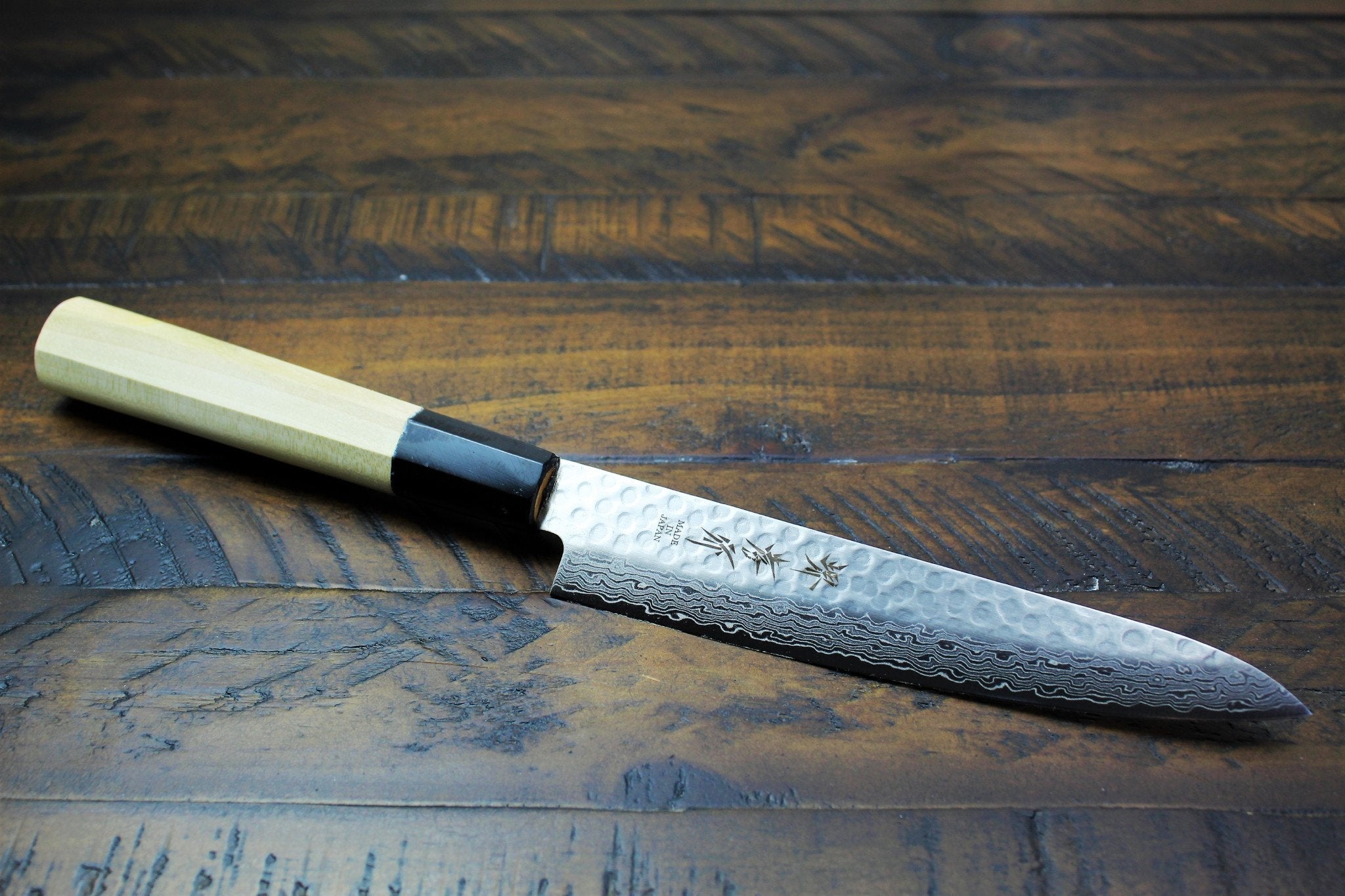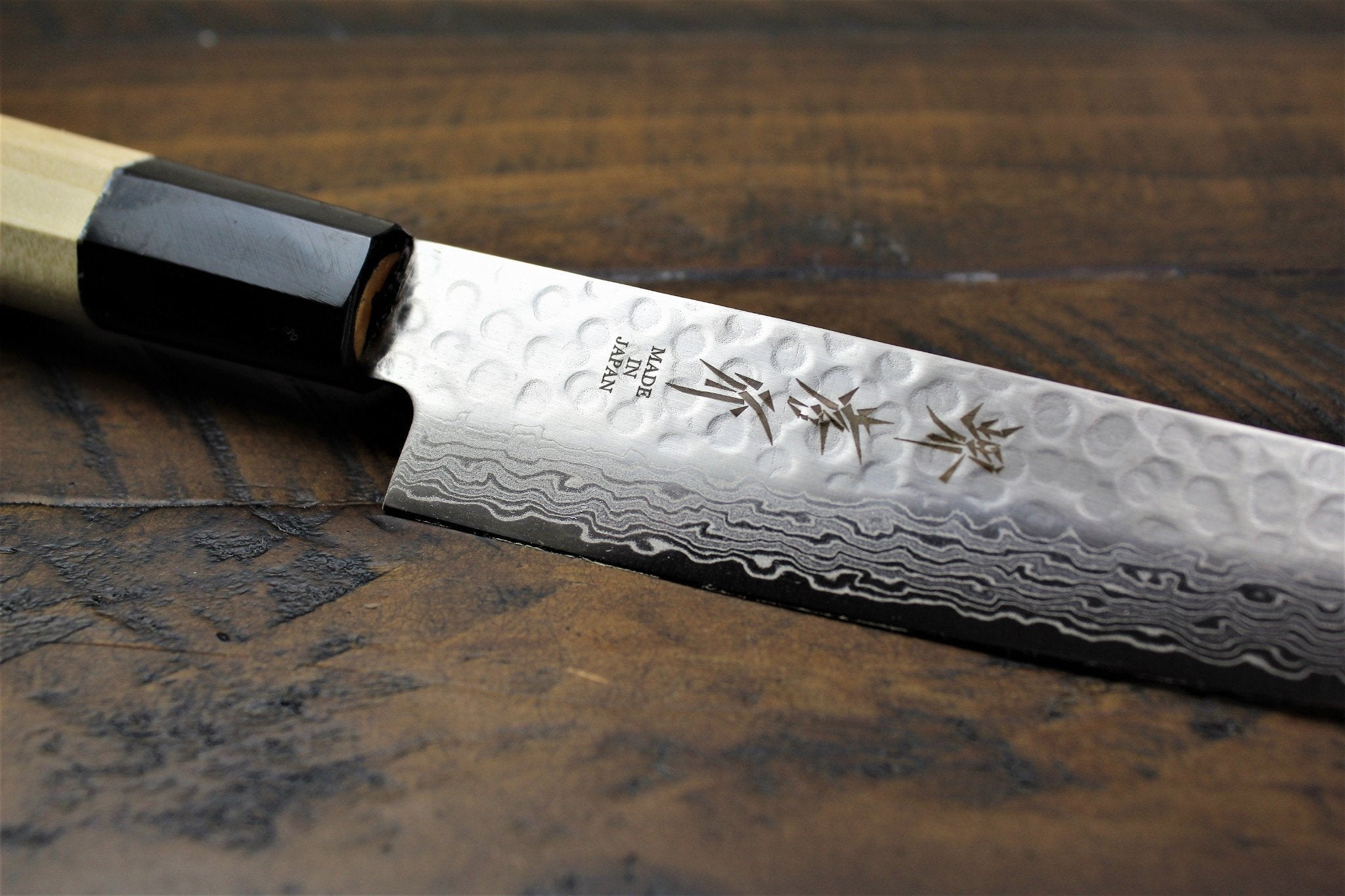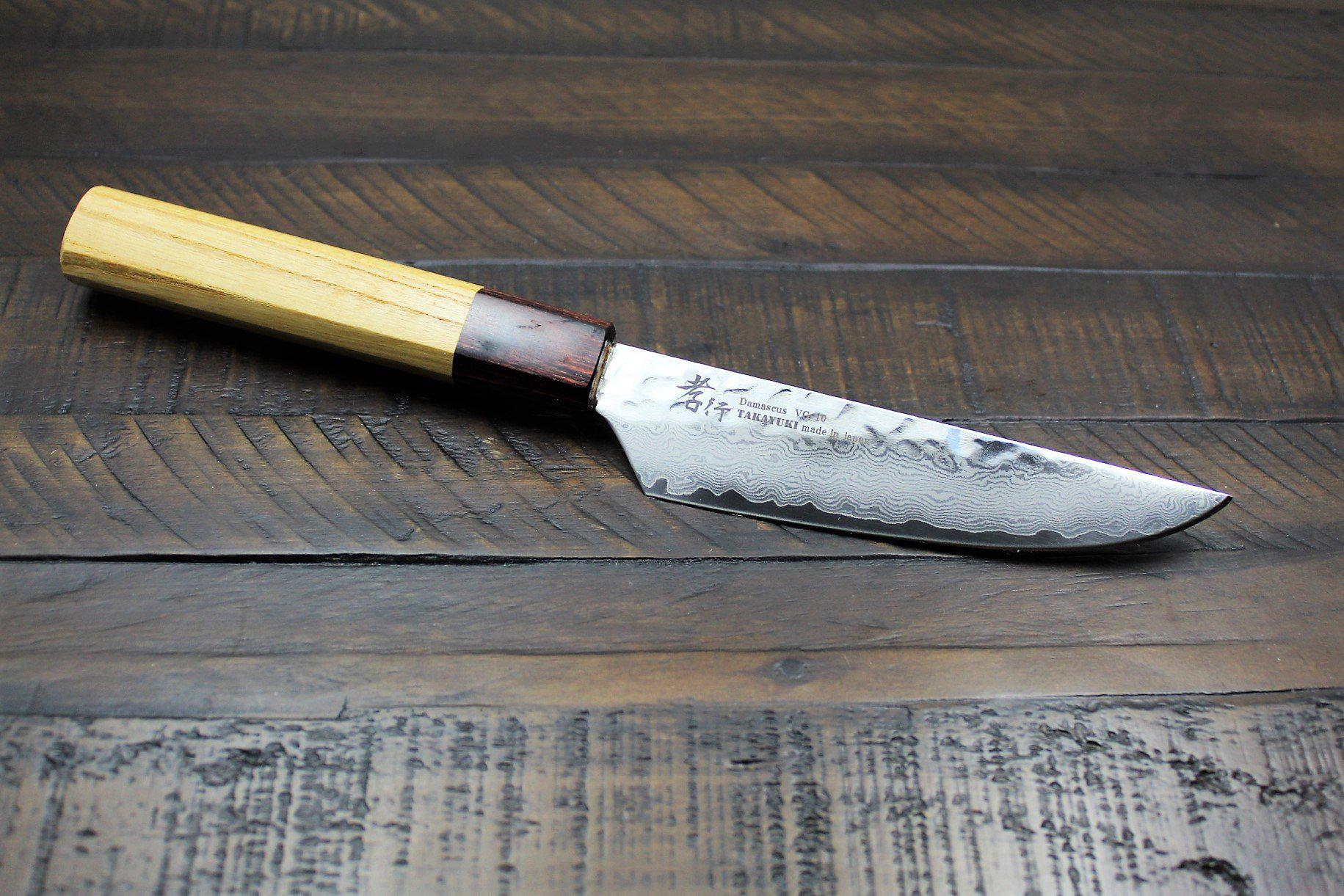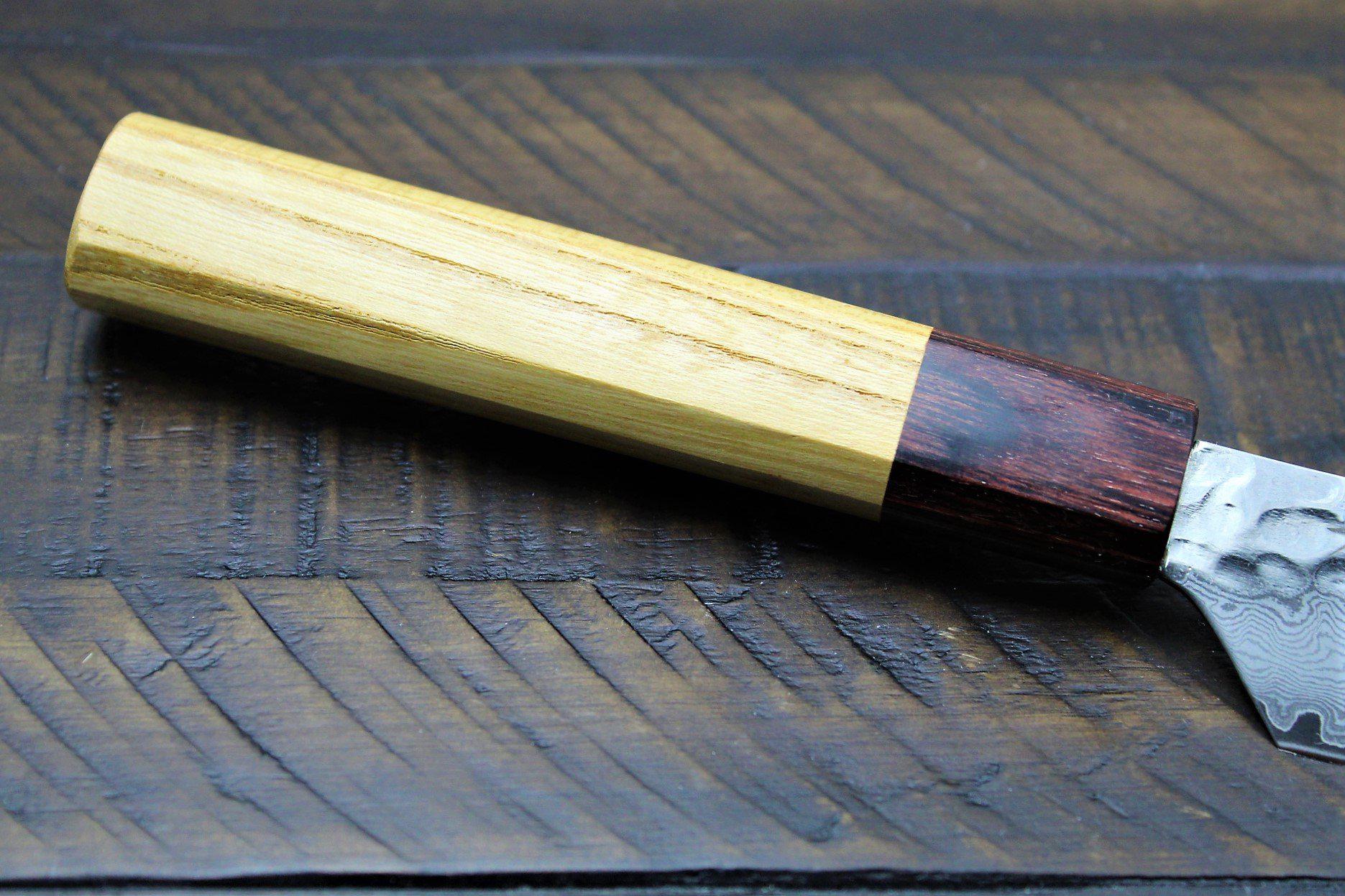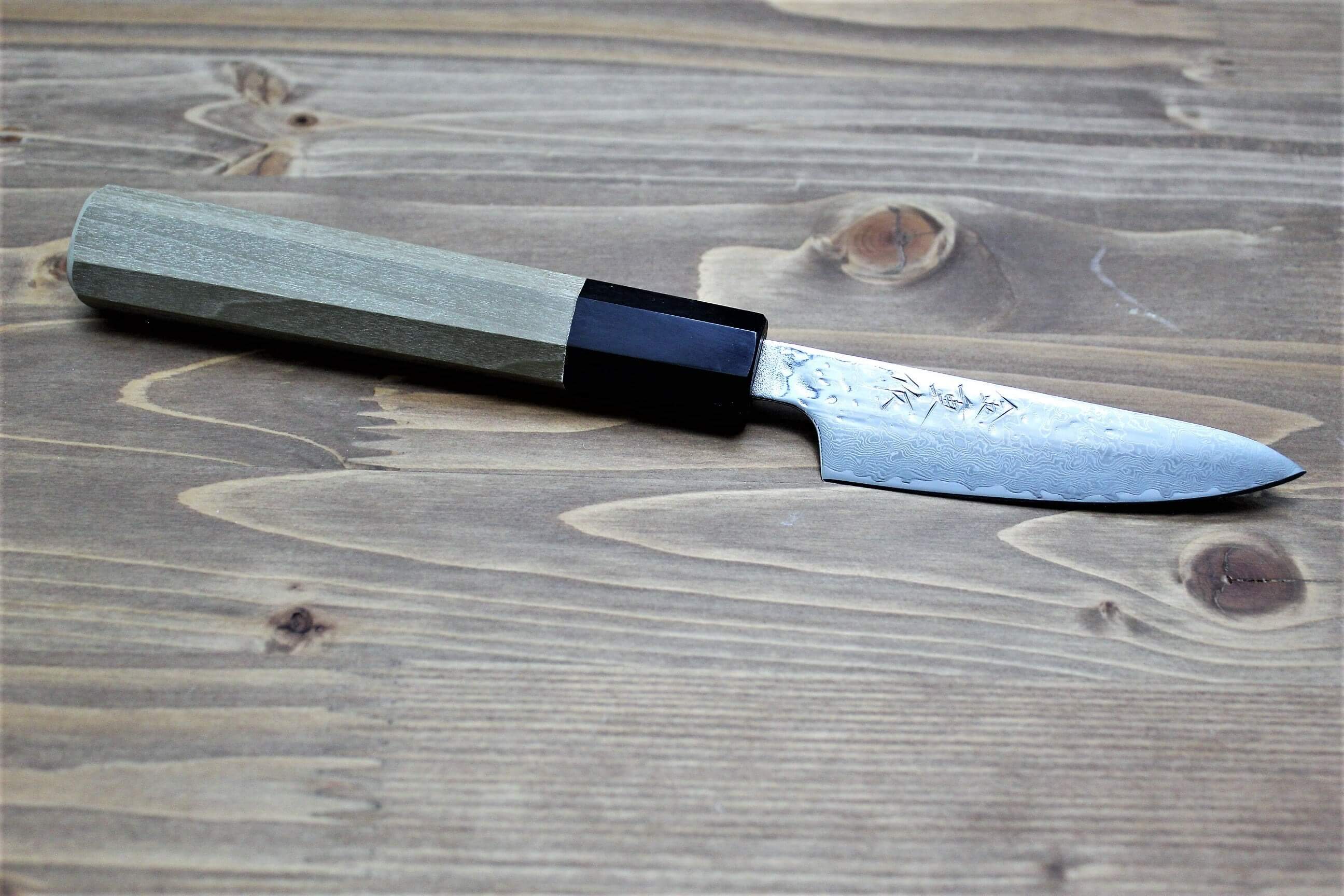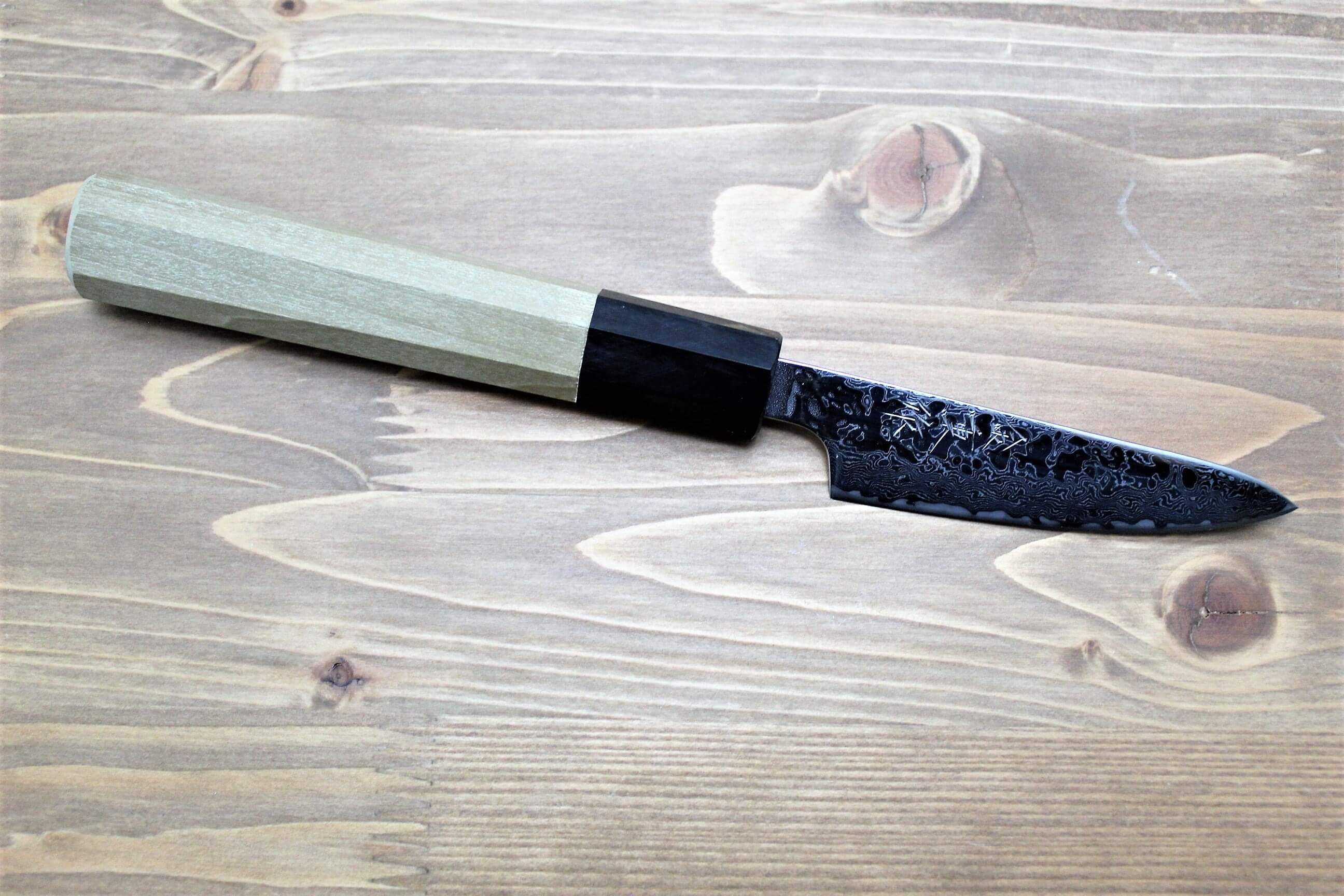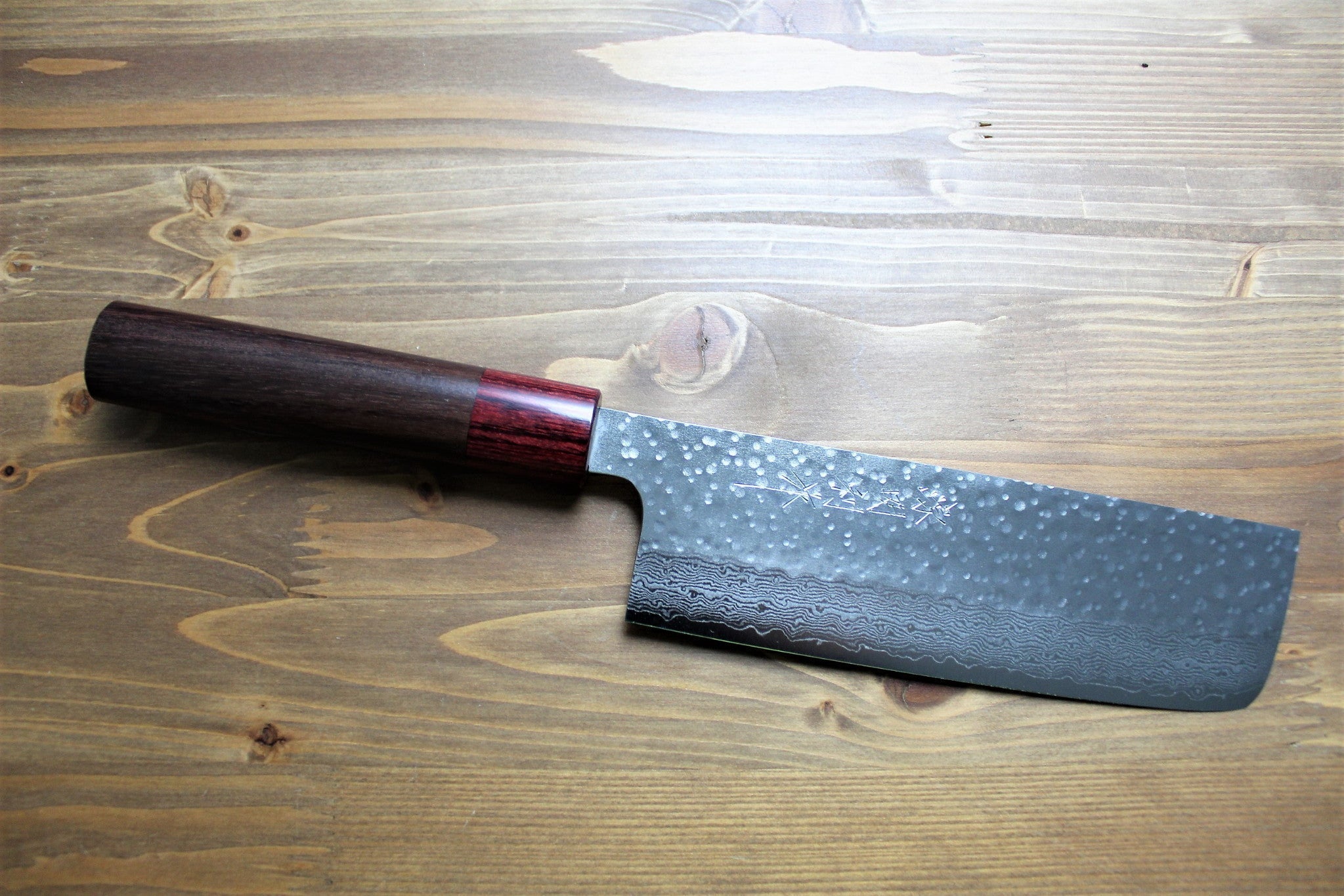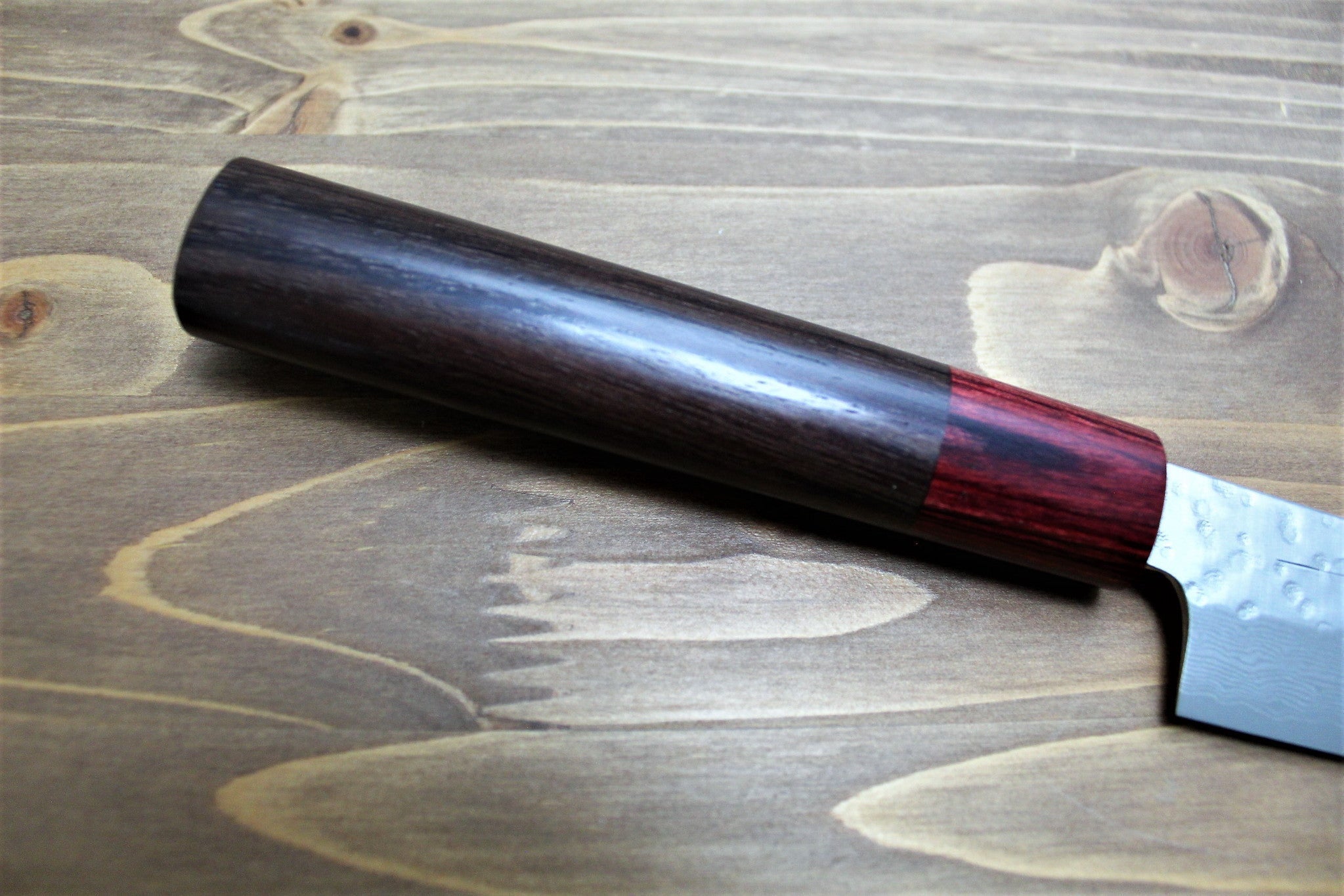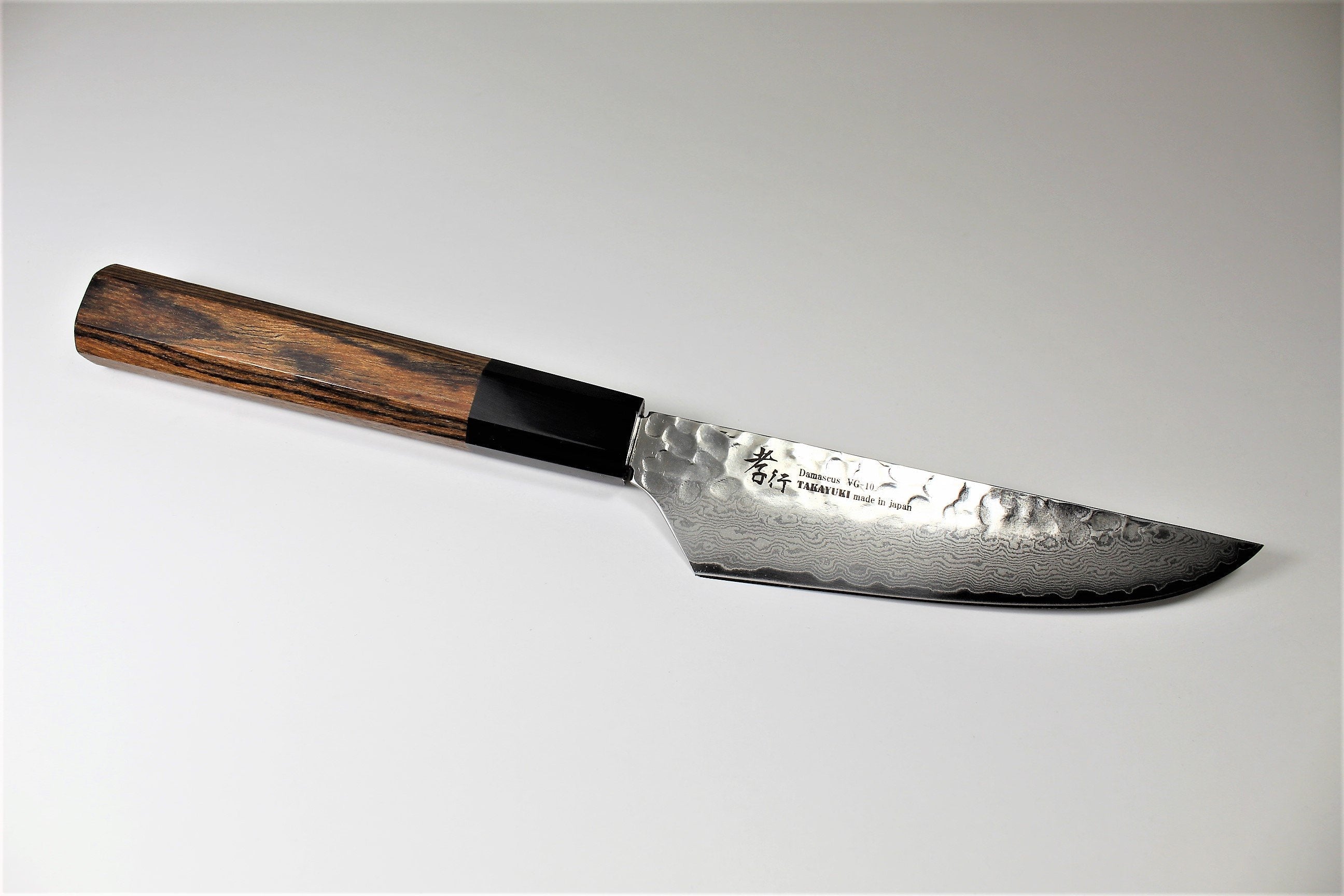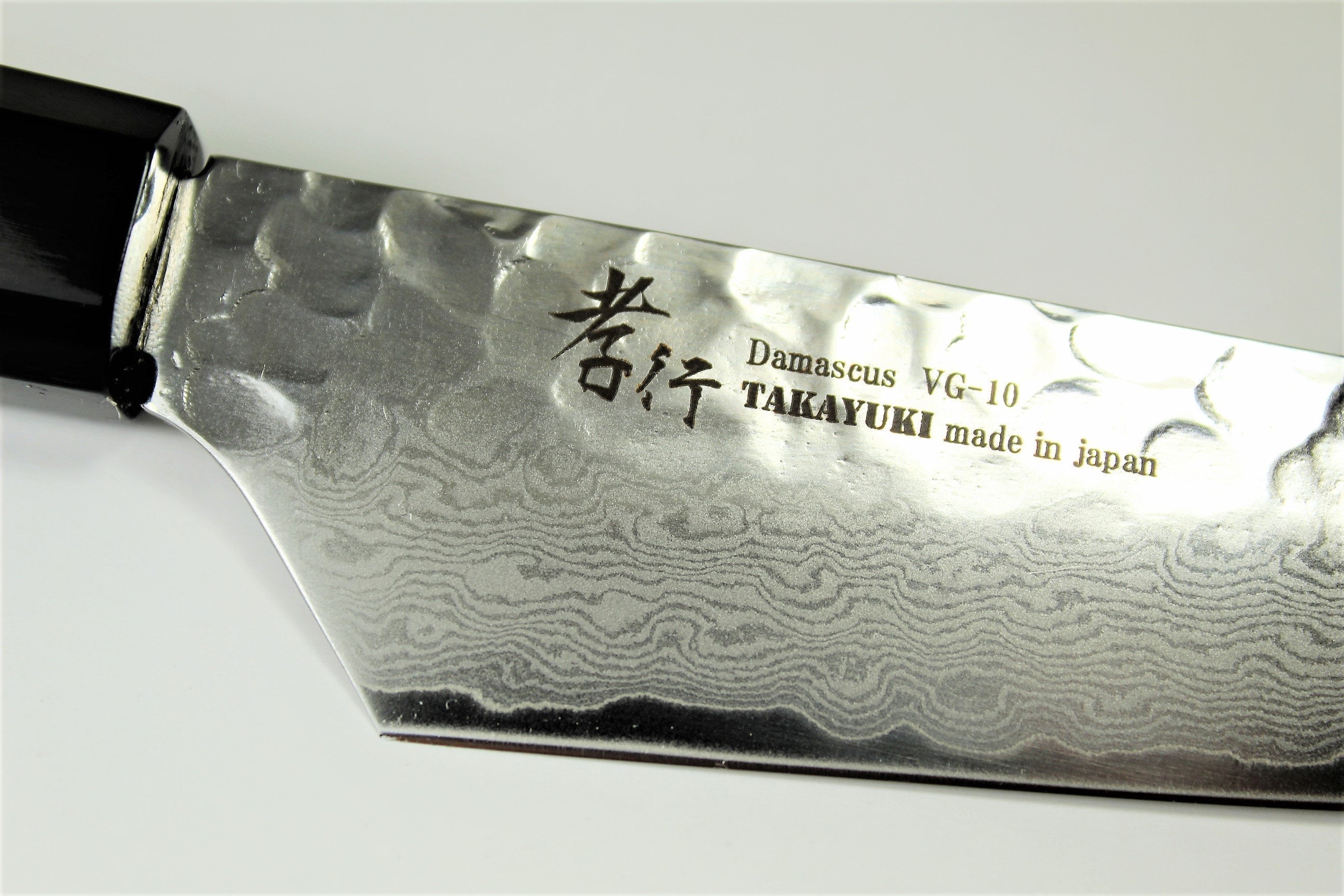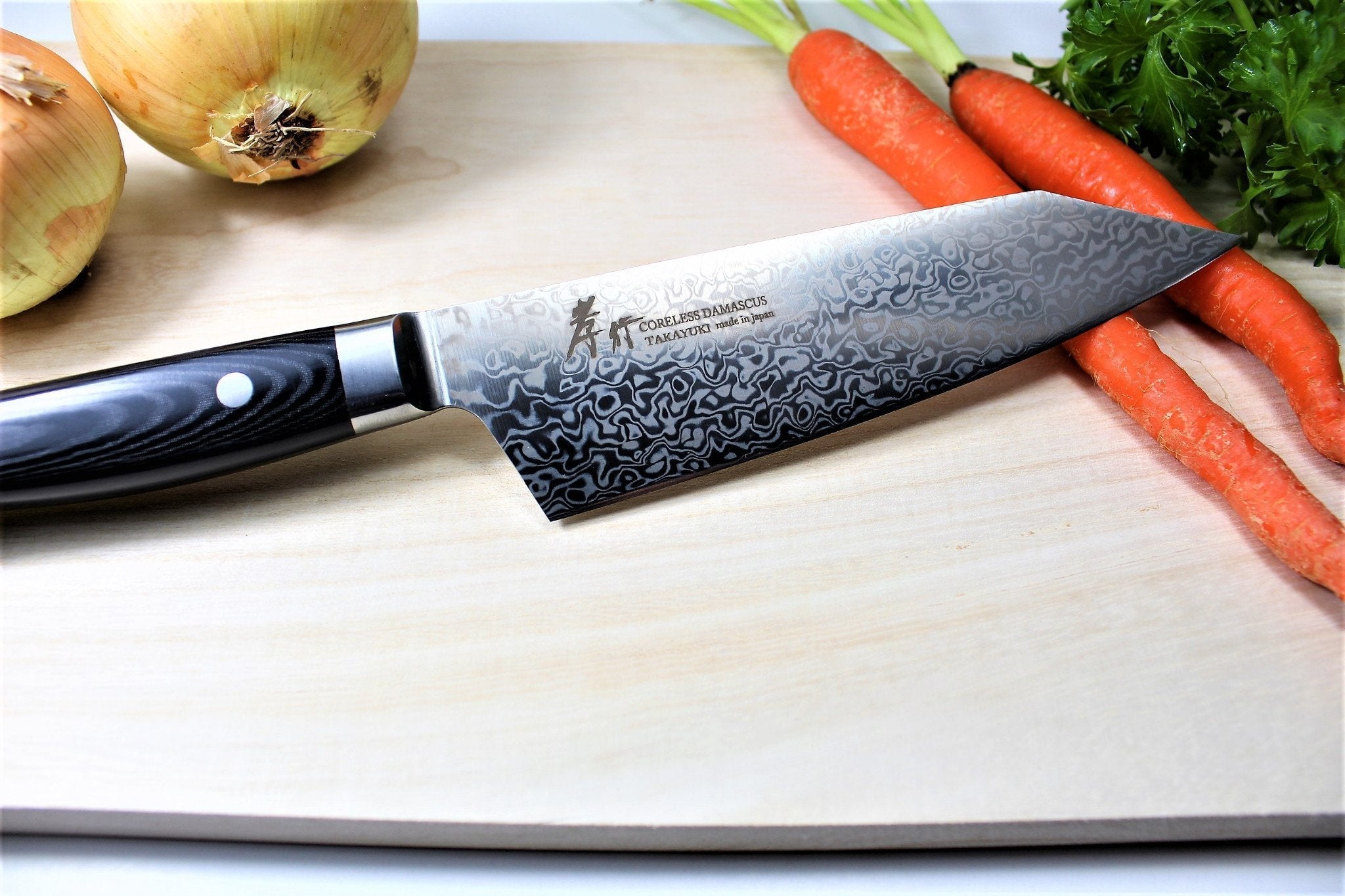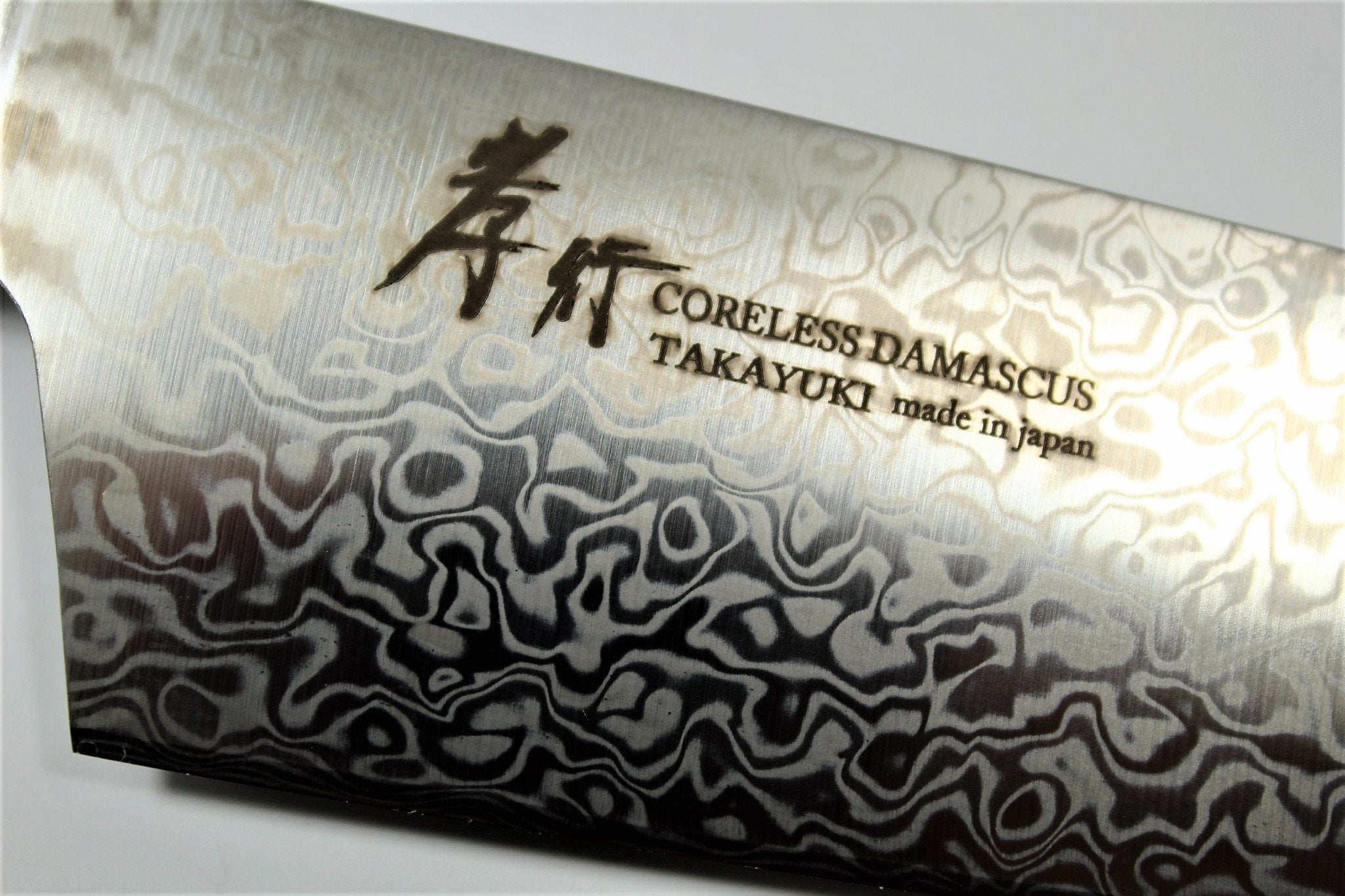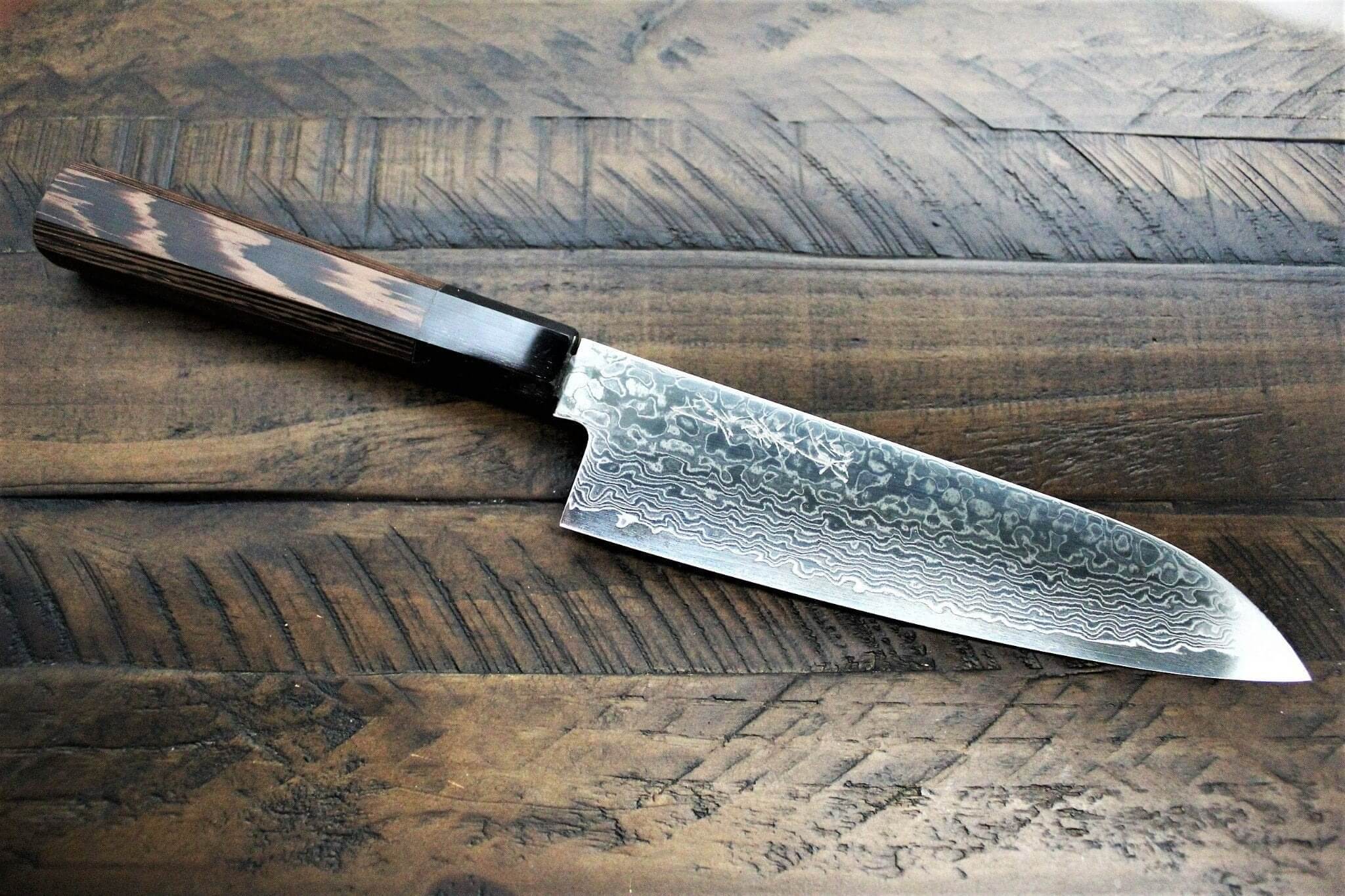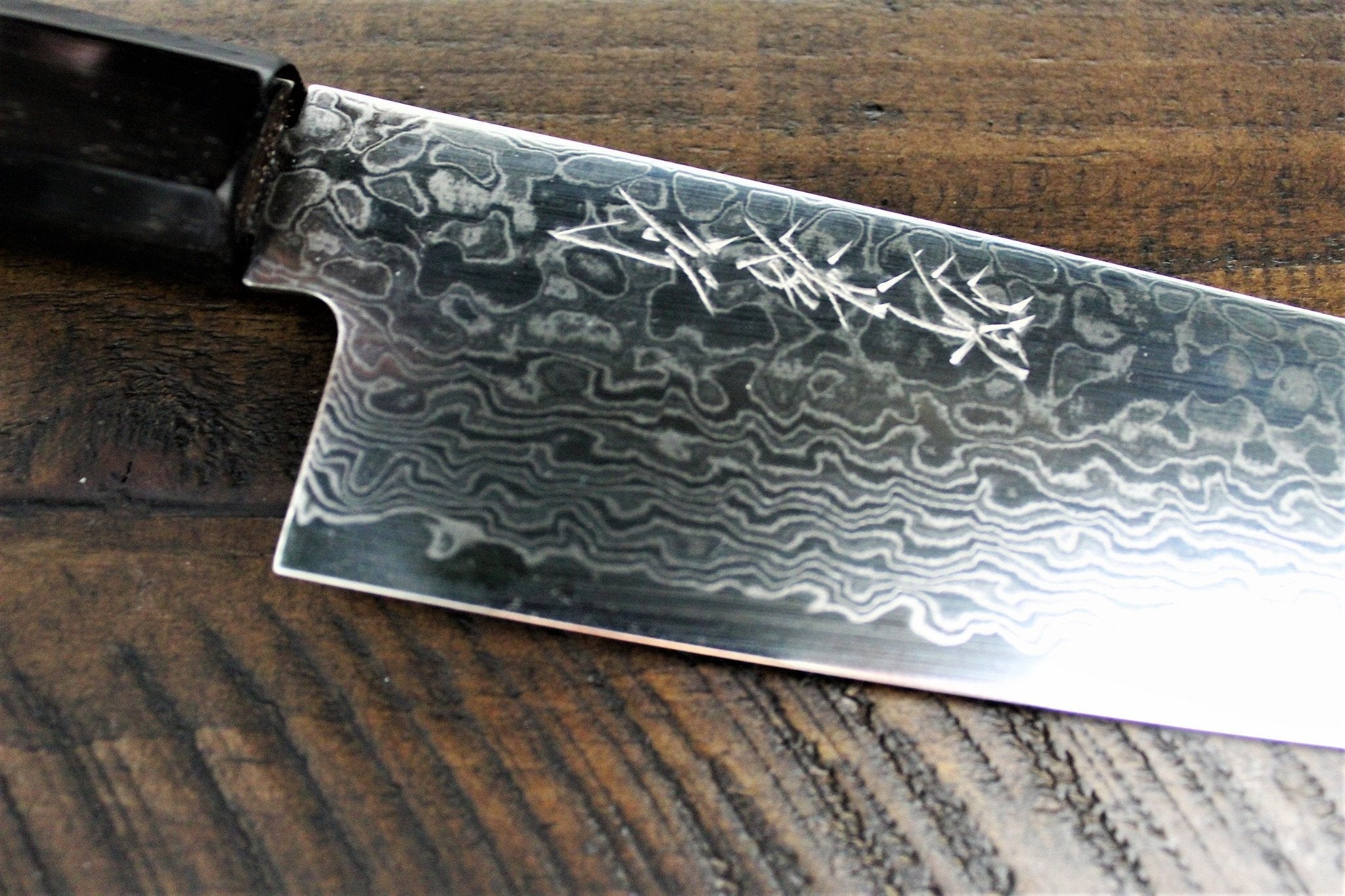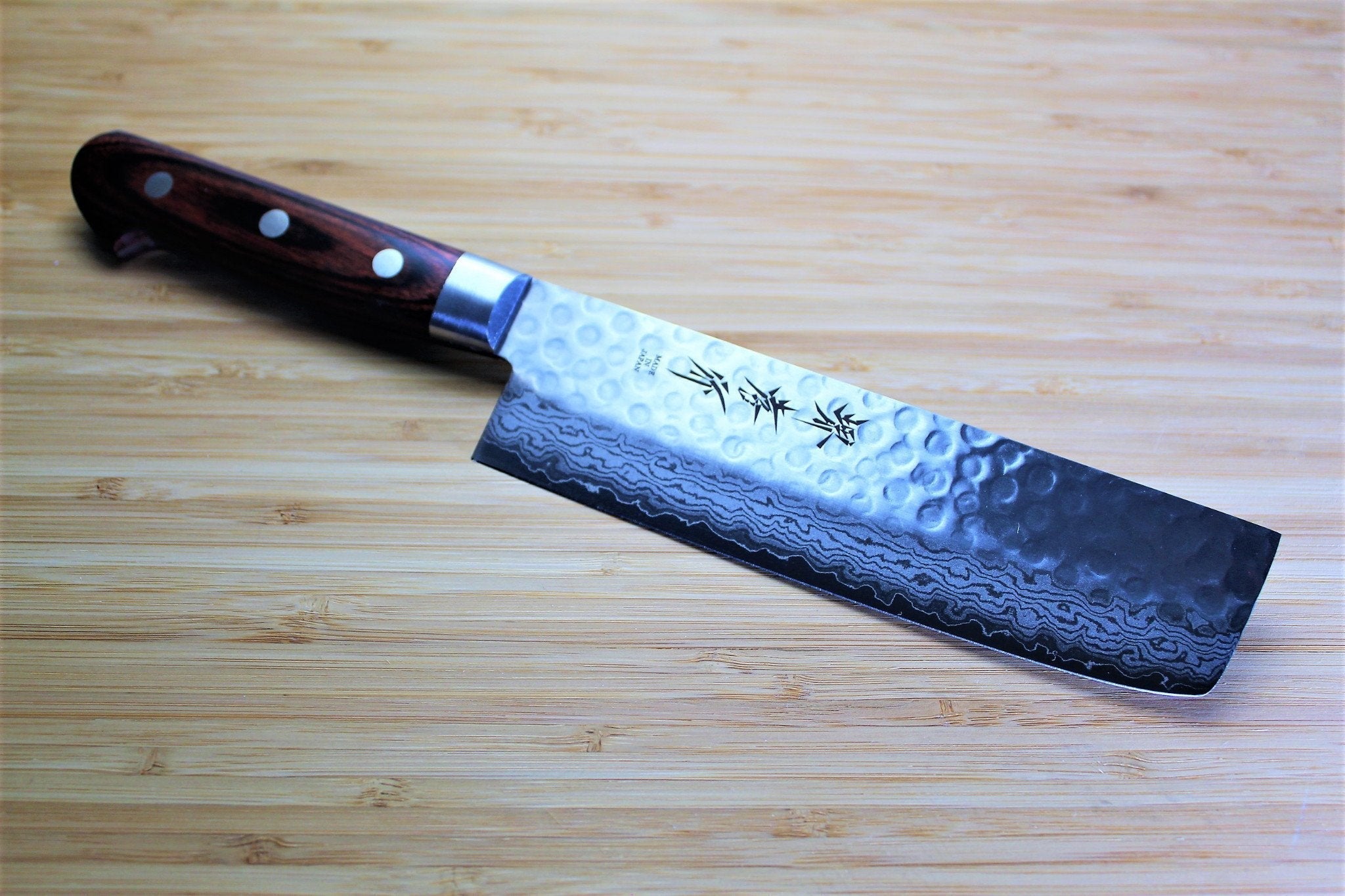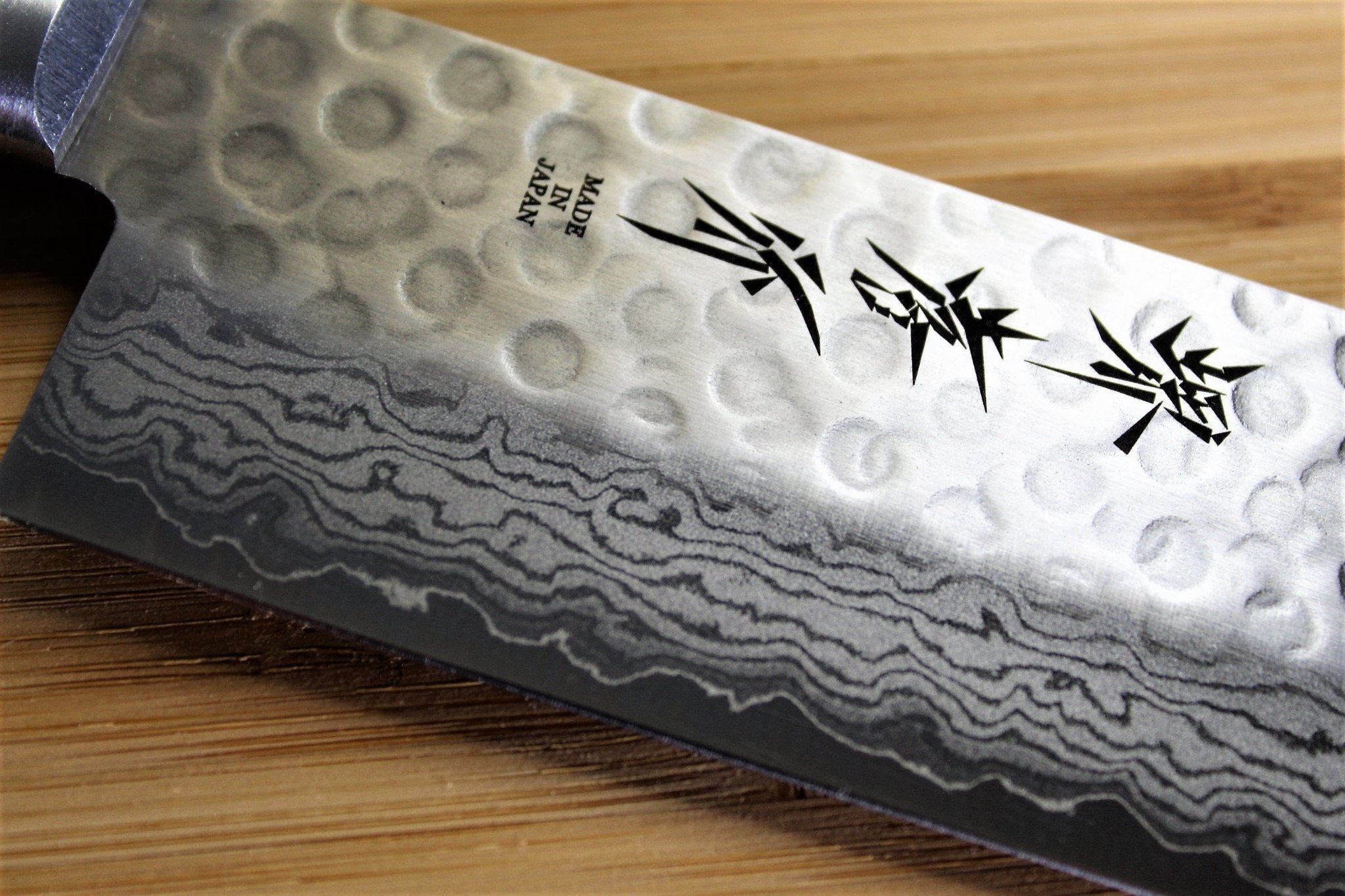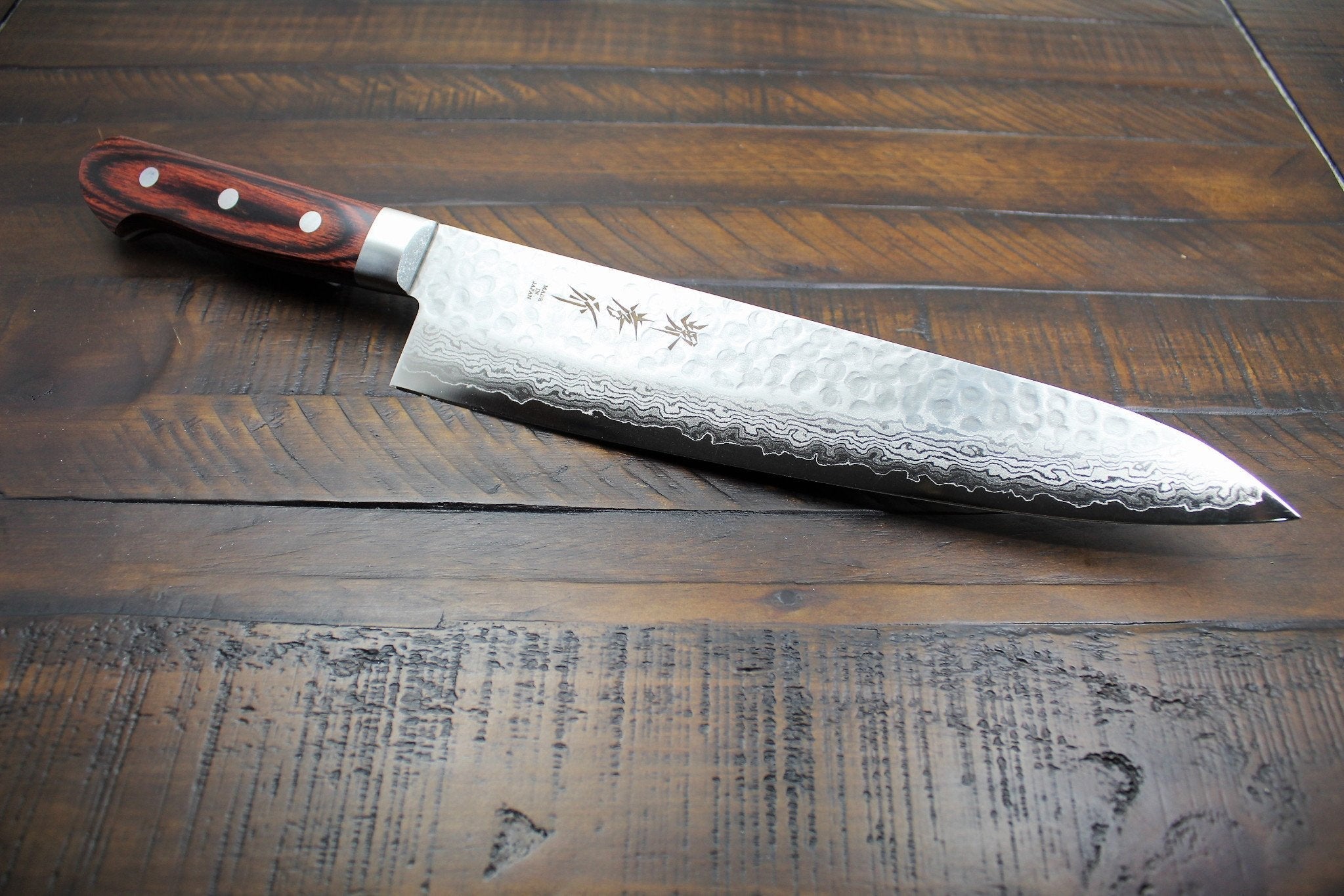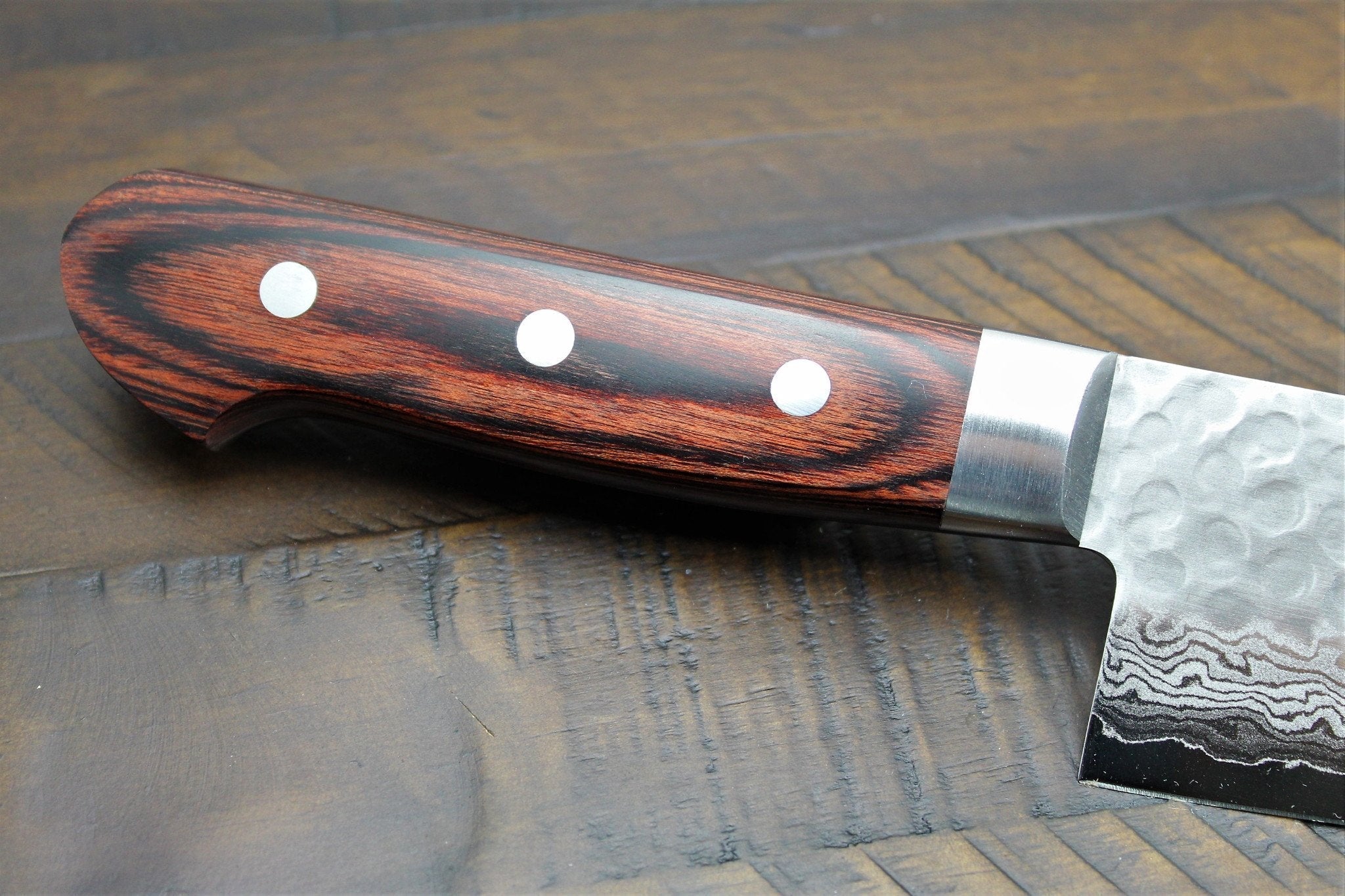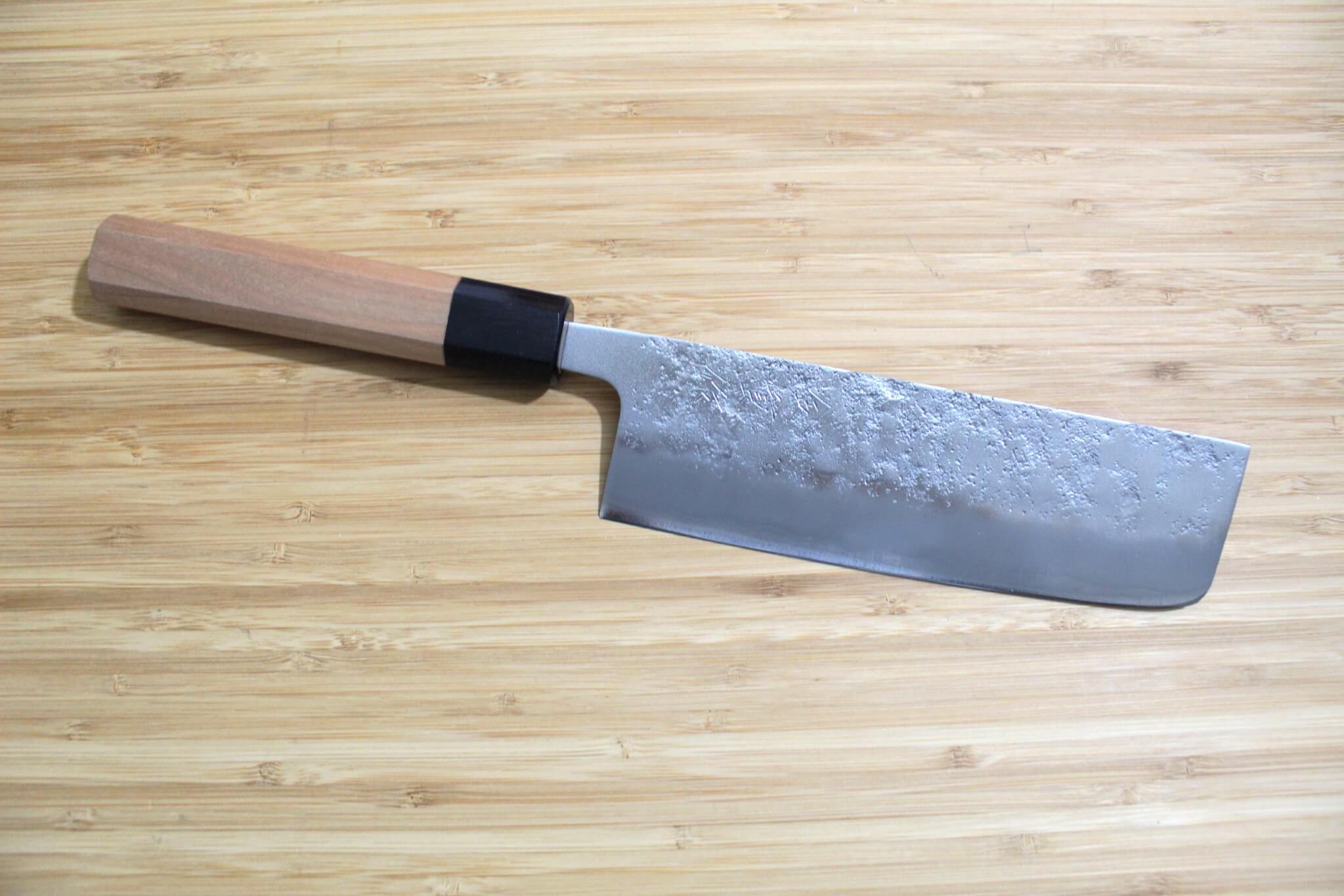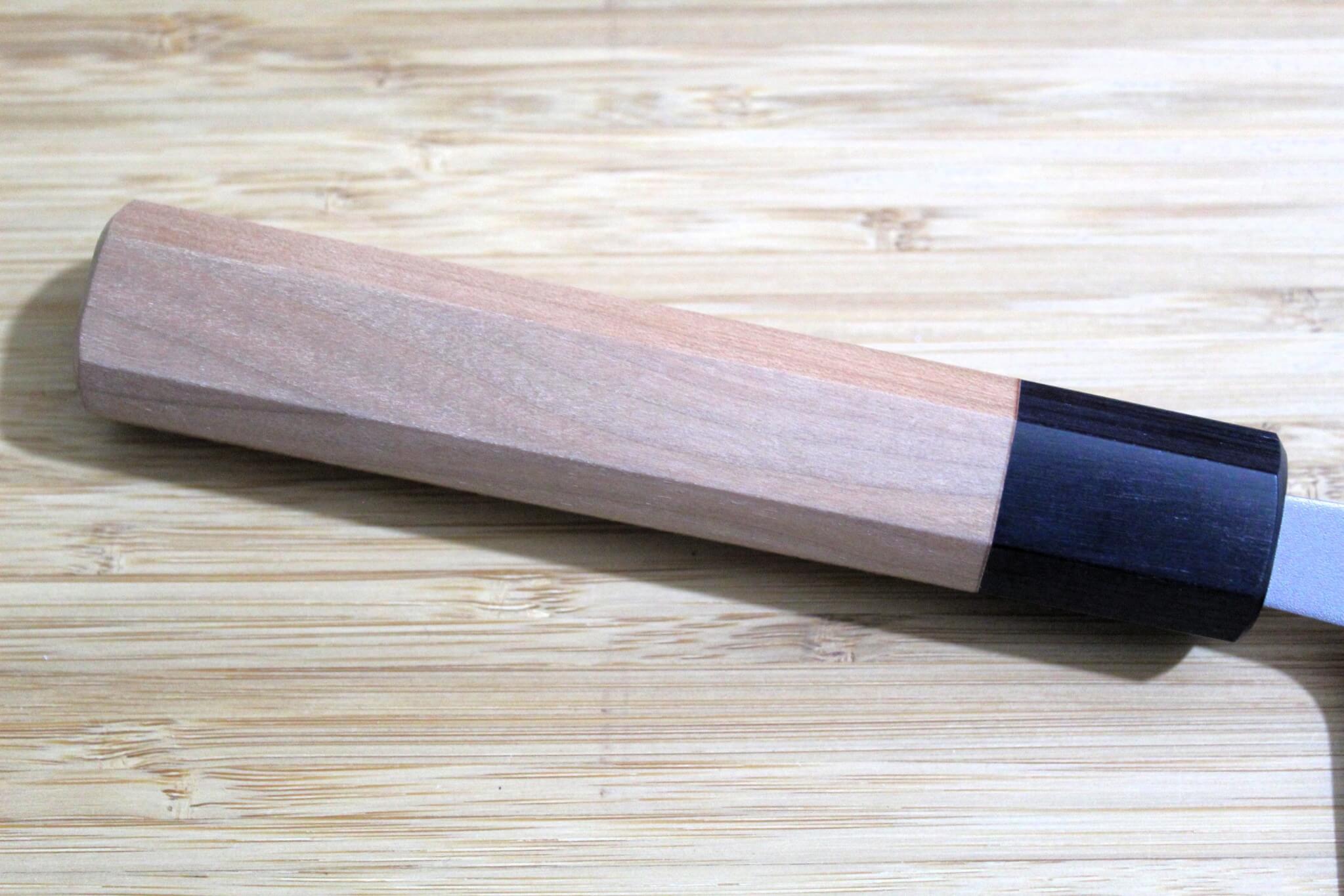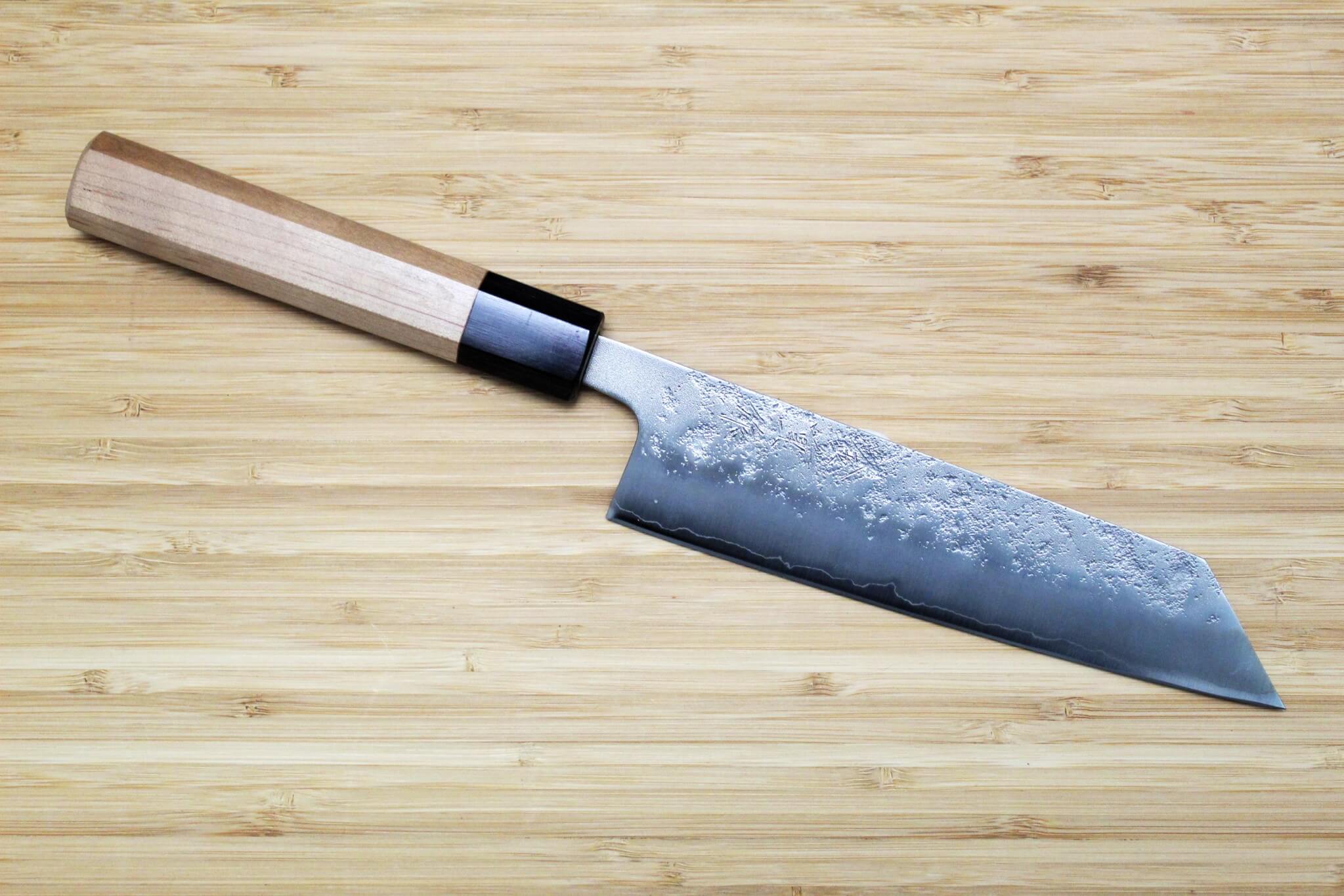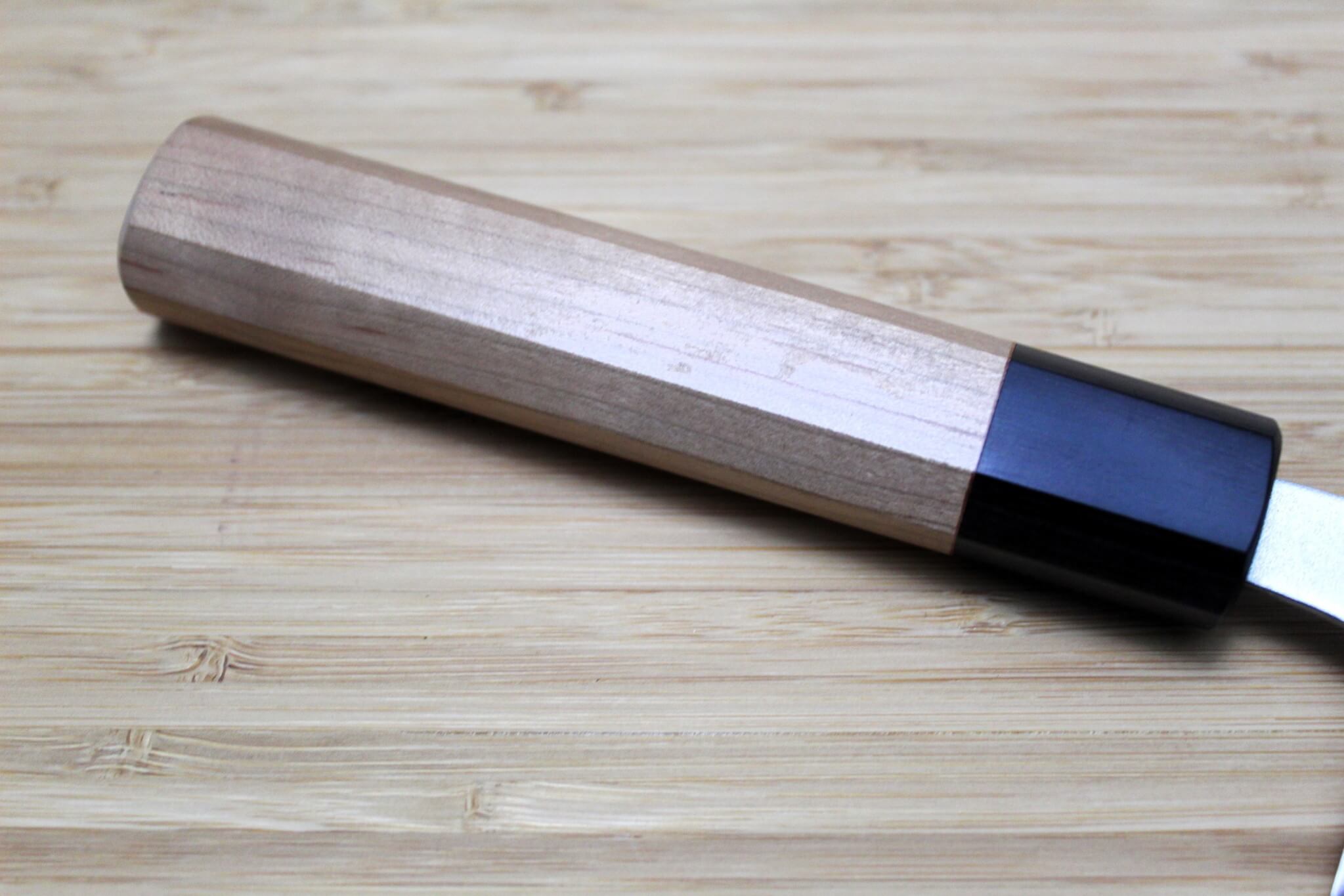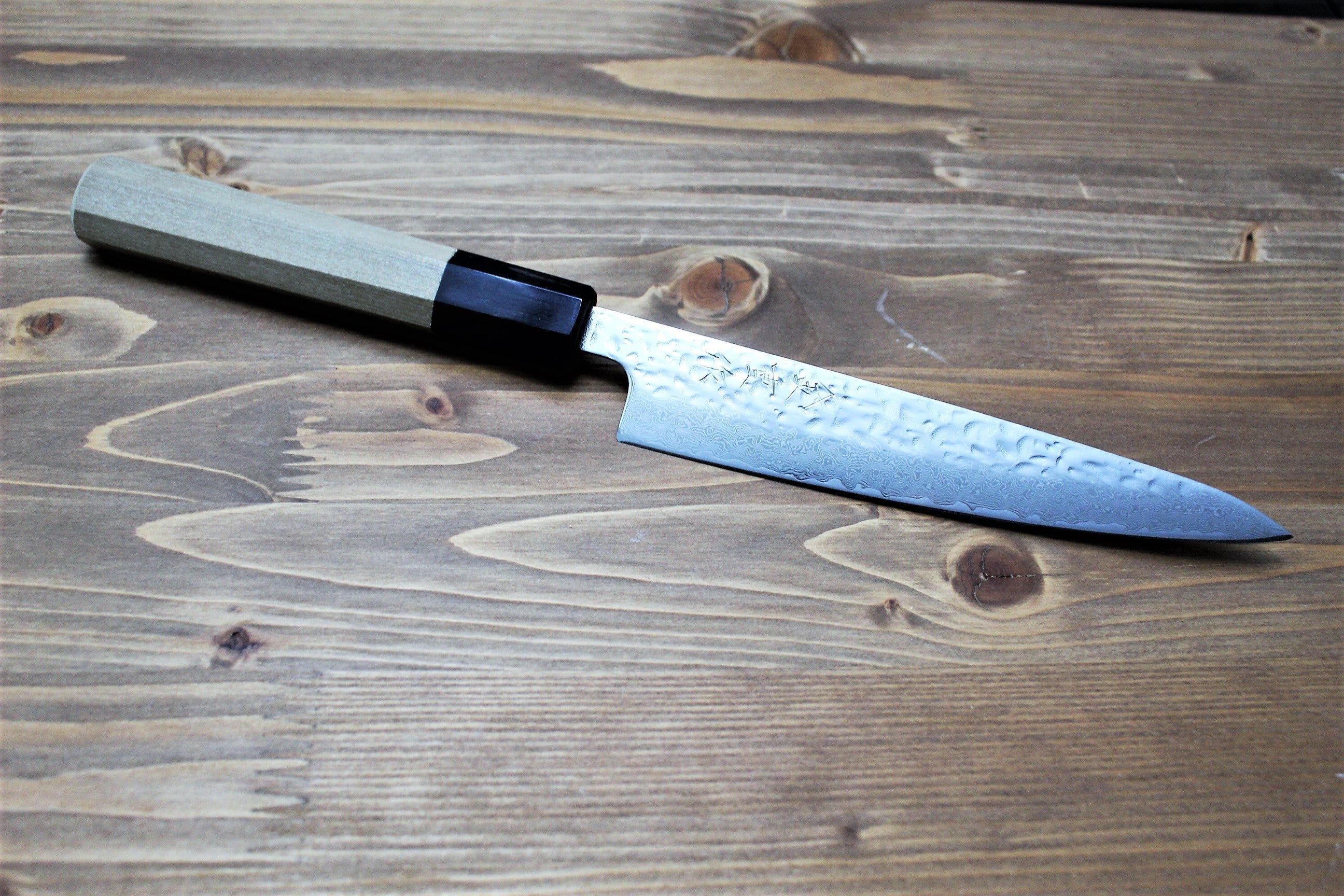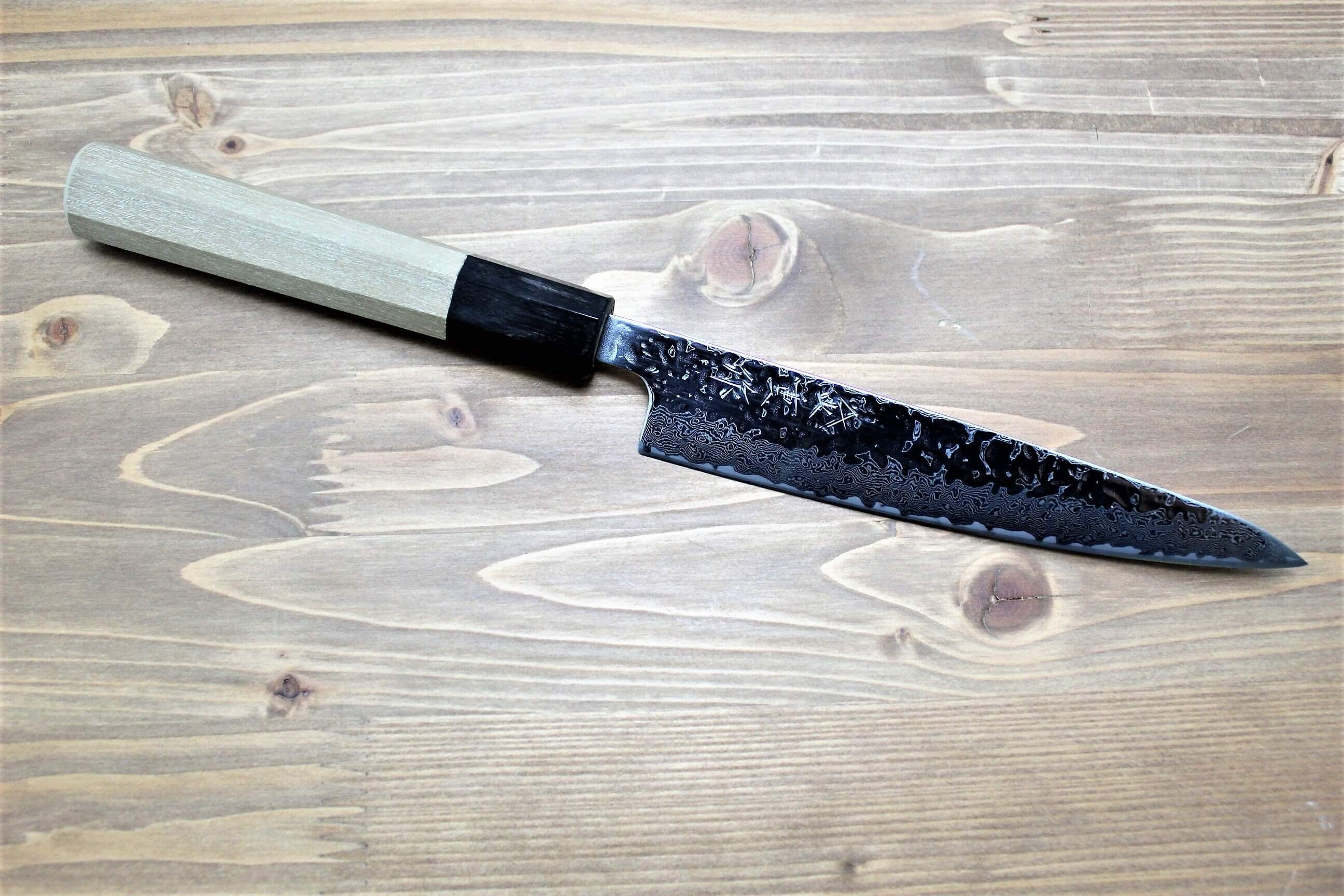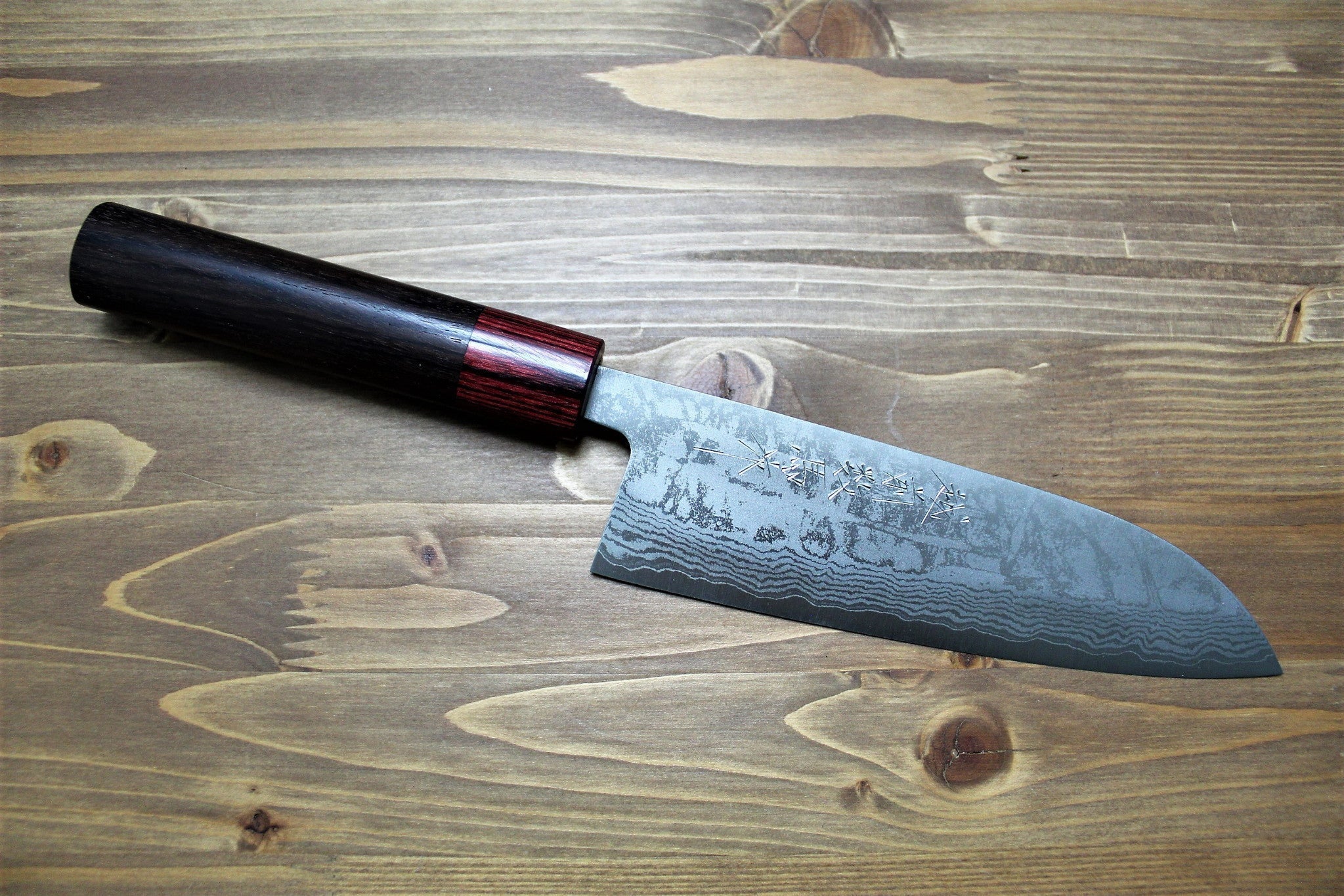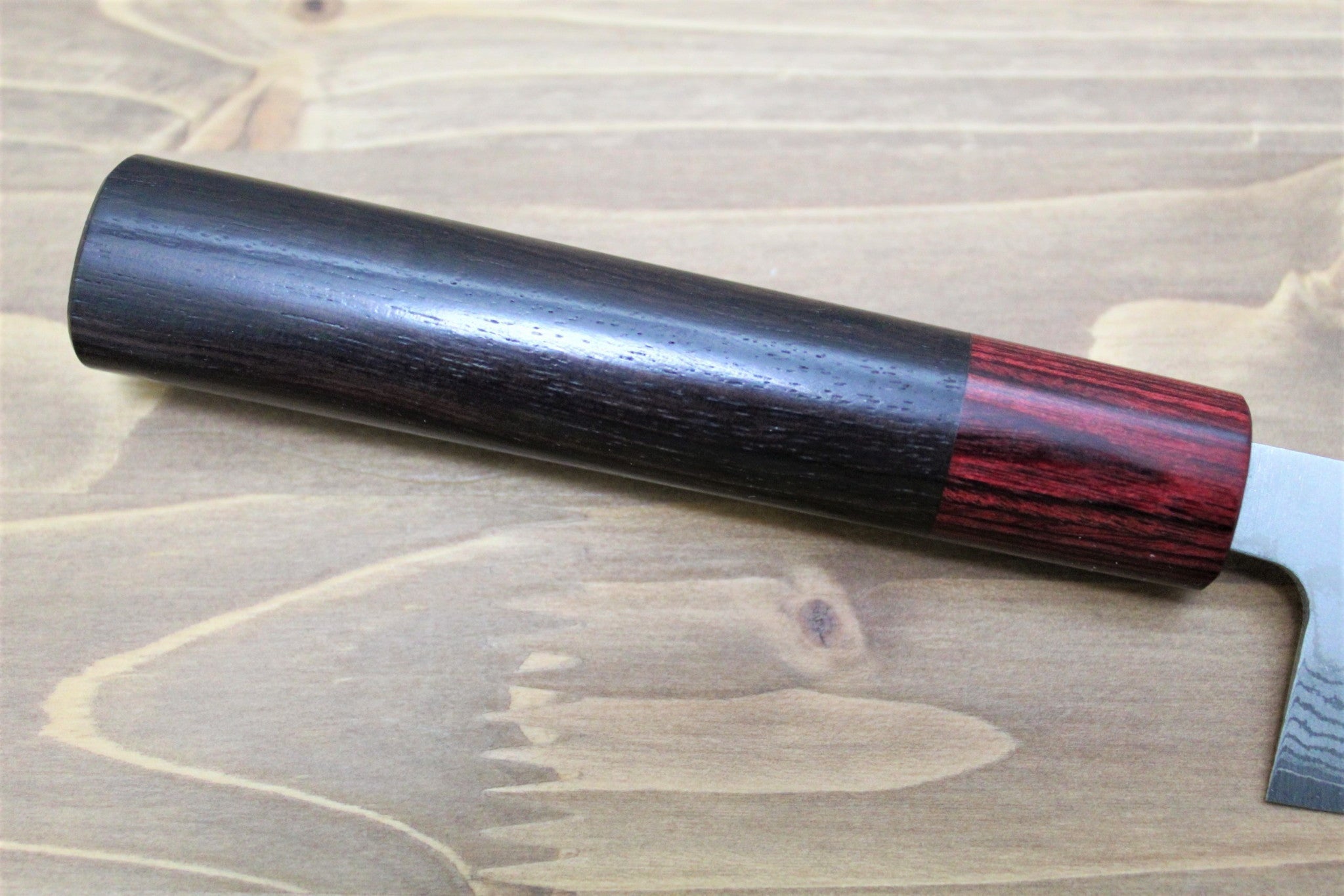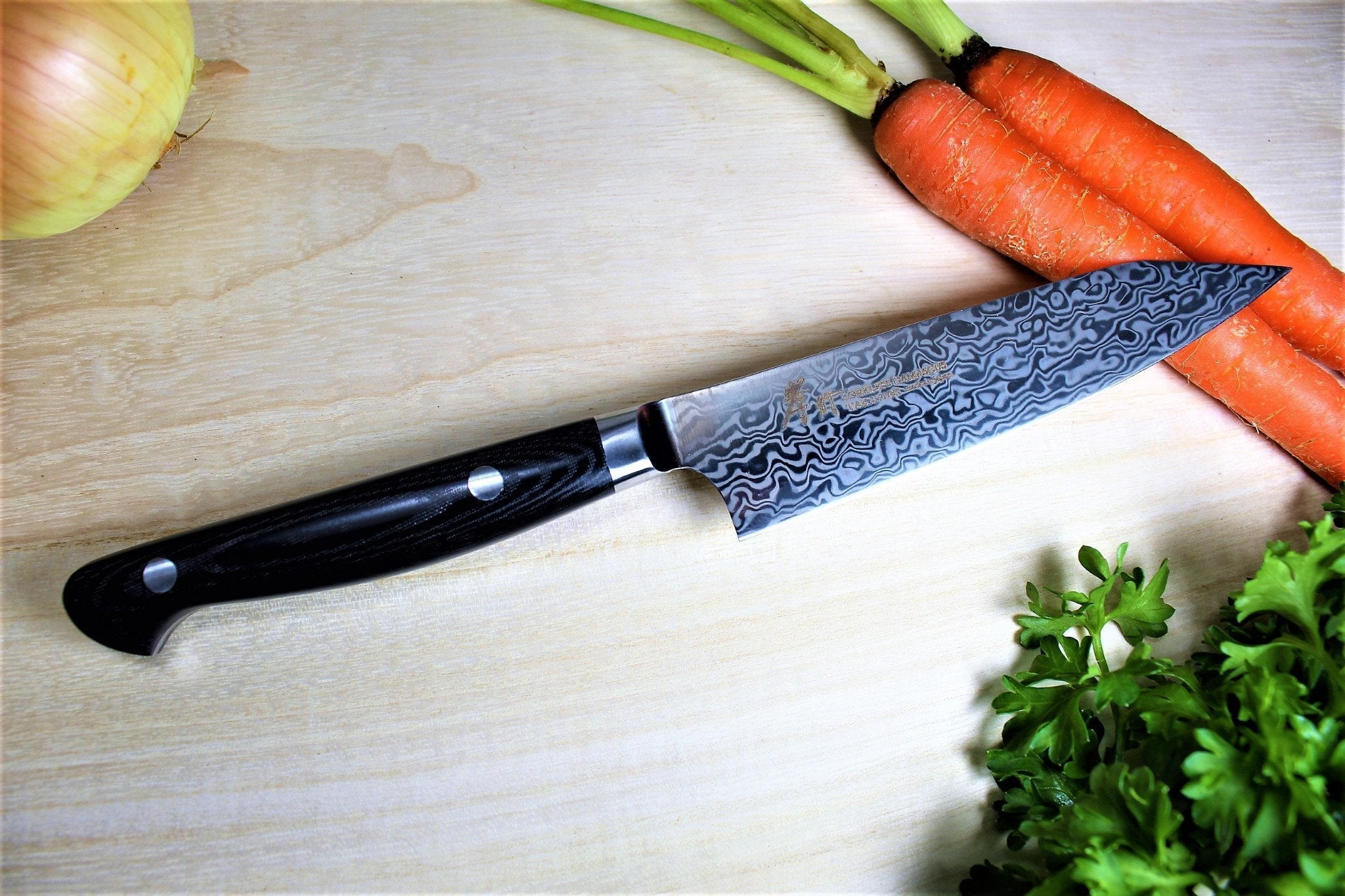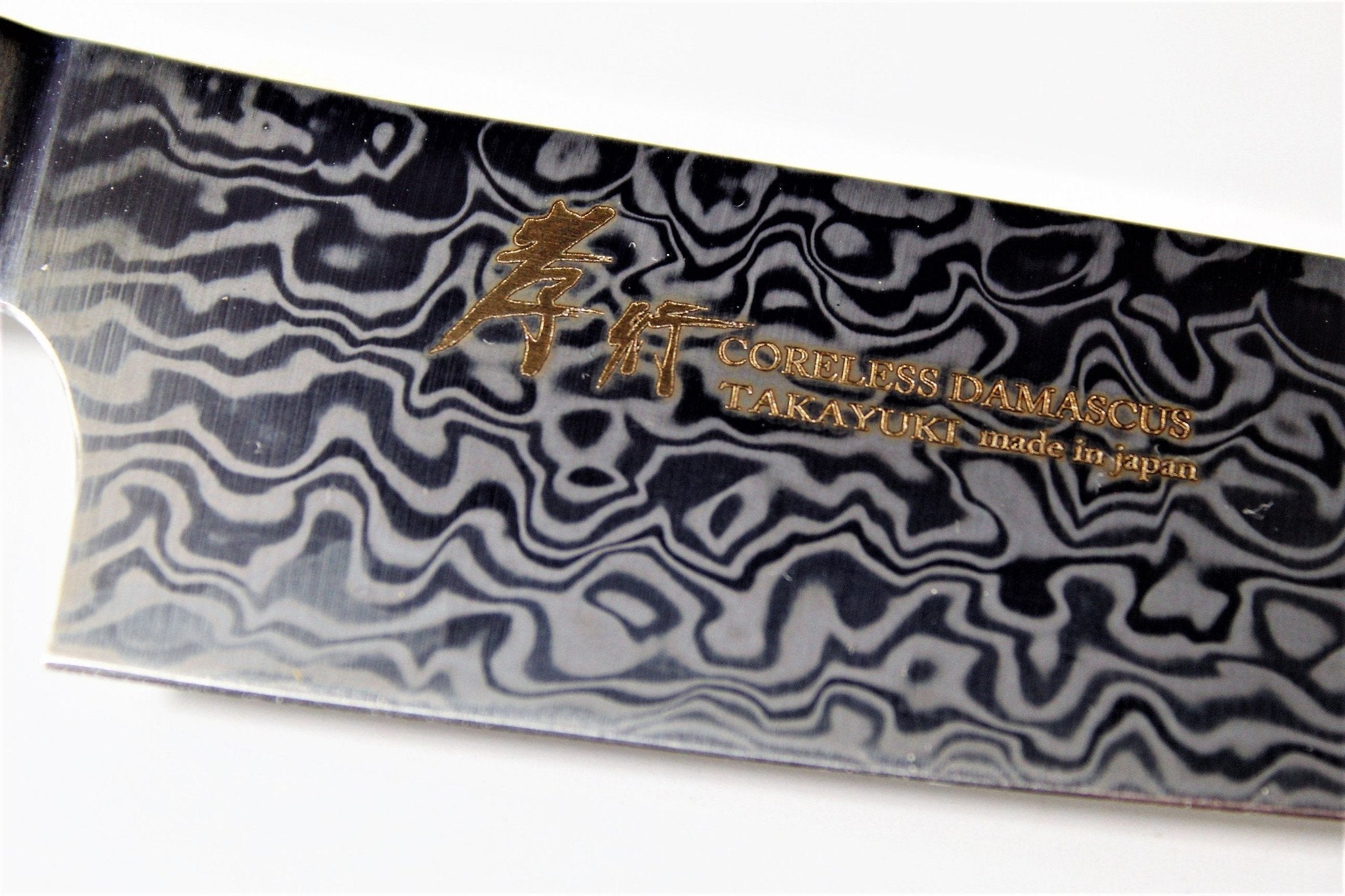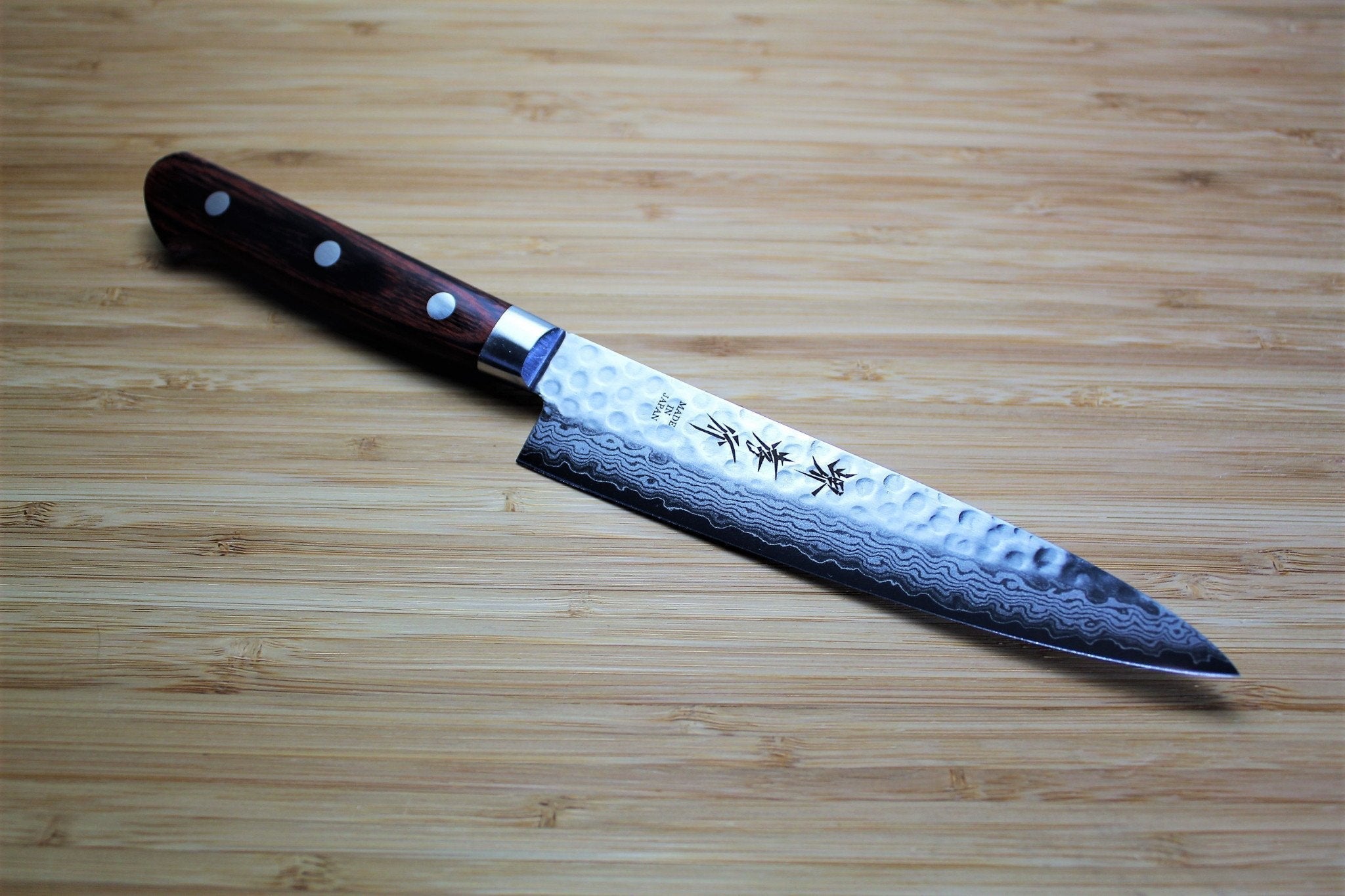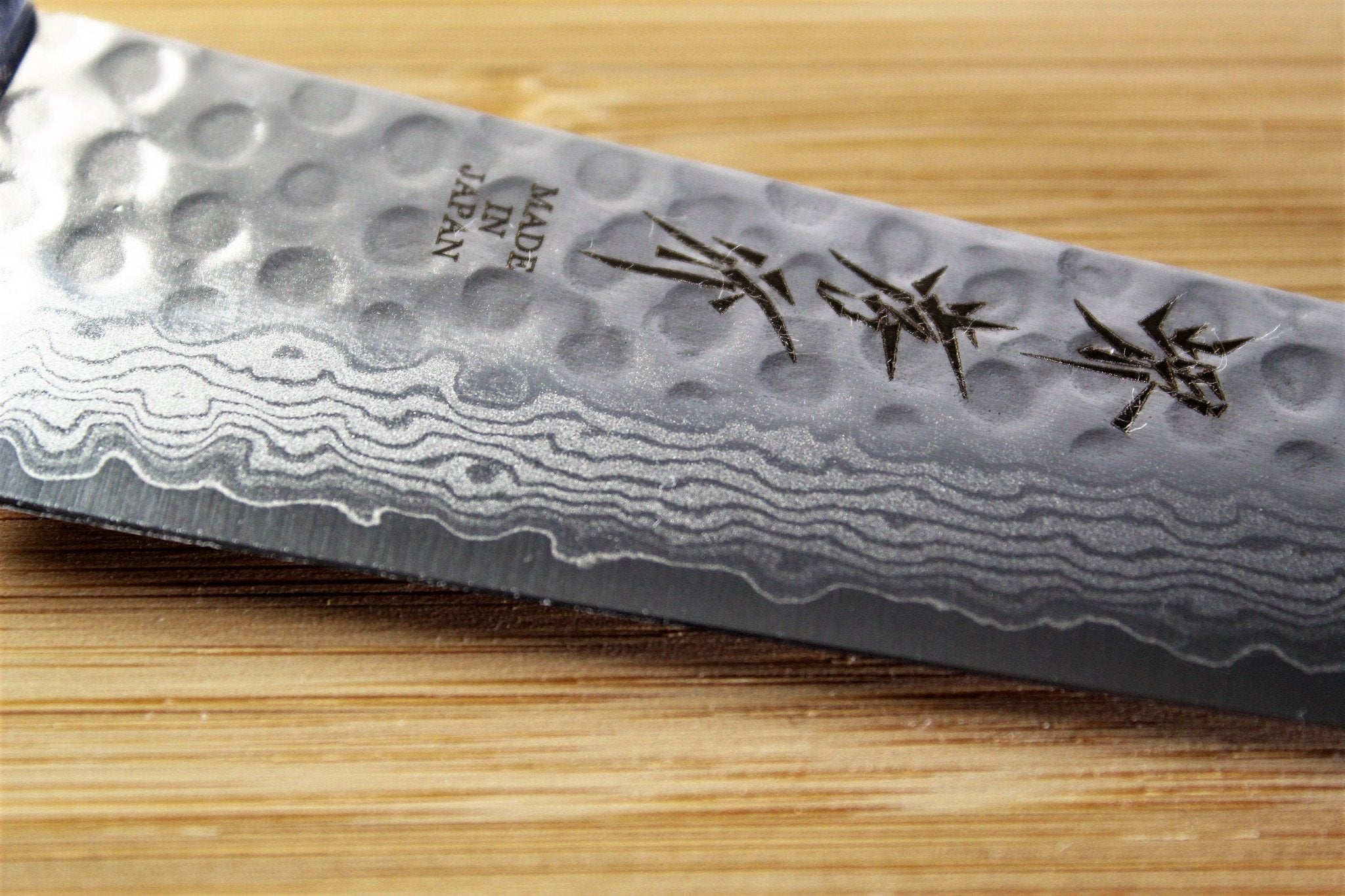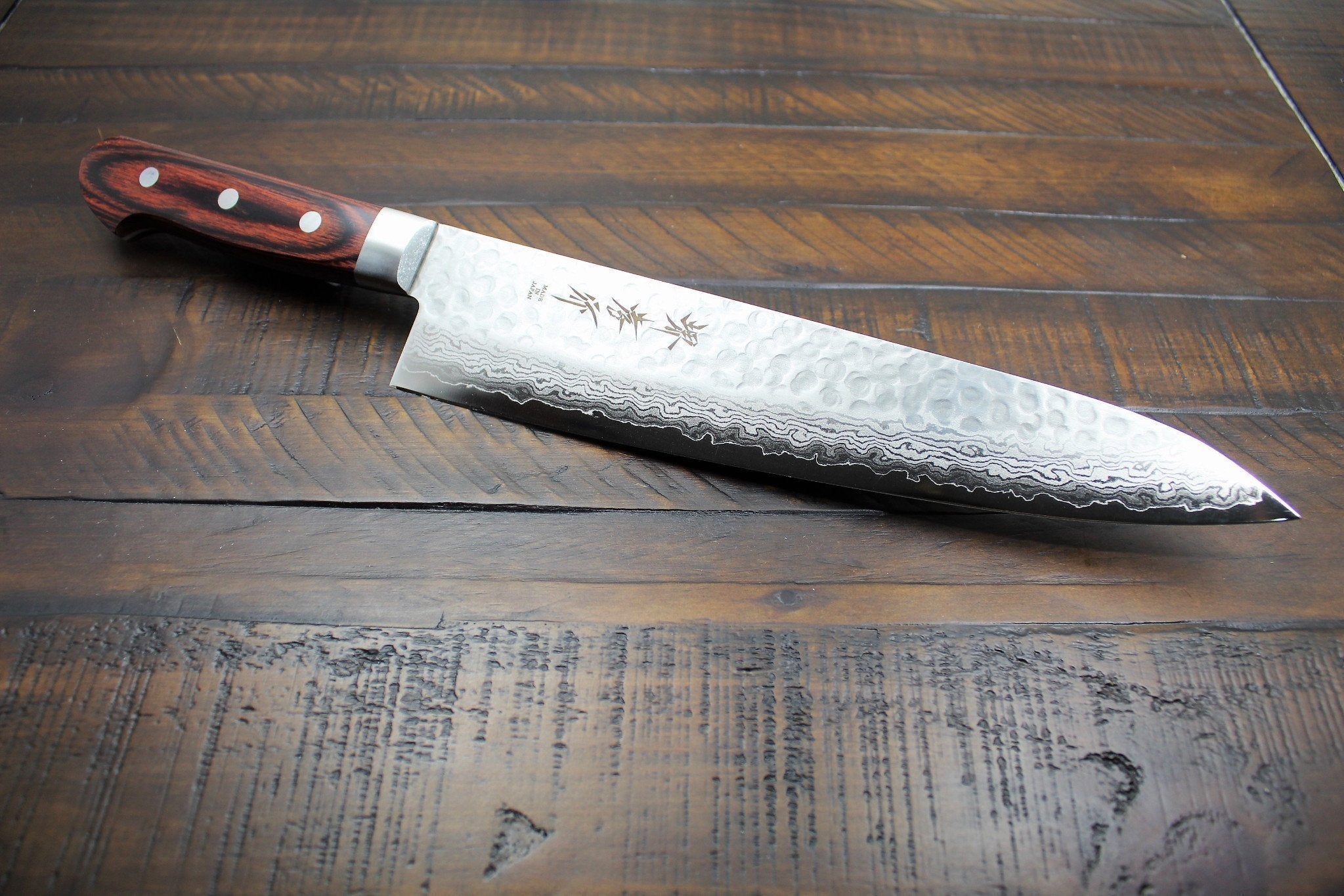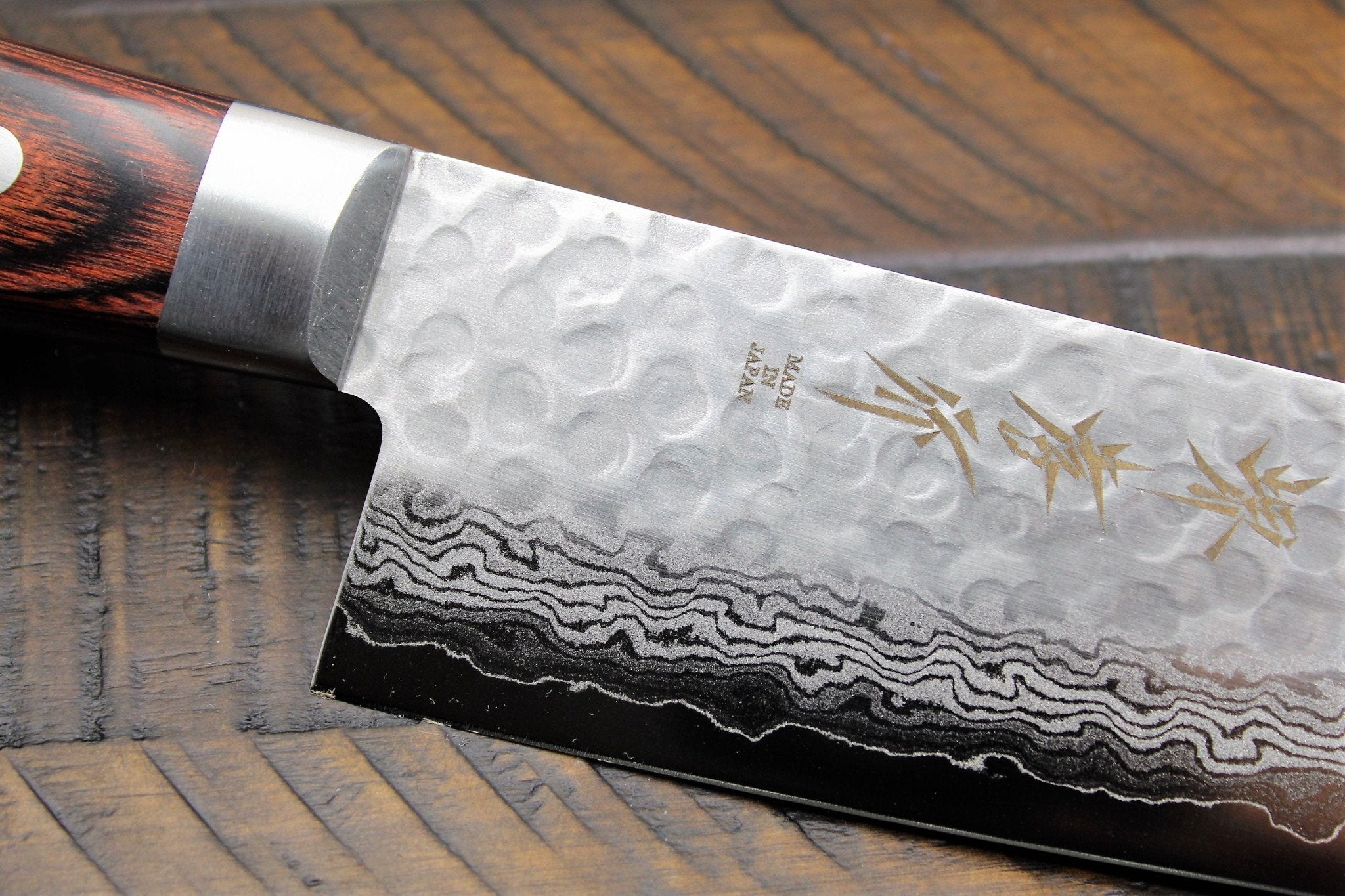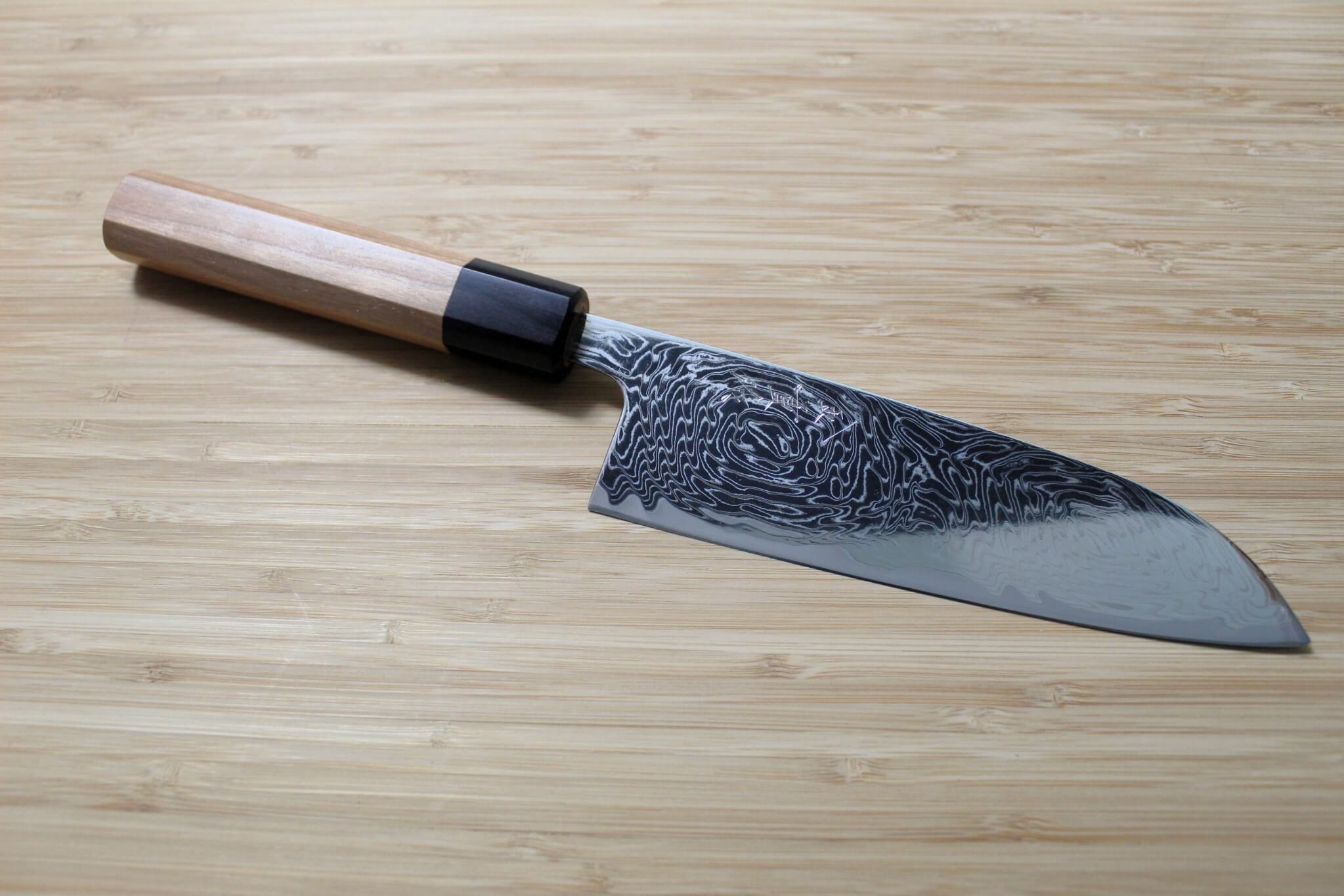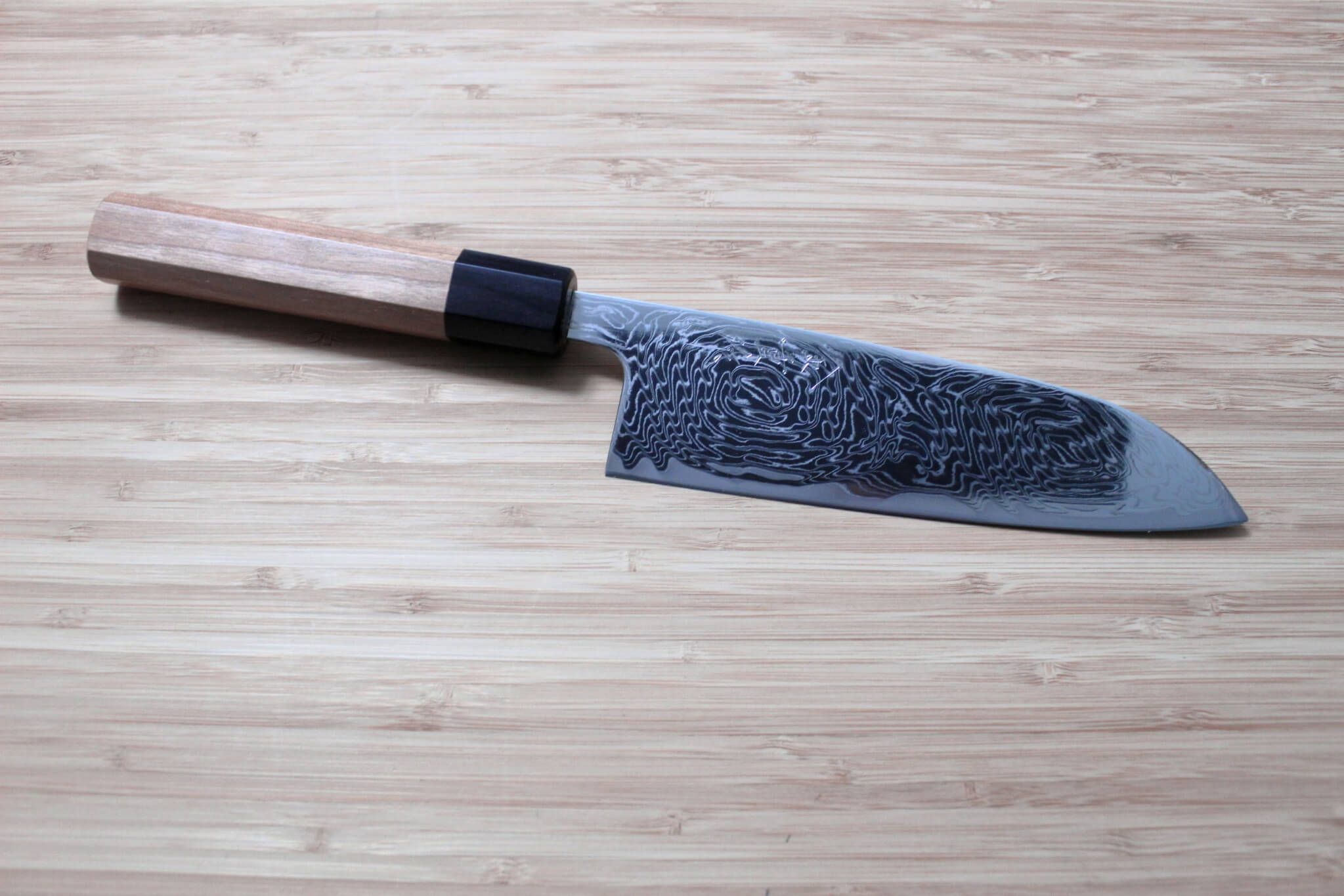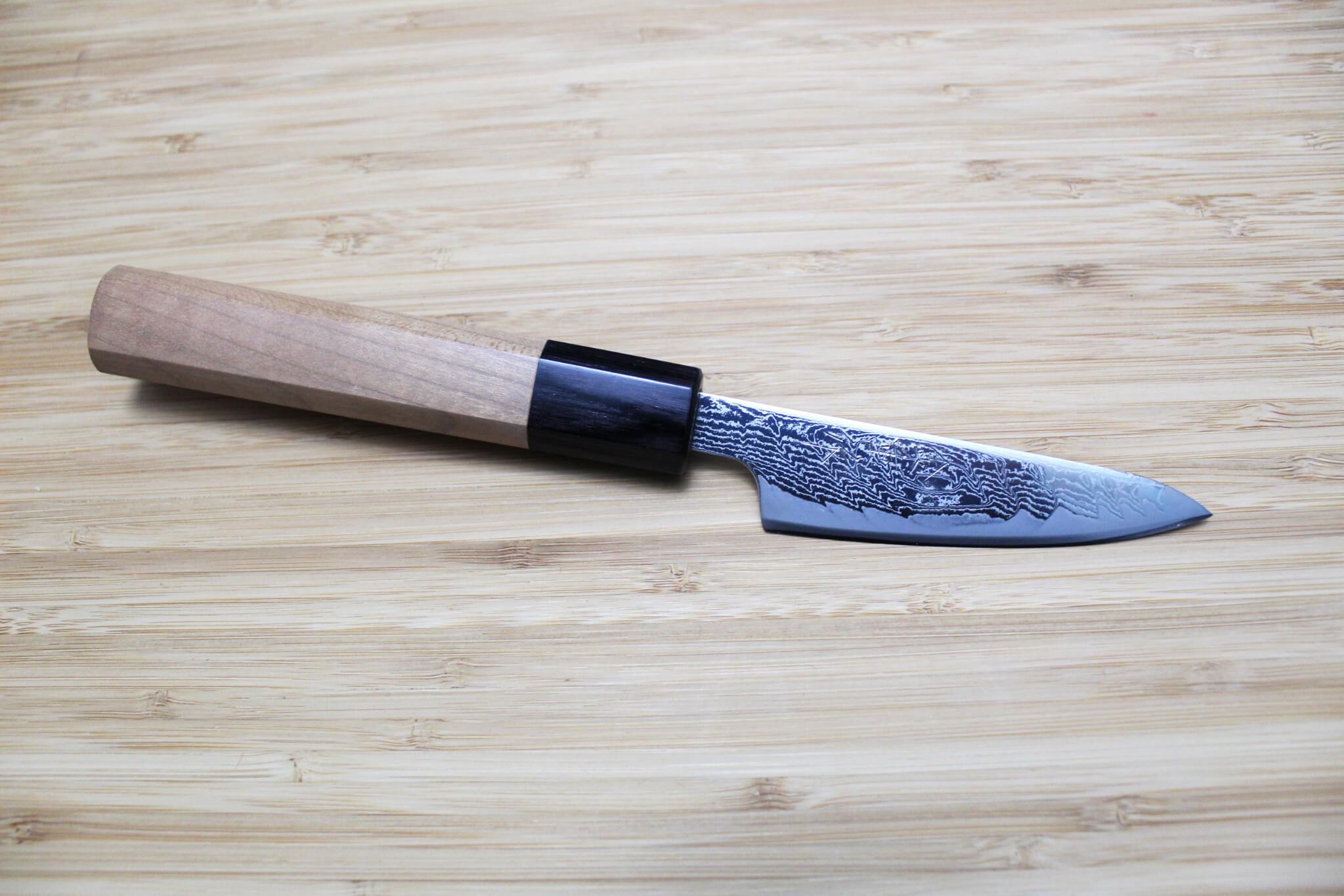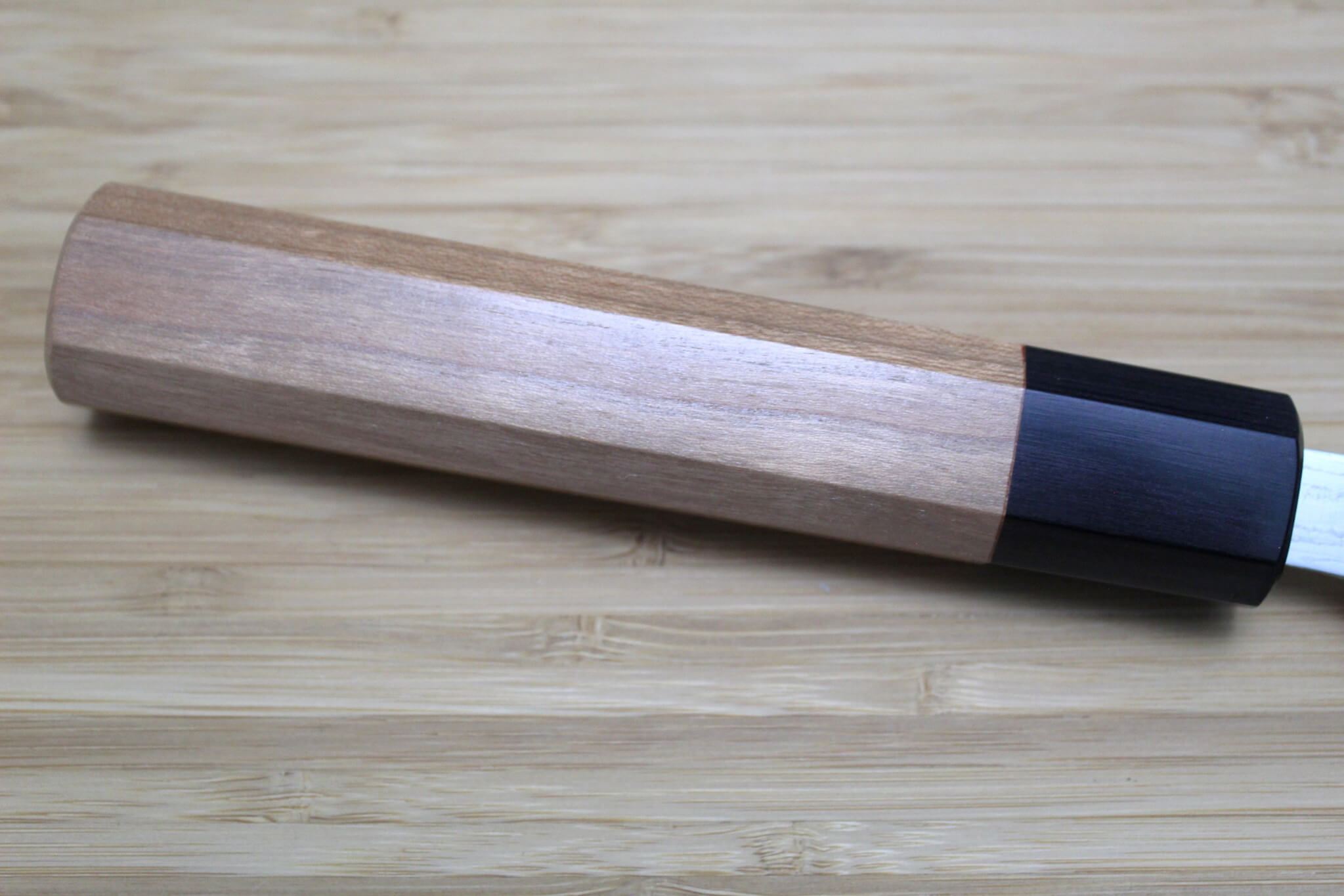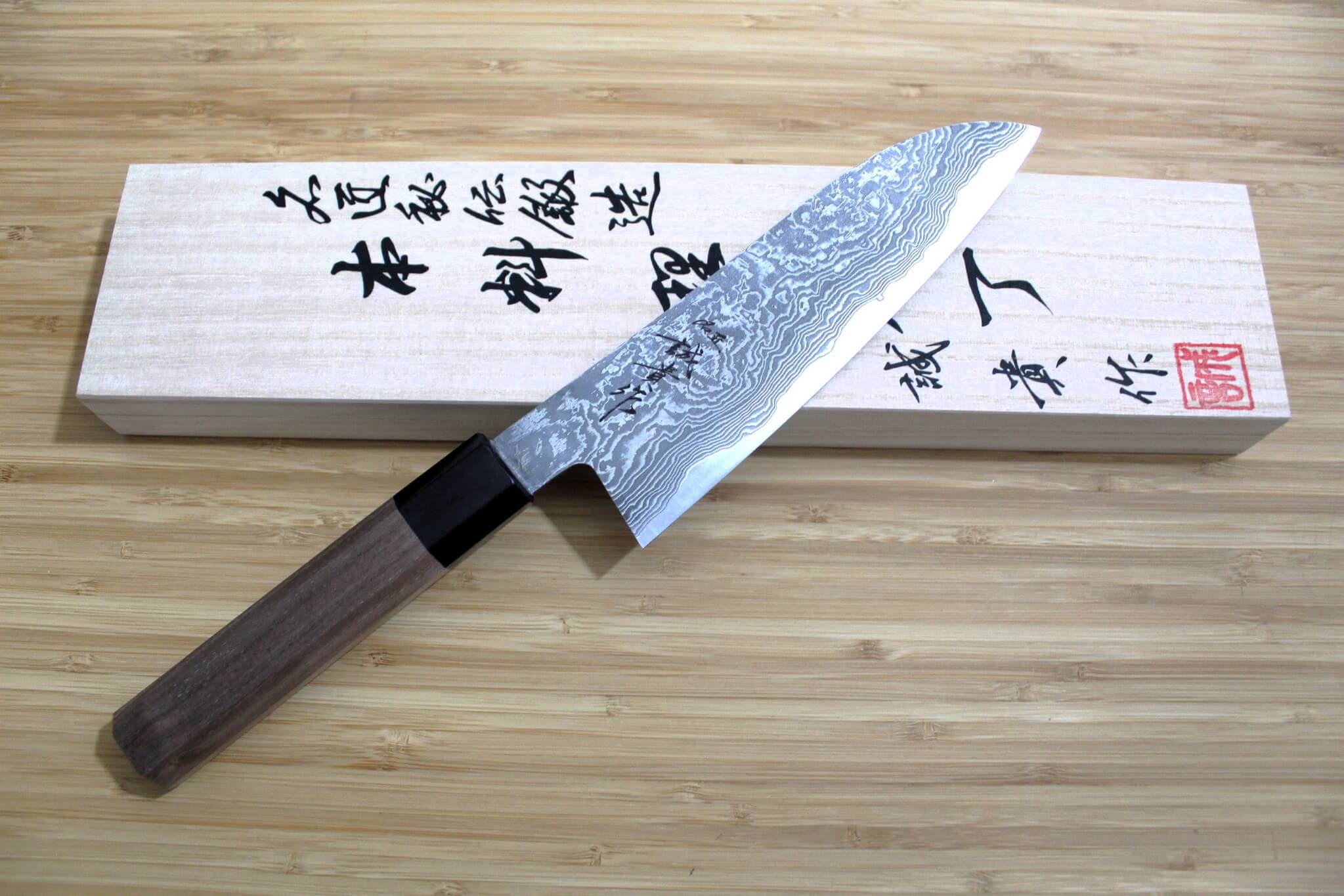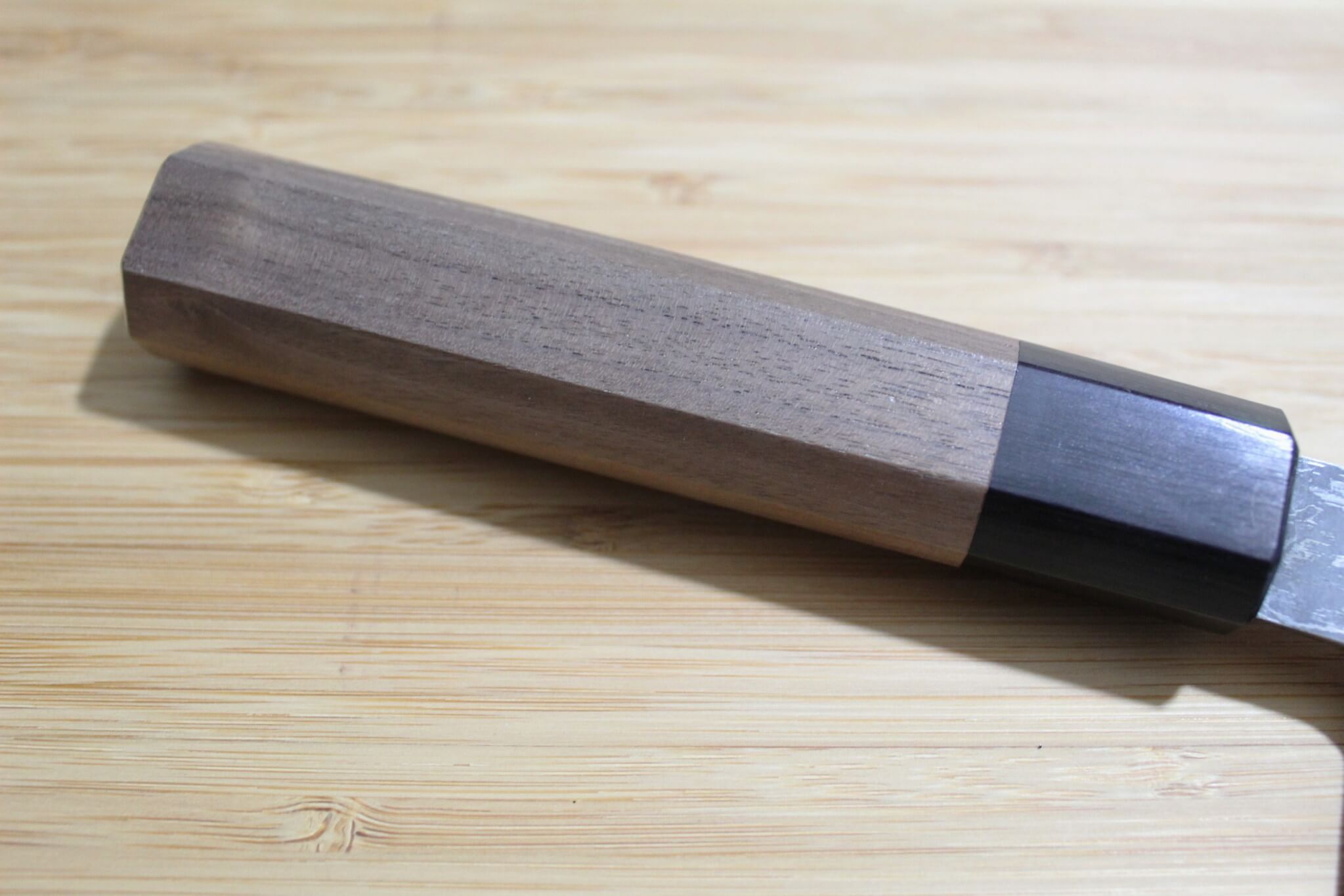Filters
Sakai Takayuki Santoku Knife 170mm (6.7") Damascus 33 Layer
Sale price$160.65
Regular price$189.00
Sakai Takayuki Gyuto Japanese Chef Knife 210mm (8.3") / 240mm (9.4") Damascus 33 Layer
Sale priceFrom $152.15
Regular price$179.00
Sakai Takayuki Petty / Paring knife 80mm (3.2") Damascus 33 Layer
Sale price$92.65
Regular price$109.00
Sakai Takayuki Santoku Knife 180mm (7.1") Damascus 33 Layer
Sale price$160.65
Regular price$189.00
Sakai Takayuki Gyuto Japanese Chef Knife 180mm (7.1") / 210mm (8.3") Damascus 45 Layer with Walnut Handle
Sale priceFrom $160.65
Regular price$189.00
Sakai Takayuki Gyuto Japanese Chef Knife 180mm (7.1") / 210mm (8.3") Damascus Mirror 45 Layer
Sale priceFrom $143.65
Regular price$169.00
Sakai Takayuki 33 Layer Damascus Nakiri Knife 160mm (6.3")
Sale price$160.65
Regular price$189.00
Sakai Takayuki Gyuto Japanese Chef Knife 180mm (7.1") Damascus 33 Layer
Sale price$143.65
Regular price$169.00
Sakai Takayuki Kengata Santoku Knife 160mm (6.3") Damascus 33 Layer Japanese Handle
Sale price$143.65
Regular price$169.00
Sakai Takayuki Santoku Knife 180mm (7.1") Damascus 17 Layer
Sale price$126.65
Regular price$149.00
Sakai Takayuki 33 Layer Damascus Nakiri Knife 160mm (6.3") Japanese Handle
Sale price$160.65
Regular price$189.00
Sakai Takayuki Petty Knife 120mm (4.7") Damascus 33 Layer
Sale price$118.15
Regular price$139.00
Sakai Takayuki Petty Knife 150mm (5.9") Damascus 33 Layer Japanese Handle
Sale price$118.15
Regular price$139.00
Sakai Takayuki Gyuto Japanese Chef Knife 210mm (8.3") / 240mm (9.4") Damascus 69 Layer -Ginga
Sale priceFrom $296.65
Regular price$349.00
Sakai Takayuki Petty / Paring Knife 80mm (3.2") Mirror Damascus 45 Layer
Sale price$92.65
Regular price$109.00
Sakai Takayuki Petty / Paring Knife 80mm (3.2") Damascus 17 Layer
Sale price$75.65
Regular price$89.00
Sakai Takayuki Petty Knife 135mm (5.3") Mirror Damascus 45 Layer
Sale price$101.15
Regular price$119.00
Sakai Takayuki Santoku Knife Mirror 170mm (6.7") Damascus 45 Layer
Sale price$160.65
Regular price$189.00
Petty Knife 150mm (5.9") Damascus 33 Layer - Japanese Black Persimmon Handle Hasu-Seizo Exclusive Special Edition
Sale price$135.15
Regular price$159.00
Sakai Takayuki Petty Knife 135 mm (5.3") / 150mm (5.9") Damascus 69 Layer - Ginga
Sale priceFrom $177.65
Regular price$209.00
Sakai Takayuki 45 Layer Damascus Nakiri Knife 160mm (6.3") Mirror Finish
Sale price$152.15
Regular price$179.00
Sakai Takayuki Kengata Santoku Knife 160mm (6.3") Damascus 33 Layer
Sale price$152.15
Regular price$179.00
Sakai Takayuki Petty Utility Knife 150mm (5.9")Damascus 45 Layer with Walnut handle
Sale price$143.65
Regular price$169.00
Sakai Takayuki Gyuto Japanese Chef Knife 210mm (8.3") / 240mm (9.4") Damascus 33 Layer Japanese Handle
Sale priceFrom $177.65
Regular price$209.00
Sakai Takayuki Santoku Knife 180 mm (7.0”) Damascus 33 Layer with Blue Handle
Sale price$143.65
Regular price$169.00
Sakai Takayuki Nakiri Knife 165mm (6.5") Damascus 69 Layer - Ginga
Sale price$279.65
Regular price$329.00
Sakai Takayuki Kengata Gyuto Japanese Chef Knife 190mm (7.5") Damascus 33 Layer
Sale price$194.65
Regular price$229.00
Sakai Takayuki Kengata Gyuto Japanese Chef Knife 190mm (7.5") Damascus 33 Layer Japanese Handle
Sale price$152.15
Regular price$179.00
Sakai Takayuki Petty Knife 150mm (5.9") Damascus 33 Layer
Sale price$118.15
Regular price$139.00
Sakai Takayuki Petty Knife 150mm (5.9") Damascus 45 Layer
Sale price$143.65
Regular price$169.00
Sakai Takayuki Steak Knife 120mm (4.7") Damascus 33 Layer Japanese Handle
Sale price$135.15
Regular price$159.00
Kaneshige Hamono 10 A 67 Layer Nickel Damascus Paring Knife 80 mm (3.2")
Sale price$109.65
Regular price$129.00
Sawakazuma Setsukei VG-7 Damascus Nakiri Knife 165 mm / 6.5" Rosewood Handle
Sale price$211.65
Regular price$249.00
Steak Knife 120mm (4.7") Damascus 33 Layer Black Persimmon Handle Hasu-Seizo Exclusive Special Edition
Sale price$118.15
Regular price$139.00
Sakai Takayuki Kengata Santoku Knife 160mm (6.3") VG10-VG2 Coreless Damascus
Sale price$203.15
Regular price$239.00
Sakai Takayuki Santoku Knife 180mm (7.1") Damascus 69 Layer - Ginga
Sale price$228.65
Regular price$269.00
Sakai Takayuki 17 Layer Damascus Nakiri Knife 160mm (6.3")
Sale price$126.65
Regular price$149.00
Sakai Takayuki Damascus 17 Layer Gyuto Japanese Chef Knife 210 mm (8.2") / 240 mm (9.4")
Sale priceFrom $143.65
Regular price$169.00
Kaneshige Hamono Ginsan Nashiji Nakiri Knife 165 mm (6.5") Cherry Handle
Sale price$160.65
Regular price$189.00
Kaneshige Hamono Ginsan Nashiji Bunka Knife 210 mm (8.2")
Sale price$211.65
Regular price$249.00
Kaneshige Hamono 10A Nickel Damascus 67 Layer Petty Knife 150 mm (5.9")
Sale price$135.15
Regular price$159.00
Sawakazuma Setsugetsuka VG-10 Damascus Santoku 165 mm / 6.5" Rosewood Handle
Sale price$245.65
Regular price$289.00
Sakai Takayuki Kengata Petty Knife 120mm (4.7") VG10-VG2 Coreless Damascus
Sale price$152.15
Regular price$179.00
Sakai Takayuki Petty Knife 135mm (5.3") Damascus 17 Layer
Sale price$101.15
Regular price$119.00
Sakai Takayuki Gyuto Japanese Chef Knife 180mm (7.1") Damascus 17 Layer
Sale price$126.65
Regular price$149.00
Kaneshige Hamono Vortex Nickle Damascus Santoku Knife 165 mm (6.5")
Sale price$211.65
Regular price$249.00
Kaneshige Hamono Vortex Nickle Damascus Paring Knife 80 mm (3.2")
Sale price$160.65
Regular price$189.00
Shigeki Tanaka Damascus SG2 Steel Santoku with Walnut Handle 165 mm / 6.5"
Sale price$628.15
Regular price$739.00
Craftsmanship of Stainless Steel Japanese Chef Knives
The level of craftsmanship that goes into making these knives is unparalleled. Knife makers in Japan take great pride in the centuries of history fueling their work, often relying on traditional techniques passed down through generations from master to apprentice. Each knife is carefully shaped, sharpened, and tempered by artisans who cherish every detail.
Craftsmanship of Stainless Steel Japanese Chef Knives
The level of craftsmanship that goes into making these knives is unparalleled. Knife makers in Japan take great pride in the centuries of history fueling their work, often relying on traditional techniques passed down through generations from master to apprentice. Each knife is carefully shaped, sharpened, and tempered by artisans who cherish every detail.

